










8 Strangers Behind the Trees: On the Death of Rayan Suliman and His Fear of Monsters—Ramzy Baroud
10 Hajjah Aminah: Finding Contentment Through Acceptance Mohammed Omer
12 A Snapshot of Shifting Israeli Propaganda and Myths
Over the Years John Gee
14 AIPAC Election Role Raises Question of Foreign Agent Registration Allan C. Brownfeld
Mead Book Illustrates Lobby’s Clout While Striving to Deny It Walter L. Hixson
18 Israel Lost an Advocate on the House’s Middle East Subcommittee. Does It Matter? Dale Sprusansky
20 Back From Campaigning, Congress is Getting Busy Julia Pitner
24 The Politics of Palestinian Textbooks—Julia Pitner
26 Difficult Months Ahead: Why Israel is Afraid of the Lions’ Den—Ramzy Baroud
What to Know About the Israel-Lebanon Maritime Border Deal—Federica Marsi
are U.S. Troops Still Fighting in Syria?
Salacanin
Neocolonial Energy Crisis—Hajira Asghar
Hebron Blind Charitable Society: Giving Vision To the Sightless—Hasan Aga
Virginia Picnic Benefits Palestinian Farmers’ Resistance—Ida Audeh
Humanitarian Organizations Demand Criminal Code Changes—Candice Bodnaruk
ON THE COVER: A Palestinian child in the West Bank city of Nablus, on May 20, 2021, holds a candle and a flag to show his solidarity with people in the Gaza Strip who are enduring Israeli air strikes. The monsters who frighten Palestinian children are dropping bombs from airplanes, shooting from armored tanks or hiding in groves. See story p. 8.
Israel Wants Another Intifada, Gideon Levy, Haaretz OV-1
Why Israel Fears Fathi Khazem, The Latest Symbol of Palestinian Resistance, Ahmed Abu Artema, mondoweiss.net OV-2
Hell Revisited: Surviving Israel’s Bombs to Get Married, Andrew Mitrovica, www.aljazeera.com OV-3
Meshal Poisoning Provided Only a Glimpse Into Israel’s Biological Warfare Arsenal, Yossi Melman, Haaretz OV-4
Palestinian Photog Says NYT Fired him for Expressing Support for Resistance, Philip Weiss, mondoweiss.net OV-6
PUBLISHERS’ PAGE
6 LETTERS TO THE EDITOR
52 MUSIC & ARTS: “The Art of Weeping” Exhibit Opens
53 HUMAN RIGHTS: Human Rights and Western Policy in the Middle East
54 WAGING PEACE: Rift Emerges in Worsening U.S.Saudi Relations
60 DIPLOMATIC DOINGS:
Jordan’s Foreign Minister Talks Abraham Accords, U.S. Relations
61 ARAB-AMERICAN ACTIVISM: Arab Americans Hold Candidates Night
(A Supplement to the Washington Report on Middle East Affairs available by subscription at $15 per year. To subscribe, call toll-free 1-888-8815861.)
Compiled by Janet McMahon
Israel Saw Brutal Myanmar Regimes as a Business Opportunity, Documents Reveal, Eitay Mack, Haaretz OV-7
What Would a UK Embassy Move to Jerusalem Mean for Palestine, Jalal Abukhater, www.aljazeera.com OV-11
Playing With Matches Is Dangerous, Eric S. Margolis, www.ericmargolis.com OV-13
Cultural Diplomacy and Political Goals: “Cheb Macron’s” Ode to Algerian Gas, Mariam Abuadas and Faizah Falah, www.globalvoices.org OV-13
The Labyrinthine Souq Waqif Preserving Qatar’s History, Culture, Khadiza Begum, www.aljazeera.com OV-15
64 MIDDLE EAST BOOKS REVIEW
70 THE WORLD LOOKS AT THE MIDDLE EAST—CARTOONS
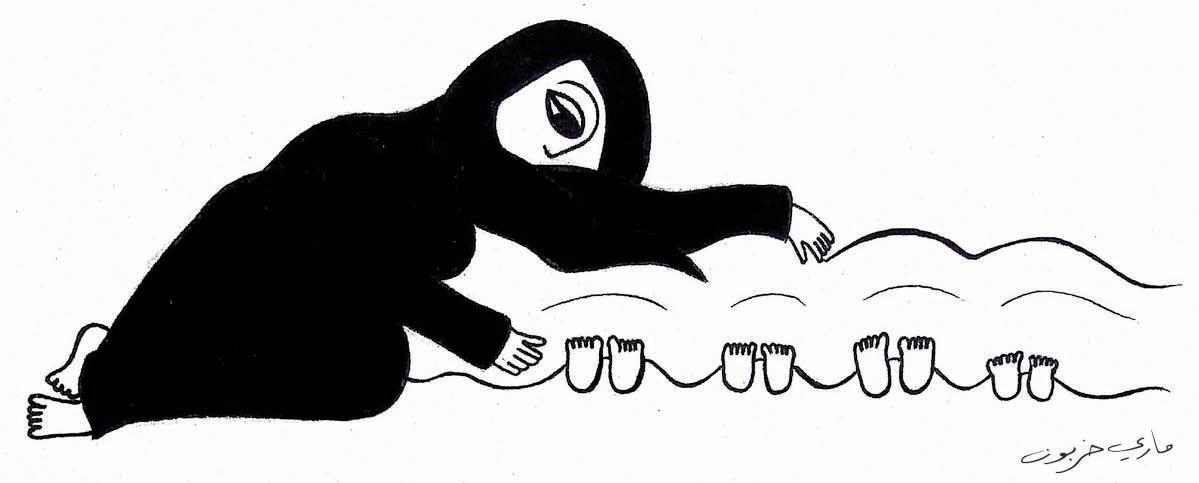
71 OTHER PEOPLE’S MAIL
73 2022 AET CHOIR OF ANGELS
72 INDEX TO ADVERTISERS
“Gaza” By Mary Hazboun from her “The Art of Weeping” collection, © 2020 Used with permission (see story p. 52).
Proud Iranians who have survived political repression and international sanctions are saying they’ve had enough (see p. 36). Palestinians who have endured ever-worsening conditions living under Israel’s apartheid occupation are saying that’s enough (see p. 26)! Gazans, cut off from the world, who have so many talents (see photos) but few opportunities are ready to blow. People are protesting around the world, and the fuel shortages which will make heating this winter a challenge for some—or even impossible for others— are only just beginning. It’s time to...
The U.S. can’t use weapons to solve any of the problems now besetting the world. We have to use other tools in our arsenal like the United Nations, which was built to peacefully resolve the world’s problems. (See p. 28 for a border dispute that has been solved by discussions with Lebanon and Israel and p. 34 for our U.N. column which describes illegal annexations that are not faring so well.) That means enough with the U.N. bashing and threats to defund it from Capitol Hill. That’s why our readers, letter writers and others need to step up and remember....
You’ll notice there is a lot focus on your elected officials in this issue. Candidates actually listen to your concerns when they are running for office. Show up at town halls and debates, volunteer, phone bank and donate. As you can see from the congressional voting records and pro-Israel PAC donations reported in recent issues and always available online, <www.wrmea.org>, some candidates are starting to take
notice of human rights-first voices. And then again, others are still listening to Israel-firsters (see our vital articles from pp 18-25).
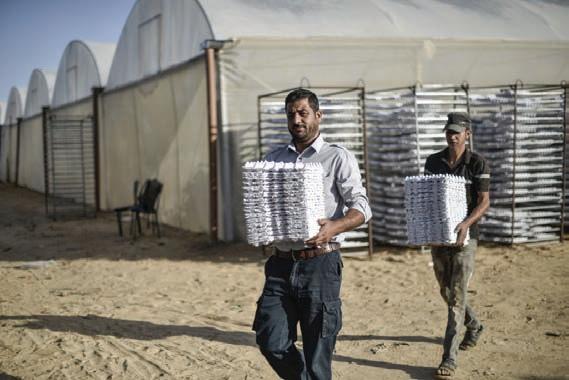
Like many of you, the Washington Report and Middle East Books and More are feeling the squeeze during this...dare we say it?...recession. We’ve been alerted that paper, postage and printing costs are going to hit the roof in 2023. To start tightening our already strained belt, we omitted our usual postcard insert this issue. So if you need to start or renew a subscription, please use the form on p. 32 or visit our website.
You can also use that form to add the 16-page “Other Voices” insert to your subscription. That way, you won’t miss stunning reprints like the Haaretz article by Yossi Melman in this issue. It’s a pageturner, describing the Mossad’s history of using poison to assassinate enemies, beginning in 1948 when Israeli soldiers were sent to poison Arab water wells to spread typhoid bacteria!
We had a deluge of brilliant applicants for our job opening for a bookstore assistant.
Hajira Asghar, founder of Students Against Imperialism at the George Washington University, now staffs the bookstore on weekends and will also use her writing talents in the magazine (see p. 42). Associate editors Julia Pitner (now our congressional reporter, see pp. 2025) and Ida Audeh (see p. 46) are both using their editing expertise on our team. We’d like to actually hire these folks and select others who could help us reach out beyond our own choir to find new readers, writers, advertisers and grants. It’s exhausting running this magazine on fumes.
A major renovation has repaired a decades-old leak in the back of Middle East Books and More. So now we can roll up our sleeves and expand the shop to provide more room for book talks, film screenings and co-hosting events with our neighbors, the Museum of the Palestinian People. We need a serious grant or many smaller donations to fund this project. Don’t wait for our second biannual donation appeal....donate online or send a check, just please dig deep so we can all...
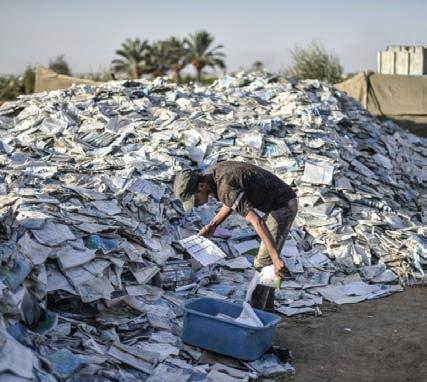
Executive Editor: DELINDA C. HANLEY
Managing Editor: DALE SPRUSANSKY
Contributing Editors: WALTER L. HIXSON JULIA PITNER
IDA AUDEH
Other Voices Editor: JANET McMAHON
Middle East Books and More Director: NATHANIEL BAILEY
Finance & Admin. Dir.: CHARLES R. CARTER
Assistant Bookstore Dir.: HAJIRA ASGHAR
Art Director: RALPH UWE SCHERER
Founding Publisher: ANDREW I. KILLGORE (1919-2016)
Founding Exec. Editor: RICHARD H. CURTISS (1927-2013)
Board of Directors: HENRIETTA FANNER
JANET McMAHON
JANE KILLGORE
Washington Report on Middle East Affairs (ISSN 87554917) is published 7 times a year, monthly except Jan./Feb., March/April, June/July, Aug./Sept. and Nov./Dec. combined, at 1902 18th St., NW, Washington, DC 20009-1707. Tel. (202) 939-6050. Subscription prices (United States and possessions): one year, $29; two years, $55; three years, $75. For Canadian and Mexican subscriptions, $35 per year; for other foreign subscriptions, $70 per year. Periodicals, postage paid at Washington, DC and additional mailing offices. POSTMASTER: Send address changes to Washington Report on Middle East Affairs, P.O. Box 292380, Kettering, OH 45429.
Published by the American Educational Trust (AET), a nonprofit foundation incorporated in Washington, DC by retired U.S. foreign service officers to provide the American public with balanced and accurate information concerning U.S. relations with Middle Eastern states. AET’s Foreign Policy Committee has included former U.S. ambassadors, government officials, and members of Congress, including the late Democratic Sen. J. William Fulbright and Republican Sen. Charles Percy, both former chairmen of the Senate Foreign Relations Committee. Members of AET’s Board of Directors and advisory committees receive no fees for their services. The new Board of Advisers includes: Anisa Mehdi, John Gareeb, Dr. Najat Khelil Arafat, William Lightfoot and Susan Abulhawa.
The Washington Report on Middle East Affairs does not take partisan domestic political positions. As a solution to the Palestinian-Israeli dispute, it endorses U.N. Security Council Resolution 242’s land-for-peace formula, supported by nine successive U.S. presidents. In general, it supports Middle East solutions which it judges to be consistent with the charter of the United Nations and traditional American support for human rights, self-determination, and fair play.
Material from the Washington Report may be reprinted without charge with attribution to Washington Report on Middle East Affairs. Bylined material must also be attributed to the author. This release does not apply to photographs, cartoons or reprints from other publications.
Indexed by ProQuest, Gale, Ebsco Information Services, InfoTrac, LexisNexis, Public Affairs Information Service, Index to Jewish Periodicals, Ethnic News Watch, Periodica Islamica.
CONTACT INFORMATION: Washington Report on Middle East Affairs Editorial Office and Bookstore: 1902 18th St. NW, Washington, DC 20009-9062 Phone: (202) 939-6050 (800) 368-5788
(202) 265-4574
wrmea@wrmea.org
bookstore@wrmea.org
donations@wrmea.org
sites: http://www.wrmea.org http://www.middleeastbooks.com
sample copies and donations: P.O. Box 292380, Kettering, OH 45429
(800) 607-4410
Contrary to their earlier statement claiming Palestinian American journalist Shireen Abu Akleh was likely shot by a Palestinian, Israel now admits she was likely shot by an Israeli sniper during a raid in the occupied West Bank. Abu Akleh wore a helmet and was wearing a jacket marked “PRESS.” This flip-flopping by Israel comes after months of outrage by Abu Akleh’s family and human rights activists around the world.
To add insult to injury, Israel stated that the soldier who fired the fatal shot will not be held accountable.
Akleh’s niece, Lina Abu Akleh, who was denied a meeting with President Joe Biden during his visit to Israel this summer, understandably exploded with anger at Israel’s dismissal of her aunt’s murder. Shireen Abu Akleh, of course, is just a high-profile example of what Palestinians endure on a daily basis. It is outrageous that the United States by its silence condones the appalling in-
justices committed against Palestinians living under a draconian and illegal Israeli occupation.
Investigations by The New York Times, CNN, The Washington Post and other media outlets also challenge the official Israeli version of Abu Akleh’s killing. The Times reported that, contrary to the Israeli version of events, “there were no armed Palestinians near her when she was shot.” In Ramallah, Al Jazeera’s West Bank bureau chief also rejected Israeli claims about the killing.
Biden should break his silence and order an immediate investigation into Abu Akleh’s killing. It is time the U.S. live up to its claim and be a “shining city” and halt further aid to apartheid Israel.
Jagjit Singh, Los Altos, CA
According to the Israeli group B’Tselem, which documents Israeli violations in the Palestinian territories, “the odds that those responsible for the killing of Shireen Abu Akleh will be held to ac-
Fax: (937)-890-0221
the USA
Slain Al Jazeera journalist Shireen Abu Akleh was honored at the National Press Club’s Annual Journalism Awards Dinner in Washington, DC on Aug. 31, 2022. Press Club president Jen Judson (l) presented Abu Akleh’s posthumous award to the journalist’s niece, Lina Abu Akleh (r), who de manded President Joe Biden hold Israel accountable for her aunt’s murder. “As a U.S. citizen and journalist, we had expected from the U.S. president that he would take the case seriously, as in similar cases,” she said. “We will never relent in bringing justice for Shireen,” she added.
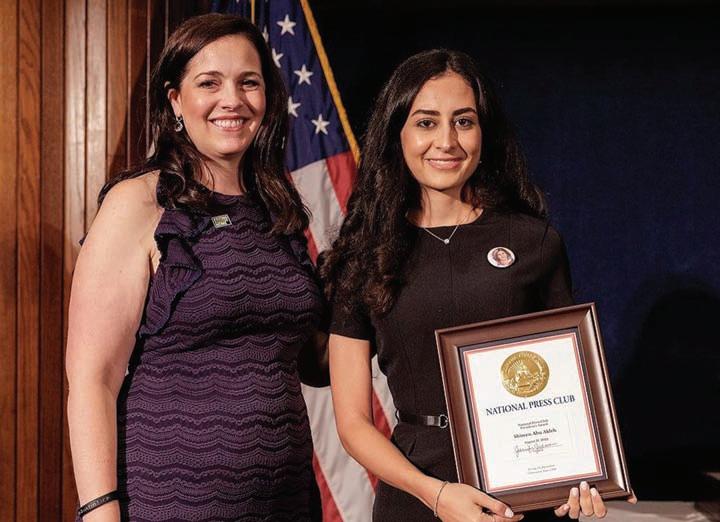
count are all but nonexistent.”
This brings to mind the USS Liberty , in which Israel used fighter aircraft and Navy torpedo boats to kill 34 and wound 171 U.S. sailors. This too, amazingly, has been swept under the rug. In addition, there is American Rachel Corrie, British citizen Tom Hurndall and any number of other innocent Palestinians who have been killed advocating for basic rights.
Is there anything that Israel will ever be held accountable for by this country? Why does the U.S. seem to be so beholden to this apartheid country, which has done nothing to help us?
Doris Rausch, Tullahoma, TN
Speaking at a Jerusalem Post conference in New York City on Sept. 12, U.S. Ambassador to Israel Tom Nides addressed the issue of Abu Akleh’s killing: “My heart breaks for Shireen’s family. I went to the wake and spent time with Shireen’s brother and niece, and you know my heart breaks for her. She’s an American citizen. We spent a great deal of time working with both the IDF [Israel Defense Forces] and the Palestinian Authority to try to come up with some conclusions of what happened. Yes, the IDF ultimately concurred as we did, that it was likely–not intentionally by the way–the IDF shot her.
This is a dangerous place! Jenin was a dangerous place! She’s a reporter. My wife is a reporter. It’s very difficult to do these jobs....But we need to make sure that the media has a right and an ability to cover these stories.
I have an enormous respect for the IDF, I spend an enormous of my time working with the IDF, the soldiers, the leaders. I’ve done hundreds of events with the IDF. They are a phenomenal, phenomenal military and they have unbelievable cooperation with the U.S. Defense Department. So I’m one who hopes to always continue to improve, and that’s what we are trying to do and talk about with the IDF.”
A recent article by Abraham Global Peace Initiative (AGPI) CEO Avi Benlolo is titled: “Israel Strong in the Face of
Send your letters to the editor to the Washington Report, P.O. Box 53062, Washington, DC 20009 or e-mail <letters@wrmea.org>.
Growing Progressive Obstinacy.” Unfortunately, the piece offers shaky assumptions and lacks historical context to balance its strident appeal to emotion. For example, Benlolo’s AGPI wrongly assumes that Israel represents the interests of all Jews. Benlolo’s organization supports the International Holocaust Remembrance Alliance’s “working definition of anti-Semitism,” which casts accurate criticism of Israeli policy as anti-Semitism.
He falsely attacks the Berkeley Law School for allegedly having “Jewish-free zones,” but never makes mention of the Jewish-only zones in the Israeli-occupied West Bank, Golan Heights and East Jerusalem. Benlolo’s assumption that Israeli Jews are Palestine’s sole indigenous people ignores the fact that European Zionists gradually marginalized Palestine’s indigenous Arabs in the early 20th century and later accelerated the process though warfare. With generous U.S. support, this program continues to defy countless U.N. resolutions while squeezing Palestinians into isolated pockets surrounded by Israeli settlers.
A recent Amnesty International report states that Israel operates an apartheid system, assigning inferior status to Palestinian citizens of Israel and open hostility to Palestinians in Gaza, the West Bank and East Jerusalem. Benlolo dismisses this observation and assigns to Israel exceptional status and privileges due to the Nazi Holocaust. According to this view, Palestinians must pay for Europe’s crimes even though Zionism’s founders intended to eject
Palestine’s Arabs even before the rise of Adolf Hitler.
Unfortunately, Zionism has evolved into a supremacist ideology actively oppressing and excluding even its most reasonable critics. History indicates that such movements always collapse after inflicting misery on all sides. Peace will only be possible when the U.S. government ceases its military, economic and diplomatic support for Israel’s total domination of Palestinian society. Only that will allow the beginning of fair-dealing. The cynical two-state fantasy must also eventually be replaced by a bi-national state with equal rights for all. Morgan Duchesney, Ottawa, ON ■
OTHER VOICES is an optional 16-page supplement available only to subscribers of the Washington Report on Middle East Affairs. For an additional $15 per year (see postcard insert for Wash ington Re port subscription rates), subscribers will receive Other Voices inside each issue of their Washington Report on Middle East Affairs.
Back issues of both publications are avail able. To subscribe, telephone (800) 607-4410, e-mail <circulation@wrmea. org>, or write to P.O. Box 292380, Kettering, OH 45429.
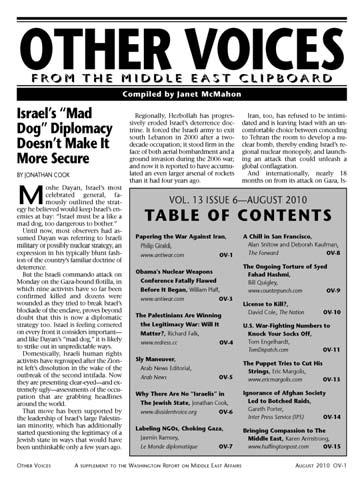
CHILDREN OF MY Gaza refugee camp were rarely afraid of monsters but rather of Israeli soldiers. This is all that we talked about before going to bed. Unlike imaginary monsters in the closet or under the bed, Israeli soldiers are real, and they could show up any minute—at the door, on the roof or, as was often the case, right in the middle of the house.
The recent tragic death of a 7-year-old, Rayan Suliman, a Palestinian boy from the village of Tuqu near Bethlehem, in the occupied

Dr. Ramzy Baroud is a journalist, author and editor of Palestine Chronicle. His latest book, co edited with Ilan Pappé, Our Vision for Liberation: Engaged Palestinian Leaders and Intellectuals Speak Out, is available from Middle East Books & More. Dr. Baroud is a non resident senior research fellow at the Center for Islam and Global Affairs (CIGA). His website is <www.ramzybaroud.net>.
West Bank, stirred up so many memories. The little boy with olive skin, innocent face and bright eyes fell to the ground while being chased by Israeli soldiers, who accused him and his peers of throwing stones. He fell unconscious, blood poured out of his mouth and, despite efforts to revive him, he ceased to breathe.
This was the abrupt and tragic end of Rayan’s life. All the things that could have been, all the experiences that he could have lived, and all the love that he could have imparted or received, all ended suddenly, as the boy lay face down on the pavement of a dusty road, in a poor village, without ever experiencing a single moment of being truly free, or even safe.
Adults often project their understanding of the world on children. We want to believe that Palestinian children are warriors against oppression, injustice and military occupation. Though Palestinian
children develop political consciousness at a very young age, quite often their action of protesting against the Israeli military, chanting against invading soldiers or even throwing stones are not compelled by politics, but by something else entirely—their fear of monsters.
This connection came to mind when I read the details of the harrowing experience that Rayan and many of the village children endure daily.

Tuqu is a Palestinian village that, once upon a time, existed in an uncontested landscape. In 1957, the illegal Jewish settlement of Tekoa was established on stolen Palestinian land. The nightmare had begun.
Israeli restrictions on Palestinian communities in that area increased, along with land annexation, travel restrictions and deepening apartheid. Several residents, mostly children from the village, were injured or killed by Israeli soldiers during repeated protests: the villagers wanted to have their life and freedom back; the soldiers wanted to ensure the continued oppression of Tuqu in the name of safeguarding the security of Tekoa.
In 2017, a 17-year-old Palestinian boy, Hassan Mohammad al-Amour, was shot and killed during a protest; in 2019, another, Osama Hajahjeh, was seriously wounded.
The children of Tuqu had much to fear, and their fears were all well-founded. A daily journey to school, taken by Rayan and many of his peers, accentuated these fears. To get to school, the kids had to cross Israeli military barbed wire, often manned by heavily armed Israeli soldiers.
Sometimes, kids attempted to avoid the barbed wire so as to avoid the terrifying encounter. The soldiers anticipated this. “We tried to walk through the olive field next to the path, instead, but the soldiers hide in the trees there and grab us,” a 10-year-old boy from Tuqu, Mohammed Sabah, was quoted saying in an article by Sheren Khalel, published years ago.
The nightmare has been ongoing for years, and Rayan experienced that terrorizing journey for over a year, of soldiers waiting behind barbed wires, of mysterious creatures hiding behind trees, of hands grabbing little bodies, of children screaming for their parents, beseeching
God and running in all directions.
Following Rayan’s death on Sept. 29, the U.S. State Department, the British government and the European Union demanded an investigation, as if the reason why the little boy succumbed to his paralyzing fears was a mystery, as if the horror of Israeli military occupation and violence was not an everyday reality.
Rayan’s story, though tragic beyond words, is not unique but a repeat of other stories experienced by countless Palestinian children.
When Ahmad Manasra was run over by an Israeli settler’s car, and his cousin, Hassan, was killed in 2015, Israeli media and apologists fanned the flames of propaganda, claiming that Manasra, 13 at the time, was a representation of something bigger. Israel claimed that Manasra was shot for attempting to stab an Israeli guard, and that such action reflected deep-seated Palestinian hatred for Israeli Jews, as convenient proof of the indoctrination of Palestinian children by their supposedly violent culture. Despite his injuries and young age, Manasra was tried in 2016, and was sentenced to twelve years in prison.
Manasra comes from the Palestinian town of Beit Hanina, near Jerusalem. His story is, in many ways, similar to that of Rayan—a Palestinian town, an illegal Jewish settlement, soldiers, armed settlers, ethnic cleansing, land theft and real monsters, everywhere. None of this mattered to the Israeli court or to mainstream, corporate media. They turned a 13-year-old boy into a monster, instead, and used his image as
a poster child of Palestinian terrorism taught at a very young age.
The truth is, Palestinian children throw stones at Israeli soldiers, neither because of their supposedly inherent hatred of Israelis, nor as purely political acts. They do so because it is their only way of facing their own fears and coming to terms with their daily humiliation.
Just before Rayan managed to escape the crowd of Israeli soldiers and was chased to his death, an exchange took place between his father and the soldiers. Rayan’s father told the Associated Press the soldiers had threatened that, if Rayan was not handed over, they would return at night to arrest him along with his older brothers, aged 8 and 10. For a Palestinian child, a nightly raid by Israeli soldiers is the most terrifying prospect. Rayan’s young heart could not bear the thought. He fell unconscious.
Doctors at the nearby Palestinian hospital of Beit Jala had a convincing medical explanation of why Rayan died. A pediatric specialist spoke about increased stress levels, caused by “excess adrenaline secretion” and increased heartbeats, leading to a cardiac arrest. For Rayan, his brothers and many Palestinian children, the culprit is something else: the monsters who return at night and terrify the sleeping children.
Chances are, Rayan’s older brothers will be back in the streets of Tuqu, stones and slingshots in hand, ready to face their fears of monsters, even if they pay the price with their own lives.
■
HAJJAH AMINAH SMILES widely with a joy that celebrates her 80-odd years. Her demeanor radiates playful sarcasm, inspiring laughter all around her—even in the odd reality that is modernday Gaza. Kudos to her for her resilience; with an endlessly forward-looking attitude, she believes that every tomorrow will be brighter and each day can bring joy and new opportunities.
A father, nearly in his 40s, knits his brow, almost toppled by two toddlers— fighting, as children do, over their turn to play.
Hajjah Aminah’s younger sister, Inshirah, pauses for a moment. “Ha, knock it off. Kids are kids, they are supposed to play and enjoy life!” Inshirah tells him. The father concedes. “They are better off without you telling them off,” Hajjah tells him. The sisters finish each other’s sentences.
It is rare to find women of Hajjah Aminah’s age, especially considering the stress she has experienced. However, she counsels poetically, “Stones come and go, just like seashores. Ultimately, all depends on you and how you choose to maintain yourself.” She has been a soothing influence on Inshirah, who lost her home in 2003 to an Israeli bulldozer whose driver decided the narrow alley in the
crowded neighborhood did not allow his bulldozer to maneuver comfortably; the house was sacrificed for that purpose.
People come and go; we grieve death, agony and homelessness. However, in balance, we celebrate new birth and beginnings too. I have met Hajjah Aminah on multiple occasions, in times of grief and joy. She is at the forefront, but she rarely lets me take her photo. She is always insightful and has something wise to say whether the situation is joyless or joyful. From her effortlessly commanding bearing to her deeply human advice, she carries herself with a gravitas exceeding that of presidents preparing to address their nation.
Hajjah Aminah never attended school. “Life too is a school,” she says.
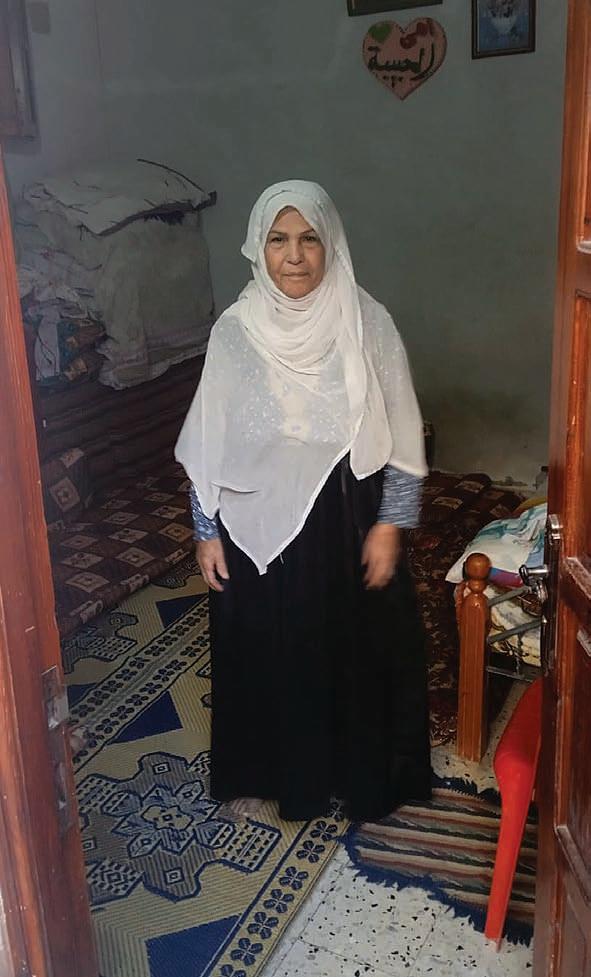
She recalls the days before the current intifada, when Gaza was less impoverished and overcrowded. It was odd for a Palestinian woman laborer in the late 1990s to seek a work permit inside Israel. This was the province of men, thousands of whom used to cross daily and work in fields from agriculture, reconstruction, restaurants and manufacturing. She loved her farming work. “It brings a special connection with the land,” she explains. “You can have a meaningful connection with the earth, embracing the food we consume.”
A World Bank overview of conditions in Gaza, updated in May 2022, noted that while the near-term economic outlook showed
The fearless and articulate Hajjah Aminah accepts aging with joy, ever ready to share her wisdom with her Gaza community. Award winning journalist Mohammed Omer reports regularly on the Gaza Strip.some signs of recovery, sustainable sources of growth remain limited. Should this persist, Palestinian economic growth would remain at around three percent during 2023/2024. The war in Ukraine may increase inflation in Gaza. The pandemic may also exacerbate this, especially if no additional vaccines are secured beyond mid-2022.
Hajjah Aminah has not been vaccinated. She accepts COVID-19 as a real global threat but believes, as do most Gazans, that expired vaccines might have been sent to them.
I asked her: if you had ten seconds to offer advice to someone on the other side of the world, what would that be? She paused. “Acceptance. However old you are, you are aging; you must embrace change with joy. Whether you greet change with a smile or a scowl, that will define your experience.”
Hajjah Aminah has never experienced social isolation, except during COVID-19 lockdowns and the first intifada curfews.

Every day she wakes at 5 am, making bread that she eats dipped in olive oil and thyme, with mint tea under the roofless living room. “I can still walk, talk, laugh and enjoy the presence of everything around me,” she says. “Nothing happens without a reason; you have to accept it.” The reality is that she is blessed with a Gaza community that continues to embrace its elders as, together, they help each other endure a senseless 15-year blockade.
She always knows which young woman in the neighborhood is a victim of sexism or domestic violence and is unafraid to intervene. “No violent man can stand in her way,” her sister says. “Her tongue is sharper than a knife.” She recalls one time a relative beat his employer’s wife over an unpaid salary. “She taught him such lessons about life and masculinity that he never dared to harm any wife again.”
This is a woman who lives life with neither ageism nor harassment levelled against her; her fearless and articulate
(Advertisement)nature leaves everyone speechless. “Apart from the buzzing drones overhead, day and night, life is good. You just have to embrace it and live it,” she says.
Her beautiful, sun-darkened skin is testament to another type of resilience. Hajjah Aminah almost never uses public transport; she can’t afford a kilogram of chicken. However, she assures me, UNRWA lentils are nurturing enough.
In the early mornings, she visits other elders and vulnerable people in hospital. She attends both weddings and funerals and is there with a hand to hold when a neighbor is in labor. Although she never had children of her own, everyone in pain is a child of hers. This remarkable woman has a lesson to impart. “We need to take down the walls that divide us, let go of our fears and allow ourselves to enter a state of acceptance. One day soon, I hope, Israelis will put down their weapons and accept their neighbors as fellow human beings deserving freedom and human rights.” ■
Israel captured around 5,000 Egyptian prisoners during its June 1967 attack on Egypt. Historian Gabi Bron wrote in Israel’s daily newspaper Yediot Ahronot that he witnessed Israeli troops executing Egyptian prisoners on the morning of June 8, 1967, in the Sinai town of al Arish. As those executions were underway, the most sophisticated intelligence ship in the U.S. Navy, the USS Liberty, was less than 13 miles away—close enough to hear incriminating radio traffic. Liberty survivor James M. Ennes believes Israel may have committed one war crime—attacking a U.S. ship—to hide another that day. Israel’s crippling aerial and naval assault on the Liberty killed 34 crew members, wounded 171 and resulted in another Zionist myth: the attack on an ally was a case of mistaken identity.
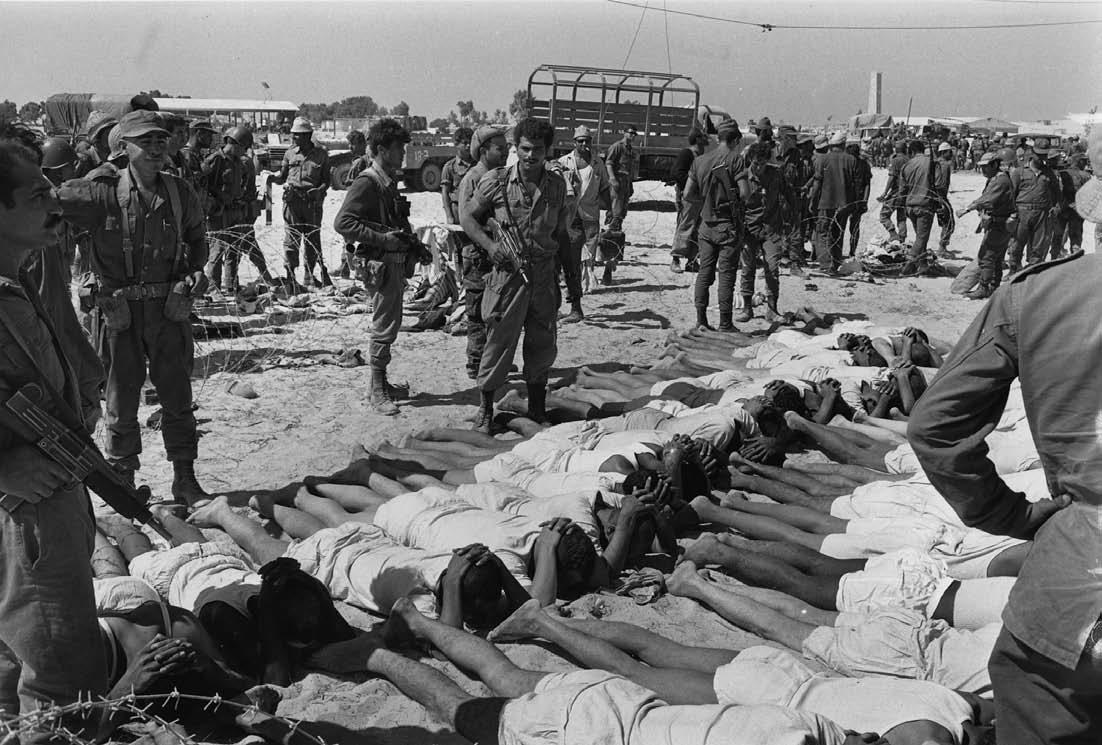
ONE OF THE MORE tiresome experiences for anyone engaged in long-term solidarity work with the Palestinians is encountering the same old Zionist myths, churned out year after year despite having been conclusively disproved by any objective standard. Anyone who watched “The X-Files” will recall the poster in Mulder’s room of a UFO beneath which were the words, “I want to believe.” The doggedness with which veteran Israel supporters cling to myths suggests a similar commitment of faith.
Perhaps the most obviously discredited myth is that the majority of Palestinian Arabs fled their homes in 1948 at the call of their leaders. It still surfaces fairly often, although it looks set to fade away in the not too distant future, not because its adherents are convinced
John Gee is a free lance journalist based in Singapore and the author of Unequal Conflict: The Palestinians and Israel.
that it is unfounded, but mainly because of age taking its toll. After 1948, generations of Americans perceived Israel to be an enlightened, democratic and humane country. Blaming the Palestinians for their own exile and dispossession was necessary to preserve that image. The essential vindication of the Palestinians’ own accounts of 1948 over the past 30 or so years has occurred while Israel has increasingly embraced the most racist, nationalistic forms of Zionism without any pretense of liberalism or enlightened values. Israel’s current political leaders are less inclined to worry about denying Israel’s responsibility for the mass expulsion of Palestinians in 1948 than their predecessors. According to a 2016 Pew poll, nearly half of Israeli Jews openly wish that the rest had been expelled and express the desire that the Palestinians might still be removed, one way or another. How is it possible to support Israel today without endorsing or at least enabling the policies to which such outlooks give rise?
Yet some propaganda themes have already bitten the dust. I was reminded of this while sorting through some old papers from the 1960s. Some capitalized on Westerners’ general lack of knowledge of the Middle East. We were told that Israelis greet each other with the word shalom, peace, and this showed the value they attached to that concept. The fact that Arabs greeted each other with salaam ‘alaykum, translated into English as “peace be unto you,” was not mentioned, although it could equally well be cited as evidence of their appreciation of peace.
In 1967, Israel could still rely on Westerners’ ignorance of the Palestinians and their history. When addressing U.S. audiences, Israel’s proponents used maps that showed all the lands of the Arab countries; by comparison, Israel looked very small. “The Arabs have all this territory, and the Jews only want this tiny scrap of land as a state,” was the accompanying description, with minor variations. The size of the Arab world was actually irrelevant: the territory in contention was the land of Palestine, home to a people who were not Egyptians, Algerians or Iraqis, but Palestinians. Denying the national identity and history of the Palestinian people and subsuming them into “the Arabs” not only obscured the nature of the conflict, but reinforced the Zionist contention that the “Arab refugees” should be resettled in Arab countries. It’s rather as if an invader of say, Peru or Costa Rica, had offered the justification for displacing their people by pointing to a map of Latin America and saying, “Look at all the land these Latinos have!”
News commentaries on Israelis killed in the late 1960s would sometimes say that the loss of life was deeply felt at a national level because the population of Israel was small. By implication, the more numerous Arabs did not feel the loss of life as deeply, as if numbers diluted grief. Few people outside the region would have made a comparison with the Palestinians and realized that the size of the Palestinian population was comparable to Israel’s. Why would Palestinians not deeply feel the loss of their fellow nationals in conflict? In fact, any reporter who bothered to visit Pales-
tinian communities was able to confirm that they did.
One story that rapidly evaporated was that of the boots. Just after the Israeli attack on Egypt in June 1967, photographs appeared in some Western newspapers and magazines (including Life) showing lots of military boots scattered upon the ground. It was reported that they had been discarded by Egyptian soldiers who, as simple peasant farmers, were not used to wearing boots and had taken them off so that they could run away more easily.
There were problems with this story from the start: more perceptive observers might have wondered whether people who knew how hot a desert could get underfoot would actually have done this. The story suggested that the Egyptian soldiers were easily vanquished and put to rout. Over the following months, a fuller picture emerged of what happened.
Under assault by a well-prepared and strong adversary who took total command of the skies through a surprise attack, the Egyptian forces in the Gaza Strip and Sinai took heavy losses but initially fought determinedly. Their cohesion broke down when their panicky high command ordered them to retreat, at a time when their communications were badly disrupted. Those retreating in the area of the Mitla Pass in central Sinai were sitting ducks for Israeli air strikes.
Israeli tanks and soldiers encountered thousands of demoralized Egyptian soldiers. Around 5,000 were taken prisoner. Scattered reports told of soldiers who’d abandoned their weapons being shot down by Israeli soldiers when they approached and pleaded for water. While some Israeli soldiers acted humanely, others simply saw the taking of prisoners who would need to be guarded, given water and fed as a burden that they should not bear. Weaponless and disorganized, the Egyptians could be left to try to walk back toward the Suez Canal or die of thirst in the desert. Some Arab sources later claimed that Israeli troops forced Egyptian soldiers to take off their boots before turning them loose: it diminished both their ability to resume fighting and, in some cases, their chances of survival.
Stories of Egyptian incompetence and unmartial qualities ultimately backfired on Israel. Such stories encouraged the Israeli soldiers to assume that Israel enjoyed military superiority over Egypt and to underestimate the determination and ability of the Egyptian army to rebuild its strength and recover its lost territory. They were shocked by the initial successes of the Egyptian armed forces in October 1973, which crossed the Suez Canal under heavy bombardment and drove Israeli soldiers from their well-fortified positions. Disparaging the courage and fighting ability of Egyptian troops no longer seemed like a good idea to Israeli publicists.
Some old Zionist myths have lost their utility to their makers and others have been so badly discredited that they have ceased to be reiterated. New ones are brought into service, old themes given a new coat of paint, but they are, if anything, even less credible than the preceding ones and will meet the same fate. It is no wonder that present-day Israel and its supporters put great effort into shutting down arguments over Palestine through the accusation of “anti-Semitism.” They don’t have a case that can be validated by logical arguments based on facts, international law and basic principles of humanity. ■
Send your story ideas, responses to features and copy requests (with $5) to:
Capitol Hill Citizen 1209 National Press Building, Washington, DC 20045
Editor: Russell Mokhiber Phone: (202) 656-7660 Email: editor@capitolhillcitizen.com
Find us on the web at: www.capitolhillcitizen.com
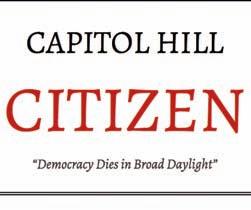
primaries and dispensed more than $24.2 million in support of its favored candidates. Out of eight candidates backed by UDP, six won their primaries.
Of the 212 candidates supported by AIPAC PAC who have faced primaries, 207 have won, including many Republicans who reject the fact that President Joe Biden was legitimately elected in 2020, but pledged unconditional support for Israel.
In Michigan’s 11th district, AIPAC sponsored a series of ads boosting Rep. Haley Stevens who, since Michigan lost a congressional seat, found herself in the same district as Rep. Andy Levin, the author of legislation to make the two-state solution to the Palestine question official U.S. Middle East policy and a critic of what he calls the “creeping annexation” of Israel’s right-wing governments. Levin is from one of the most prominent Jewish families in American politics, the son of Rep. Sander Levin and the nephew of the late Sen. Carl Levin.
FOR THE FIRST TIME, the American Israel Public Affairs Committee (AIPAC) formed two political action committees (PACs), which have set records in their contributions to candidates in primary election campaigns this year. In the past, AIPAC only urged pro-Israel PACs to donate to their preferred candidates. Now that AIPAC has formed its own PACs, it raises old questions about whether AIPAC should register under the Foreign Agents Registration Act (FARA) as an agent of the government of Israel.
In December 2021, AIPAC launched a conventional political action committee, the AIPAC PAC, which has become the biggest pro-Israel PAC in the United States, dispensing $2,790,679 to candidates (based on figures reported to the Federal Election Committee by Sept. 12). During the primary campaigns, AIPAC also launched a super PAC, the United Democracy Project (UDP), which initially did not include any mention of Israel in its “About Us” statement. As a super PAC, UDP can accept unlimited donations, but it must disclose its donors. It cannot fund candidates directly, but it can spend unlimited amounts advocating for or against candidates. UDP was the biggest spending political action committee during the
During the campaign, Levin told MSNBC that AIPAC was opposing “a really Jewish candidate whose positions on Israel represent the mainstream…I’m not just Jewish, I’m one of two former synagogue presidents in Congress, along with Sen. Jackie Rosen…But AIPAC can’t stand the idea that I am the clearest, strongest Jewish voice in Congress standing for a simple proposition: that there’s no way to have a secure home for the Jewish people unless we achieve the political and human rights for the Palestinians.” Levin was defeated by Stevens.
Discussing AIPAC’s campaign against Levin, Austin Ahlman wrote in The Intercept: “The campaign to defeat Levin marks a significant escalation in AIPAC’s push to quell criticism from Jewish members of Congress. Levin, a self-proclaimed Zionist, a former synagogue president, and scion of a prominent Jewish political dynasty, was one of their primary political targets. AIPAC ultimately spent $4 million in ads and mailers attacking Levin. AIPAC was on the attack against a candidate widely hailed as the most progressive Jewish member of the House.”
AIPAC also succeeded in defeating former Rep. Donna Edwards in Maryland’s Democratic primary. Supported by House Speaker Nancy Pelosi, Edwards faced $6 million in attack ads paid for by AIPAC. Kevin Rachlin, vice president of public affairs for J Street, a Jewish Zionist group that supports human rights for both Israelis and Palestinians, said: “It’s appalling. These baseless attacks against an experienced Democrat like Donna Edwards are being funded by a hawkish…group which is actively fundraising for those who threaten our democracy.” He was referring to the fact that many AIPAC-backed Republicans objected to the results of the 2020 election.
The publication Jewish Insider reports that Max Frost, a charismatic new face of young Democratic politics in Florida, negoti-
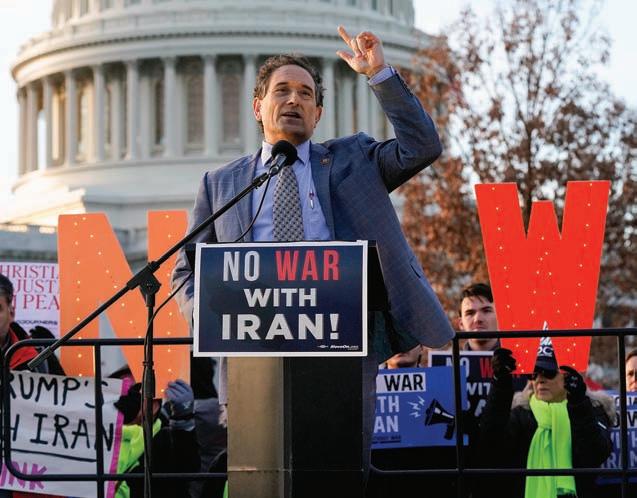 Rep. Andy Levin (D MI) speaks during the “No War With Iran” Rally for Moveon at the U.S. Capitol on Jan. 9, 2020. AIPAC spent $4 million in ads and mailers attacking Levin.
Allan C. Brownfeld is a syndicated columnist and associate editor of the Lincoln Review, a journal published by the Lincoln Institute for Research and Education, and editor of Issues, the quarterly journal of the American Council for Judaism.
Rep. Andy Levin (D MI) speaks during the “No War With Iran” Rally for Moveon at the U.S. Capitol on Jan. 9, 2020. AIPAC spent $4 million in ads and mailers attacking Levin.
Allan C. Brownfeld is a syndicated columnist and associate editor of the Lincoln Review, a journal published by the Lincoln Institute for Research and Education, and editor of Issues, the quarterly journal of the American Council for Judaism.
ated his position on Israel with AIPAC’s PAC in order to keep the PAC from supporting his opponents. Frost reversed his support for the Boycott, Divestment and Sanctions movement and issued calming language about being pro-Israel and proPalestinian to escape AIPAC’s wrath.
Even before AIPAC established its own PACs, it advised pro-Israel PACs with names not immediately obvious as being pro-Israel—like SunPAC, Louisianans for American Security and Because I Care PAC. According to former Rep. Brian Baird (D-WA), “Any member of Congress knows that AIPAC is associated indirectly with significant amounts of campaign spending if you’re with them, and significant amounts against you if you’re not with them.” He noted at the 2021 “End U.S. Support for Israeli Apartheid” conference, co-sponsored by the Washington Report and the Institute for Research: Middle Eastern Policy, that pro-Israel PAC contributions came with significant “tactical input.” AIPAC staff members told Baird and other lawmakers, “No, we don’t say it that way, we say it this way.” Baird recalls, “There’s a whole complex semantic code to learn. After a while, you find yourself saying and repeating it as if it were a fact.”
Baird pointed out that “When key votes are cast, the question on the House floor, troublingly, is often not, ‘What is the right thing to do for the United States of America?’ but rather ‘How is AIPAC going to score this?’” He worries that those who support AIPAC’s positions think they are supporting Israel’s best interests, when policies such as killing civilians in Gaza and extending the occupation are really harmful to Israel. More troubling is that they aren’t even considering U.S. interests, which they were elected to do.
Speaking on a webinar conducted by Americans for Peace Now on Aug. 25, Ruth Messinger, former borough president of Manhattan and president of American Jewish World Service, declared that, “All the secret Jewish money being spent on manipulating elections in races all over the country is giving Jews a bad reputation.”
In Messinger’s view, “When large sums
of money…are put in through PACs, sometimes not public, to defeat a candidate, it is quite likely that the people who lost the race end up thinking that Jews only care about the Middle East, end up thinking that Jews are willing to put secret money into campaigns in order to defeat candidates. That’s very definitely not the reputation I want us to have across the United States or around the world.”
In fact, the positions advanced by AIPAC are contrary to the views of most Jewish Americans. This point was made in a March 2022 article in The Forward headlined, “AIPAC’s far-right endorsements show how out of touch they are with American Jews.”
The author, Nathan Wolfson, associate digital director for J Street, writes: “American Jews largely support liberal values. Polling shows that our community would like to see a return to the Iran nuclear deal, yet AIPAC has spent much of their political capital opposing it.…Polling also shows a clear majority of American Jews support strong American leadership toward a two-state solution. Yet AIPAC works to ensure blanket support for Israeli government policies that entrench the conflict and undermine the prospects for peace.”
To protect against what George Washington called a “passionate attachment” to a foreign country, the U.S. has laws in place that forbid foreign governments from wielding certain kinds of influence or lobbying. Every individual or entity representing a foreign interest must register under the Foreign Agent Registration Act (FARA). Under its terms, the country in question is banned from participating in or influencing American elections. Every contact the agents have with Congress must be reported to the Department of Justice, along with how and where they spend their resources.
Going back to the 1950s, the Eisenhower administration repeatedly insisted that the American Zionist Council (AZC) register as “agents of a foreign government.” In Nov. 1962, Attorney General Robert Kennedy’s Department of Justice ordered AZC to register as a foreign agent because of FARA violations, alleging that it was being funded by the Jewish Agency for Israel. The Depart-
ment of Justice later withdrew its demand. In the 1960s, Rabbi Elmer Berger of the American Council for Judaism worked with Sen. J. William Fulbright (D-AR), chairman of the Senate Foreign Relations Committee, to determine whether AZC should be required to register as a foreign agent.
In May 1963, Sen. Fulbright addressed the annual conference of the American Council for Judaism. Rabbi Berger later sent a letter to Sen. Fulbright urging that the U.S. section of the Jewish Agency be forced to disclose the totality of its relationship with the government of Israel. This whole period is discussed in detail in the important book, America’s Defense Line: The Justice Department’s Battle to Register the Israel Lobby as Agents of a Foreign Government by Grant F. Smith, director of the Institute for Research: Middle Eastern Policy.
Smith writes: “Not until the early 1960s would the Senate begin to investigate whether U.S. aid sent overseas and other funds were being secretly laundered back into the U.S. to obtain political influence and additional foreign aid. In 1963, a close analysis of [AZC official] I. L. Kenen’s financing revealed that this was indeed happening. This investigation was prompted by a crescendo of calls for enforcement made to the Department of Justice by the American Council for Judaism.”
Smith states that the hearings conducted by Sen. Fulbright “revealed the AZC’s lack of independent fundraising capabilities in the U.S. In 1963, the AZC had so little direct non-tax deductible U.S. funding that it all but completely relied on the Jewish Agency for support. The AZC was forced to admit this in a deposition to Fulbright: ‘the AZC has received virtually all of its operating funds from the Jewish Agency for Israel’...On Nov. 21, 1962, the AZC received a certified letter from the Department of Justice stating that, because the AZC received Jewish Agency Funds for propaganda purposes, the AZC had to register.”
The Senate hearings documented the fact that in the early 1960s, Israel funneled $5 million (more than $35 million in today’s dollars) into U.S. propaganda and lobbying operations. The funds were channeled through the quasi governmental Jewish Agency’s New York office into the AZC. The
functions of AZC, when its direct connection to the Israeli government became clear, were then shifted to the newly established AIPAC. AIPAC was incorporated in 1963. Its leader, I. L. Kenen, had been a registered lobbyist under FARA and had been an employee of Israel’s Office of Information at the United Nations. AIPAC was created to remove Kenen and his work on behalf of Israel from the FARA.
Ever since AIPAC emerged as a separate entity from the AZC in the 1960s, there have been efforts to have it register under FARA as an agent of the state of Israel. Today such calls are increasing, because its political role has increased with its creation of PACs and contributions of millions of dollars to political candidates. It is instructive to review this history and the merits of such calls to register as a foreign agent.
A strong advocate for registration is M.J. Rosenberg, who worked at AIPAC from 1974 to 1976 and from 1982 to 1986 and worked on Capitol Hill for 15 years. In an article published in The Forward in 2018, Rosenberg wrote: “It’s time for AIPAC to register as a foreign agent...it is a registered lobby on Capitol Hill and it’s AIPAC whose clout on matters relating to Israel exceeds the clout of the NRA on matters related to guns.”
Rosenberg points out that AIPAC, which is heavily involved in the U.S. political system, funds candidates who are perceived to be pro-Israel and defunds incumbents who do not subscribe to Israel’s agenda. AIPAC gets away with it, Rosenberg says, “because its founder, I. L. Kenen, came up with a legal loophole by which AIPAC is defined not as a lobby for a foreign state but [as] Americans who support that state…I worked at AIPAC directly for Kenen back in the 1970s…he told me that he came up with the AIPAC formula…so that AIPAC would be legally permitted to engage in politics and not have to reveal its activities.”
After Kenen retired, Rosenberg points out, “Israel and AIPAC took a rightward turn and [Kenen] saw the mistake he made. Toward the end of his life, Kenen was outraged by the AIPAC leadership and its unquestioning support for the occupation of the West Bank and the blockade against Gaza and other Israeli right-wing policies.
He hated what he saw as AIPAC using its political power to keep the U.S. government and other influential Americans and, perhaps most important, the media from straying from the Israeli line.”
In Rosenberg’s view, “Now is the time to undo Kenen’s mistake. It is time to require AIPAC to register as what it is: a foreign agent. It will still be able to advocate for Israel, but as an Israeli lobby, which admits to getting its marching orders from the Israeli government. What it would not be able to do is direct campaign money to politicians.” In the beginning of his article, Rosenberg referred to AIPAC as the major component of the “pro-Israel lobby.” He concludes, “Actually it isn’t. It is a lobby for the Israeli right and for a status quo that has turned Israel into an international pariah.”
AIPAC’s role in Washington and its connection to Israel has long been a subject of discussion, especially as AIPAC has helped make Israel the largest cumulative recipient of U.S. foreign assistance since the end of World War ll. It now receives more than $3.8 billion in aid yearly. It has often boasted of its influence. AIPAC’s policy director Steven Rosen once told an interviewer, “You see this napkin? In 24 hours we could have the signatures of 70 senators on this napkin.” He meant that members of Congress would sign on to anything if they thought it would please Israel. Recently, at AIPAC’s urging, Congress has been working on legislation that would criminalize individuals and groups that support a boycott of Israel.
In April 2005, AIPAC’s Rosen and senior Iran analyst Keith Weissman were fired from AIPAC amid an FBI investigation into whether they passed classified international security information to Israel. AIPAC agreed to pay the legal fees for Weissman’s defense through appeal if necessary, but charges were ultimately dropped.
In May 2005, the Justice Department announced that Lawrence Franklin, a U.S. Air Force Reserve Colonel working as a Department of Defense analyst in the Pentagon, had been arrested and charged by the FBI with providing classified information about international defense to Israel. The six-count criminal
complaint identified AIPAC by name. Franklin pleaded guilty to turning over classified material to both AIPAC and an Israeli government official. He was sentenced to almost three years in prison.
Discussing AIPAC, Jewish Currents editor Peter Beinart says that, “In reality, they are not independent of the Israeli government. When [Binyamin] Netanyahu came out against the Iran deal, AIPAC did not have an independent choice of whether it was going to or not. It pretty much had to kowtow to the Israeli government all the time.”
Rosenberg, the former AIPAC staff member who now calls for it to register as a foreign agent, makes the case that “AIPAC is bad for America, but could well be catastrophic for Israel, if it hasn’t been already. This is something more and more Jews, particularly the young, now understand, which is why groups like J Street, IfNotNow, Americans for Peace Now and Jewish Voice for Peace have come to the fore in recent years, and have grabbed their share of the congressional turf, which was once exclusively owned by AIPAC.”
AIPAC’s new political role and its spending millions of dollars in U.S. political campaigns on behalf of the policies and interests of a foreign government should be of concern to all Americans. In reality, American Jewish opinion disagrees almost completely with its indifference to the reality of Israeli policies, which deny human rights to Palestinians and make a two-state solution virtually impossible. A recent Pew Center survey found that only 38 percent of American Jews think that the Israeli government is sincerely pursuing peace and 44 percent believe that the construction of new settlements damages Israel’s national security.
The registration of AIPAC as a foreign agent should be a subject of serious consideration, as it was in the past. Its current role as a contributor of millions of dollars on behalf of the interests of a country other than our own should concern all Americans, whatever their views may be about U.S. Middle East policy or about a variety of domestic issues. It should particularly concern Jewish Americans, in whose name it purports to speak.
WALTER RUSSELL MEAD’S ponderous paean to the state of Israel—and the mainstream praise that his gushing tome has received—come as no surprise. The book is a superb example of the ways in which shallow analysis and unapologetic support for militant Zionism have long dominated public discourse in the United States.
Mead, a Wall Street Journal columnist, Bard College professor, and fellow at the right-wing Hudson Institute, devotes almost 600 pages to defending Israel, condemning its critics, denying the influence of the Israel lobby, and glossing over the violent repression of the Palestinian people as well as Israel’s well-documented contempt for international law and human rights.
The main goal of The Arc of a Covenant is to discredit the idea that the Israel lobby lies behind the unstinting U.S. political support and arming of Israel. While acknowledging that an Israel lobby does exist, Mead dismisses, as a “rancid urban legend” bordering on anti-Semitism, the argument that the lobby meaningfully influences U.S. policy.
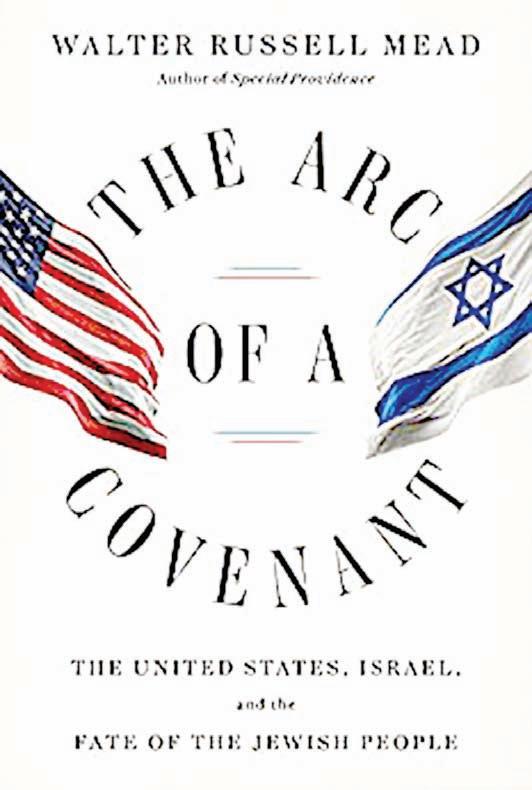
Mead pursues this goal by means of caricature, misrepresentation and absence of research. By making the lobby synonymous with Jewishness, Mead sets up a reductionist argument linking anyone who makes the case for the influence of the Israel lobby with anti-Semitism.
It is wrong to equate the Israel lobby with all American Jews, growing numbers of which are in fact critical of Israeli actions. The lobby is funded by a minority of extraordinarily wealthy Jewish elites, many of whom are Orthodox. As the former AIPAC insider M.J. Rosenberg has acknowledged, “AIPAC uses the resources of wealthy people in the American Jewish community to enforce a kind of political orthodoxy on Congress, on the White House and on the media” to ensure that “no one in a position of power deviates from the Israel line.”
Mead and the reviewers have a sure-fire method of dismissing lobby influence—they simply do not study it. There are only nine page-references to AIPAC in Mead’s 585-pages of text. Effectively
History’s Shadows, a regular column by contributing editor Walter L. Hixson, seeks to place various aspects of Middle East politics and diplomacy in historical perspective. Hixson is the author of Architects of Repression: How Israel and Its Lobby Put Racism, Violence and Injustice at the Center of US Middle East Policy and Israel’s Armor: The Israel Lobby and the First Generation of the Palestine Conflict (available from Middle East Books and More), along with several other books and journal articles. He was a professor of history for 36 years, achieving the rank of distinguished professor.
ignoring what is, beyond question, the most powerful lobby advocating the interests of a foreign country in American history assures the book’s mission to downplay its influence. Similarly, Mead’s book elides the asymmetrical violence and militant repression that characterize Israel’s assault on Palestinians, especially under the more than 50 years of illegal occupation and settlements since the June 1967 war. This book thus combines uncritical support for Israel with indifference to Israeli cruelty and the pain and suffering of Palestinians.
Mead argues, with an irony that is lost upon the author, that for decades the United States ceaselessly pressured Israel while striving to be fair to Palestinians through its advocacy of a two-state solution. “Never in American history,” he writes, “have so many presidents of so many points of view expended so much effort and political capital on a single objective—and never has so signal a failure in American foreign policy led to so little meaningful reflection and change.” It
the lobby gave large sums of money to Deutch throughout his career, it is likely they were simply lining the pockets of a natural ally rather than buying votes.
It’s unlikely the lobby will have a similarly amicable relationship with Deutch’s successor, Rep. David Cicilline (DRI). A member of the Congressional Progressive Caucus, Cicilline defeated long-time American Israel Public Affairs Committee (AIPAC) darling Rep. Brad Schneider (D-IL) to become chair of the Middle East subcommittee. Whereas Schneider would have likely continued the status quo of nearly uncritical support for Israel, Cicilline is more likely to cause some trouble for AIPAC—at least on the margins.
SOUTH FLORIDA has finally relinquished its grip on the House of Representatives’ Subcommittee on the Middle East, North Africa and Global Counterterrorism. Rep. Ted Deutch (D), chair of the committee since 2019, resigned from Congress at the end of September to lead the American Jewish Committee (AJC). His predecessor, Miami-area Rep. Ileana Ros-Lehtinen (R), led the committee from 2013-2019. During their nearly decade in power, the two proud Sunshine State Zionists used their office to dutifully advocate for and protect the state of Israel.
The powerful pro-Israel lobby is undoubtedly disappointed to see Deutch leave Congress, even though he is now officially in their ranks. Given his background and new job, all indications are that Deutch is a true believer in the Zionist cause who didn’t need any pushing from lobbyists to advance Israel’s interests. While

To be clear, Cicilline has ample pro-Israel bonafides. According to Jewish Insider, an online publication that regularly quizzes legislators on their Zionist credentials, Cicilline has supported close U.S.-Israel cybersecurity cooperation, honored former Israeli Prime Minister Shimon Peres and supported legislation critical of the United Nations Relief and Works Agency for Palestine Refugees in the Near East (UNRWA). On his campaign website, Cicilline describes Israel as a “strong and brave democracy” and boasts that he “has been a consistent supporter of a robust relationship” with the country. He also argues that the “United States must be prepared to provide additional assistance to Israel for her increasing defense needs.”
Needless to say, Cicilline has anything but “progressive” values when it comes to Israel. Alas, it is no surprise he was endorsed by AIPAC (and also by the “liberal Zionist” group J Street, which perhaps raises questions about any meaningful differences between “right-wing” and “left-wing” pro-Israel advocacy).
If Cicilline is endorsed by the lobby and regularly regurgitates their hackneyed pro-Israel talking points, why does his ascension
Former Rep. Ted Deutch (D FL) at a hearing on Capitol Hill, on June 15, 2022. Deutch recently resigned from Congress to become the CEO of the pro Israel American Jewish Committee (AJC).to chairman of the Middle East subcommittee represent a change that likely concerns AIPAC and other likeminded groups? The answer is that on Capitol Hill, differences of opinion concerning Israel are typically measured in millimeters rather than miles—and the lobby closely polices those millimeters.
As just one example of how punctilious and petulant the lobby can be, in 2010 AIPAC engaged in a public spat with proIsrael Senate candidate Rep. Joe Sestak (D-PA). Despite boasting he consulted with AIPAC before making any decision regarding Israel, Sestak was attacked for being insufficiently pro-Israel by the Emergency Committee for Israel due to his stated concern about the Israeli blockade of Gaza. When Sestak countered these attacks by saying his voting record aligned with AIPAC’s agenda 100 percent of the time, AIPAC gave him the cold shoulder by noting they technically don’t publish rankings of legislators. It immediately became clear that his opponent, now-Sen. Pat Toomey (R-PA), was the lobby’s preferred candidate. Despite bending his knee to the lobby throughout his career, Sestak learned that even within the proIsrael camp, there are favorites. In the same vein, while Cicilline is an AIPAC ally, he’s likely not a favored son, à la Deutch. It is unclear, of course, if Cicilline will similarly face the wrath of the lobby for his few “indiscretions.” His largest infraction seems to be voting in favor of the 2015 Iran nuclear deal, which was vociferously attacked by the lobby, and which Deutch opposed. Cicilline has also been less willing than Deutch to engage in hyperbolic attacks against his pro-Palestine colleagues. In 2021, he defended Rep. Ilhan Omar (D-MN) from accusations of antiSemitism, calling them “pathetic” smears. On the other hand, in 2021 Deutch accused Rep. Rashida Tlaib (D-MI) of antiSemitism on the House floor after she noted that multiple human rights organizations have determined Israel to be an apartheid state.
The very fact that Cicilline was able to defeat Schneider to win the committee
chairmanship is perhaps an indication that the lobby no longer has the power to take down those who occasionally veer from its script. It’s hard to imagine that a “merely” 90 percent pro-Israel candidate would have defeated a 100 percent proIsrael candidate for Middle East subcommittee chair just a decade ago. Still, questions remain: Will Cicilline’s newfound grip on power cause him to more cautiously deal with Israel? Will the lobby step-up its efforts to bring him completely in line? If so, will he feel the political need to concede to well-financed and heavy-handed lobbying? With midterm elections just around the corner, there’s also the very real possibility that Republicans retake the House and Cicilline will thus lose his chairmanship in January 2023.
Should Cicilline hold on to power post2022, it’s reasonable to assume he will largely mirror the approach of House Foreign Affairs Committee Chairman Rep. Gregory Meeks (D-NY). Like Cicilline, Meeks took the reins of his post from an uber-Zionist, Rep. Eliot Engel (D-NY). Meeks was also seen as a solidly proIsrael legislator, albeit with a tendency to gently deviate from the lobby from time to time. For instance, at the time of his election as chairman in 2020, Meeks was not afraid to speak out against the proposed Israeli annexation of large swaths of the West Bank.
By all appearances, however, the lobby seems to have learned to co-exist with Meeks. He has facilitated the usual proIsrael legislation and relegated any criticisms of the country to toothless, nonbinding statements. Likewise, one could reasonably expect Cicilline to facilitate the status quo, even if it is not with the same pro-Israel fervor of a Deutch or Engel.
Interestingly, Meeks, like Cicilline, defeated an AIPAC favorite, Rep. Brad Sherman (D-CA), to become chairman. In fact, Sherman, the longest serving member of the committee at the time, had to drop out of the race once it became clear he had little support from his colleagues. That made it a race between Meeks and Rep. Joaquin Castro (D-TX), who has been much more willing than Meeks to criticize Israel.
Similar to Schneider’s defeat, Sherman’s foreign policy demise—or even irrelevance—is a strong indication that the lobby is struggling to pull the strings of Congress as it once did. Yet, the overwhelmingly pro-Israel inclinations of “moderate” voices such as Meeks and Cicilline are proof that the lobby is still able to set the tone on Israel in Congress, albeit in a more tempered way. This more “palatable” Zionism, of course, is more likely to be practiced by Democrats— though many in the party, like Rep. Ritchie Torres (D-NY), are still avid devotees of full-throated Zionism.
On that note, while Deutch is out of elected office and a “Zionist light” member now chairs the Middle East subcommittee, his legacy still lives on in South Florida. Jared Moskowitz (D), who shares Deutch’s love of Israel, will in all likelihood soon represent his Fort Lauderdale/Palm Beach area district. Moskowitz recently told Jewish Insider he plans to be “slightly more aggressive than Ted” when it comes to fighting anti-Israel sentiment. During his time as a state legislator, Moskowitz sponsored a 2016 anti-BDS bill that eventually became law.
One should not be surprised if Moskowitz quickly finds his way into Israel-relevant committees on Capitol Hill. ■
Put the Washington Report on Middle East Affairs to work for you!
Have you thought about advertising your company, charity, book, craft, skills or personal service with us—but have never gotten around to it? For information on prices and deadlines, please visit wrmea.org/advertise or e-mail advertising@wrmea.org or call (202) 939-6050 ext. 1105. We will help make your advertising effective. (We offer a 30 percent discount on combinations of print and online banner advertising!)
Back From Campaigning, Congress is Getting Busy
By Julia PitnerBACK FROM THE HOLIDAY and hot off the campaign trail, Congress came back into session with an agenda. With a shortened timeframe for legislation because of elections, after passing the continuing resolution through mid-December to complete the FY23 budget—Israel, Iran, Palestine and the U.N. remained top of mind for many members.
This was especially true in the House Foreign Affairs Committee’s (HFAC) subcommittee on Middle East, North Africa and Global Counterterrorism, whose Chair, Rep. Ted Deutch (D-FL), retired from Congress effective Sept. 30, 2022, to take up his new position as CEO of the American Jewish Committee (AJC), which lobbies on many of the issues over which HFAC has legislative authority. David Cicilline (D-RI) was elected to be the subcommittee’s new chair.
As rumors of progress in the nuclear negotiations with Iran continued to grow, AIPAC circulated a memo to members of Con-
Julia Pitner is a contributing editor of the Washington Report. She lives in the Washington, DC metropolitan area.
gress to remind them of their issues and concerns. The main point of the memo was that any deal which “only imposes nuclear restrictions should not lift sanctions imposed for Iran’s non-nuclear behavior.” It also stated that “any nuclear deal must be accompanied by a comprehensive U.S. strategy to address Iran’s regional aggression, plots to kill Americans and efforts to attack our allies.” The memo reminded members that they “…have an important role to play now by expressing their views on these issues and insisting the administration answer their questions.”
H. Res. 1266, “Requesting the president to transmit certain documents to the House of Representatives relating to any initiative or negotiations regarding Iran’s nuclear program,” was introduced in July by Rep. Virginia Foxx (R-NC) and Joe Wilson (RSC) and was brought up for consideration in the Committee on Foreign Affairs on Sept. 15, 2022. Foxx tweeted that “Reports indicate that the administration is trying to hide the ball on their negotiations until after the midterm elections. Congress must
 Demonstrators chant slogans and wave Iranian flags while marching past the U.S. Capitol during the “March of Solidarity for Iran” in Washington, DC, on Oct. 15, 2022. Mahsa Amini, 22, died on Sept. 16, three days after she was arrested by Iran’s morality police.
PHOTO BY STEFANI REYNOLDS/AFP VIA GETTY IMAGES
Demonstrators chant slogans and wave Iranian flags while marching past the U.S. Capitol during the “March of Solidarity for Iran” in Washington, DC, on Oct. 15, 2022. Mahsa Amini, 22, died on Sept. 16, three days after she was arrested by Iran’s morality police.
PHOTO BY STEFANI REYNOLDS/AFP VIA GETTY IMAGES
step up and do its job!” However, before being sent to the Office of Majority Leader, who controls the calendar, it was given an adverse recommendation stating that the action would harm the ongoing negotiation efforts of the administration. It has not yet been scheduled for a vote, and may not be.
“Solidify Iran Sanctions Act of 2022,” H.R. 8868 was introduced on Sept. 15, 2022, by Rep. Michelle Steel (R-CA) and 18 co-sponsors (10 Republicans, 8 Democrats), “To repeal the sunset provision of the Iran Sanctions Act of 1996, and for other purposes.”
The bill would make the sanctions imposed by the Iran Sanctions Act of 1996, which requires the imposition of sanctions with respect to Iran’s illicit weapons programs, conventional weapons and ballistic missile development, and support for terrorism, including Iran’s Revolutionary Guard Corps, to remain in place indefinitely. It’s been referred to the Committees on Foreign Affairs, Financial Services, the Judiciary, Ways and Means, and Oversight and Reform.
Ahead of the U.N. General Assembly meeting, S. 4856, “A bill to require the denial of admission to the United States for individuals subject to sanctions pursuant to [Trump’s] Executive Order 13876, and for other purposes” was introduced in the Senate on Sept. 14, 2022, by Sen. Ted Cruz (R-TX) and 5 Republican cosponsors and in the House on Sept. 15 by Rep. Claudia Tenney (R-NY) and no cosponsors with the title and language identical to the Senate version. It’s been referred to the Senate Committee on the Judiciary and the House Committee on the Judiciary, respectively. Note that the EO and the two bills are counter to the U.S. Agreement Regarding the Headquarters of the United Nations, signed at Lake Success, on June 26, 1947.
As part of the legislative onslaught on Iran, on Oct. 14, 2022, Rep. Michael McCaul (R-TX) tweeted, “It’s been 127 days since the House-passed Stop Iranian Drones Act was reported favorably out of SFRC [Senate Foreign Relations Committee]. As Russia expands its use of Iranian drones in Ukraine, it’s time for Senate Democratic Leadership to act and urgently bring H.R. 6089 to the Senate floor.”
In response to the ongoing protests and violent repression by the security forces in Iran, the congressional Twitter sphere lit up with support for the protesters, especially the women and girls, by both Republican and Democratic members. However, several Republican members took the opportunity to tell Biden why there should be no negotiations with Iran, although Sen. Ted Cruz came close, most were not as blunt as Rep. Bill Johnson (R-OH), who tweeted, “Israel and the United States did not cause the protests in Iran. Iran’s consistent record of oppressing women and minority groups did. The Iran Nuclear Deal must be off the table.”
In a different twist of similar themes, on Sept. 13, 2022, Reps. Jim Banks (R-IN), Claudia Tenney (R-NY) and Doug Lamborn (R-CO) sent a letter to the president of the Middle East Studies Association of North America (MESA), which in effect accused MESA of supporting anti-Semitism, both through its defense of academic freedom in the case of an academic at the University of Denver who suggested that Israel may have been behind the attempted assassination of Salman Rushdie in an effort to scuttle nuclear negotiations, and through MESA’s endorsement of BDS. They wrote, “As members of the Republican Study Committee, we are committed to providing oversight of the antiSemitism and anti-Americanism which have become rampant in higher education.” This highly unusual intervention from members of Congress on an academic association has no legal or jurisdictional standing. Yet, they requested answers to two very leading questions (statements really) with a deadline to respond.
H.R. 2374, “Peace and Tolerance in Palestinian Education Act,” originally introduced on April 5, 2021, by Reps. Brad Sherman (D-CA), Lee Zeldin (R-NY), Josh Gottheimer (D-NJ), Brian Mast (R-FL) and David Trone (D-MD), would “require the Secretary of State to submit annual reports reviewing the educational material used by the Palestinian Authority, and for other purposes.” The bill was sent to the Foreign Affairs Middle East, North Africa
and Global Counterterrorism subcommittee where it sat until Sept. 14, 2022. Since the signing of the Oslo Accords, similar bills have been introduced in various forms, with various titles, with the belief that the curricula, and not the lived experience, leads to anger and violence in the occupied Palestinian territories.
Adding a new and particularly ironic twist to the bill’s language, Rep. August Pfluger (R-TX) offered an amendment that using the word “apartheid” to characterize Israeli rule over Palestinians be removed from all educational materials. The committee approved the Pfluger amendment with a roll call vote of 42-0. Committee members Reps. Ilhan Omar (D-MN) and Andy Levin (D-MI) were notably absent. The bill passed in committee of Foreign Affairs by voice vote on Sept. 15, 2022.
In an effort to finalize the Senate’s National Defense Authorization Act (NDAA) version, S. 4653, “Department of State Authorization Act of 2022,” was introduced in late July by Sens. Robert Menendez (DNJ) and James E. Risch (R-ID). However, the bill was amended and passed by the Senate Foreign Relations Committee on Sept. 14, 2022. The amendment included two Israel/Palestine-focused provisions. Similar to the House version, the first amendment, “Department of State diplomacy in response to the United Nations Independent International Commission of Inquiry on Israel,” makes it U.S. policy to pursue the dissolution of the COI on Israel and to push for membership on the UNHRC of countries that “do not pursue anti-Semitic or anti-Israel agendas.” The section also requires a report to Congress describing actions taken by the State Department to achieve these goals.
The second, “Report of shooting of Palestinian-American journalist in Jenin,” was offered in committee by Sen. Chris Van Hollen (D-MD), requiring that “Not later than 14 days after the date of the enactment of this Act, the Secretary shall submit to the appropriate congressional committees a complete copy, in classified or unclassified format, as appropriate, of the report overseen by the United States Security Coordinator for Israel and the Palestinian Authority regarding the cir-
cumstances surrounding the shooting of Shireen Abu Akleh in Jenin on May 11, 2022.” This amendment is part of the House version as well.
H.Res. 1359 , “Commemorating the second anniversary of the signing of the Abraham Accords Declaration,” was introduced on Sept. 15, 2022, by Rep. Brad Schneider (D-IL) and 3 bipartisan cosponsors, and referred to the House Committee on Foreign Affairs. The resolution celebrates the normalization and the great benefits it brings to Israel and its new Arab partners while making it U.S. policy to “prioritize the expansion and strengthening of the Abraham Accords by encouraging other countries to normalize relations with Israel and working to ensure that existing agreements reap tangible security and economic benefits for the citizens of those countries.” The resolution does give lip service to concern for Palestinians, asserting (counterfactually) that the Accords “advanced the cause of achieving lasting peace in the Middle East, including through a negotiated solution to the Israeli-Palestinian
conflict that ensures mutual recognition and guarantees that Israelis and Palestinians live side-by-side with freedom, security and prosperity.”
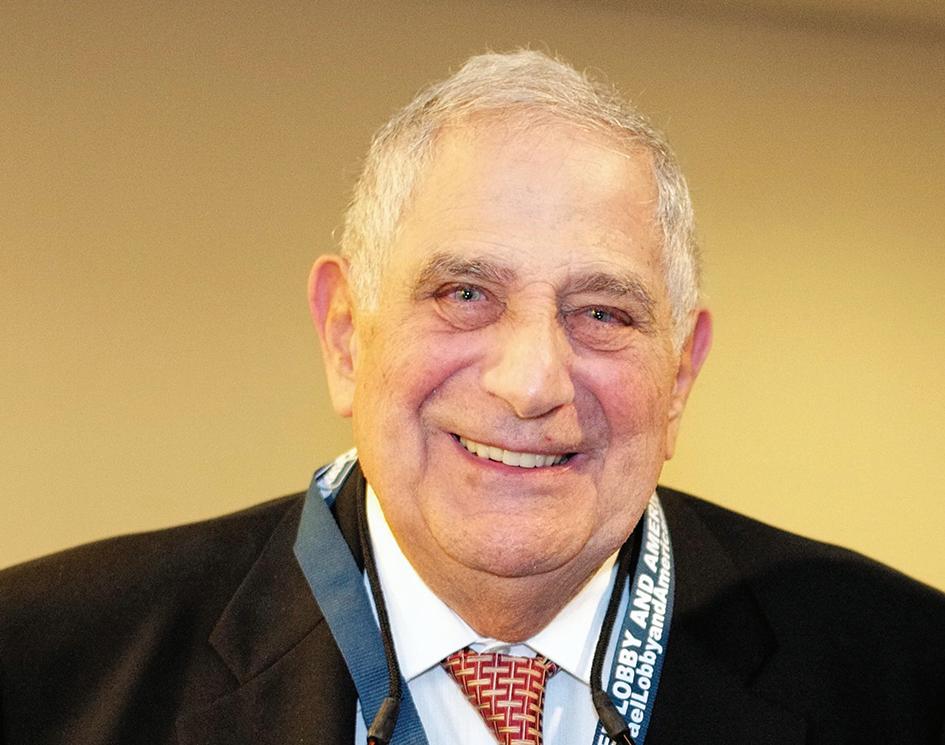
Introduced by Reps. Betty McCollum (DMN), Adam Schiff (D-CA) and Gerry Connolly (D-VA), H.R. 9064 was introduced on Sept. 29, 2022, “To enshrine the legacy of Jamal Khashoggi by protecting dissidents and journalists, codifying the Khashoggi Ban, and introducing the Khashoggi Amendment to the Foreign Sovereign Immunities Act, and for other purposes.” It was referred to the House Committee on the Judiciary.
On Oct. 14, 2022, Reps. Ro Khanna (D-CA), Peter Welch (D-VT) and John Garamendi (D-CA), introduced H.R. 9181, which would place “a 1-year temporary halt to all proposed direct commercial sales and foreign military sales to the Kingdom of Saudi Arabia of weaponry and munitions.” It comes after Sen. Richard Blumenthal (D-CT) and Rep. Ro Khanna (D-CA) co-authored an op-ed appearing on Oct. 9 in Politico
making the case that “The Best Way to Respond to Saudi Arabia’s Embrace of Putin” is to “halt arms sales to Saudi Arabia and rebalance the U.S.’ relationship with Riyadh.” The list of misdeeds was expanded upon via tweets by Khanna and Blumenthal to include patterns of human rights abuses, the murder of Khashoggi and the war in Yemen. Many Republican congressional members were quick to equate this action with former President Trump’s quid pro quo with Ukraine and weapons via Twitter.
Ending with a bit more good news, H.R. 8864, was introduced on Sept. 15, 2022, by Reps. Jamie Raskin (D-MD) and Steve Cohen (D-TN), “To amend title 28, United States Code, to establish a procedure to dismiss, punish and deter strategic lawsuits against public participation (SLAPP), and for other purposes.” It’s been referred to the House Committee on the Judiciary. SLAPPs are used to silence and harass critics by forcing them to defend against baseless suits. They have been used against Palestinian rights activism and free speech critical of Israel. ■






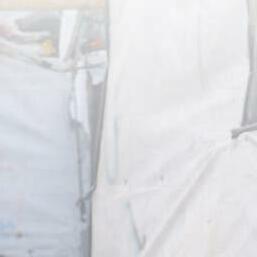

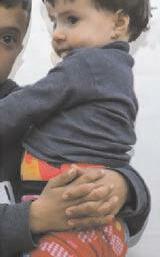



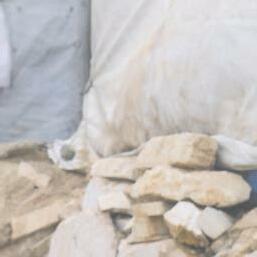
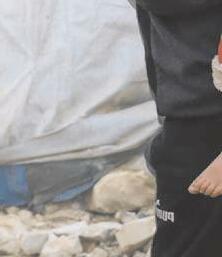
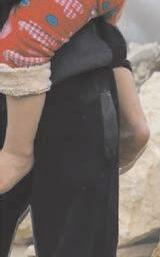

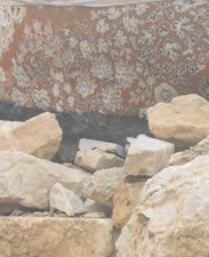


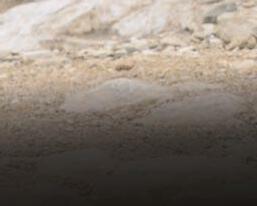







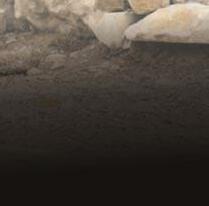

THE ISSUE OF PALESTINIAN TEXTBOOKS is not a new one as indicated by the title of this article, which was taken from an academic piece written by Fouad Moughrabi in 2001. Twenty-one years and 14 curricula studies later, the issue of Palestinian textbooks remains as political as ever. Israel is again claiming that that Palestinian violence is caused by what is being taught in schools and the U.S. Congress is following suit demanding yet another review of the curricula.
In 2019, the European Union took the same path with a commissioned study on incitement in Palestinian textbooks which was completed just last year, after claims by IMPACT-se, a Jerusalembased watchdog, that the curriculum for 2018-19 was “more radical than those previously published.”
“There have been allegations that some elements in Palestinian school textbooks are not in line with international standards for
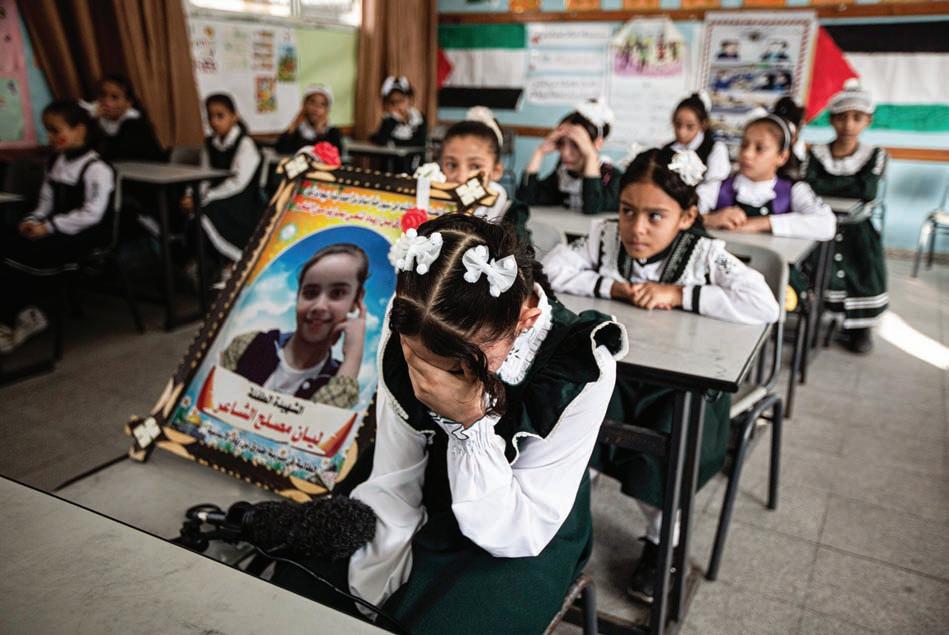 By Julia Pitner
By Julia Pitner
peace education. These allegations have been contested by multiple sources. Therefore, the EU is planning to fund a study, to be carried out by an independent and internationally recognized research institute,” an EU spokesperson confirmed to Euronews in May 2019. The EU froze funds to the Palestinian Authority until the study was completed by the renowned Georg Eckert Institute for International Textbook Research. Although the EU released the funds in 2021, the conclusions of the 20192021 Georg Eckert Institute report were immediately criticized and “contested by multiple sources.”
This has been the fate of all previous such studies since the first in 1998, by the United Nations Relief and Works Agency (UNWRA) at the behest of the U.S. State Department, which came in response to allegations of anti-Semitic statements in their textbooks from the Center for Monitoring the Impact of Peace (now called IMPACT-se).
The controversies of textbook curricula are not new nor is it unique to the Palestinian situation. It is happening inside the U.S. right now, as it has in other countries. As Michael Apple, an educational theorist who specializes in curricula and research explains in his work, textbooks are the result of complex power relations and struggles among identifiable class, race, gender/sex and religious groups. This was underscored by Moughrabi in his 2001 article when he wrote that by “focusing on what is included and excluded in school textbooks, these controversies serve a proxy for wider questions of power relations in society.” In the Palestinian context, these power relations and struggles are exacerbated by the ongoing political situation and are subjected to demands for review of only the Palestinian curricula in relation to incitement. The history, culture and context are thus sanitized, and the results used, not to improve educational standards, but as a weapon to
Friends of 11 year old Palestinian student Lian Al Shaer get emotional on the first day of the school year, Aug. 29, 2022, near a picture of Lian, who was killed after sustaining injuries from the recent Israeli air strikes in Khan Yunis, southern Gaza Strip. Israel claims that it is the curricula in schools that cause violence, instead of Palestinians’ lived experiences. PHOTO BY YOUSEF MASOUD/SOPAfurther delegitimize the Palestinian narrative and lived experience.
The Israeli claim that it is the curricula in schools that is causing the ongoing Palestinian violence is disingenuous at best and willfully ignores the political and historical context. Before 1994, Palestinians had no control over what was taught in their schools. The Palestinian citizens of Israel were taught the Israeli approved curricula and yet there were protests and clashes inside Israel, commemorated every year by Palestinians as Land Day. After 1967, when Israel took control of the West Bank and Gaza, the Palestinians there used heavily Israeli-censored textbooks from Jordan and Egypt, respectively. Yet again, there were ongoing protests and clashes, the most famous of which was the first intifada, which lasted until the advent of the Madrid peace process.
Although Middle East history is not a strong point among American legislators, it is an election year and so the House Foreign Affairs Committee jumped right back into the Palestinian textbook controversy with its September passage of the “Peace and Tolerance in Palestinian Ed-
ucation Act” bill. The bill sat dormant for over a year in the MENA subcommittee of the House Foreign Affairs Committee but was dusted off shortly before the chair, Rep. Ted Deutch (D-FL) left his position in Congress to become the new head of the American Jewish Committee.
The original sponsor the bill, Rep. Brad Sherman (D-CA) and all but three of the 47 co-sponsors have benefited from proIsrael campaign support while of the 20 members of the House Foreign Affairs Committee, only four members of the Foreign Affairs Committee—Ilhan Omar (DMN), Albio Sires (D-NJ), Gerald Connolly (D-VA) and Young Kim (R-CA)—have received no campaign support from proIsrael groups.
The bill, should it become law, would once more require the Department of State to report on the curriculum used in schools in areas controlled by the Palestinian Authority and in Gaza (aka UNRWA and Hamas-led schools) on whether the materials used encourage violence or intolerance toward other nations or ethnic groups, document steps the Palestinian Authority is taking to reform such materi-
als, and whether U.S. foreign assistance is used to fund the dissemination of the offending materials. However, unlike past studies, Rep. August Pfluger (R-TX), also a recipient of pro-Israel support, added two additional items to look out for—criticism of Israel and use of the word “apartheid” to characterize Israeli rule over Palestinians. Given the appetite his state, along with many others, seem to have for banning books and “critical race theory” aka inclusive history, ignoring the history and lived experiences of Palestinians seems somehow fitting.
In the end, the conflict is not inspired by the content of the textbooks but by the content of the politics of the conflict. Before the full House votes on this bill, the members would be well served to review the report of the U.N. Human Rights’ Commission of Inquiry on the Occupied Palestinian Territory, including East Jerusalem, and Israel on the root causes of the ongoing conflict there. Simply put, it’s the daily wounds of the occupation. Oh right, they are currently fighting to defund the Commission because it’s “biased.” ■

THIS HEADLINE in the Israeli newspaper, the Jerusalem Post, only tells part of the story: “The Lions’ Den, Other Palestinian Groups are Endless Headache for Israel, PA.”
It is true that both the Israeli government and the Palestinian Authority are equally worried about the prospect of a widespread armed revolt in the occupied West Bank, and that the newly formed Nablus-based brigade, the Lions’ Den, is the epicenter of this youth-led movement.
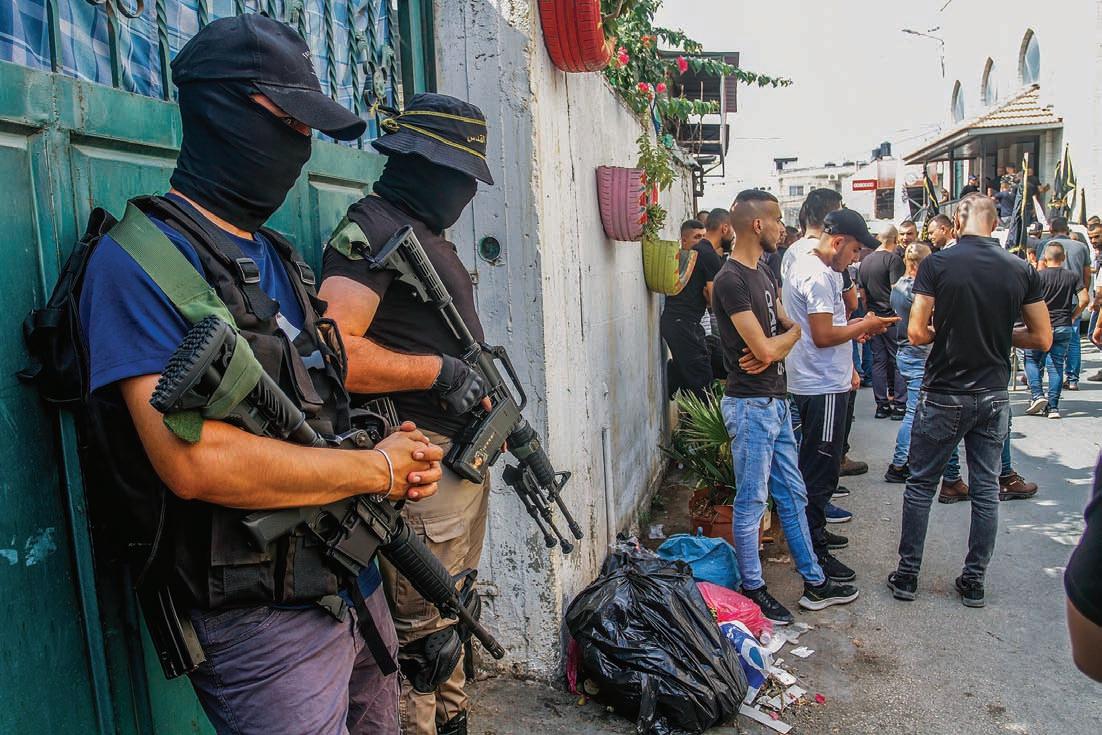
However, the growing armed resistance in the West Bank is causing more than a mere “headache” for Tel Aviv and Ramallah. If this
Dr. Ramzy Baroud is a journalist, author and editor of Palestine Chronicle. His latest book, co edited with Ilan Pappé, Our Vision for Liberation: Engaged Palestinian Leaders and Intellectuals Speak Out, is available from Middle East Books & More. Dr. Baroud is a non resident senior research fellow at the Center for Islam and Global Affairs (CIGA). His website is <www.ramzybaroud.net>.
phenomenon continues to grow, it could threaten the very existence of the PA, while placing Israel before its most difficult choice since the invasion of major Palestinian West Bank cities in 2002.
Although Israeli military commanders continue to undermine the power of the newly formed group, they seem to have no clear idea regarding its roots, influence and future impact.
In a recent interview with the Israeli newspaper Yedioth Ahronoth, Israeli Defense Minister Benny Gantz claimed that the Lions’ Den is a “group of 30 members,” who will eventually be reached and eliminated. “We will lay our hands on the terrorists,” he declared.
The Lions’ Den, however, is not an isolated case, but part of a larger phenomenon that includes the Nablus Brigades, the Jenin Brigades and other groups, which are located mostly in the northern West Bank.
The group, along with other armed Palestinian military units, has been active in responding to the killing of Palestinians, including children, elders and, on October 14, even a Palestinian doctor, Abdullah
Abu al-Teen, who succumbed to his wounds in Jenin. According to the Palestinian Ministry of Health, more than 170 Palestinians were killed in the West Bank and Gaza, since the beginning of the year.
The Palestinian response included the killing of two Israeli soldiers, one in Shuafat on October 8, and the other near Nablus on October 11.
Following the Shuafat attack, Israel completely sealed the Shuafat refugee camp as a form of collective punishment, similar to recent sieges on Jenin and other Palestinian towns.
Citing Israel’s Hebrew media, the Palestinian Arabic daily Al Quds reported that the Israeli military will focus its operations in the coming weeks on targeting the Lions’ Den. Thousands more Israeli occupation soldiers are likely to be deployed in the West Bank for the upcoming battle.
It is difficult to imagine that Israel would mobilize much of its army to fight 30 Palestinian fighters in Nablus. But not only Israel, the PA, too, is terribly concerned.
The Authority has tried but failed to entice the fighters by offering them a surrender “deal,” where they give up their arms and join the PA forces. Such deals were offered in the past to fighters belonging to Fatah’s Al Aqsa Martyrs Brigades, with mixed degrees of success.
This time around, the strategy did not work. The group rejected the PA’s overtures, compelling the Fatah-affiliated governor of Nablus, Ibrahim Ramadan, to attack the mothers of the fighters by calling them “deviant” for “sending their sons to commit suicide.” Ramadan’s language, which is similar to language used by Israeli and pro-Israel individuals in their depiction of Palestinian society, highlights the massive schisms between the PA’s political discourse and those of ordinary Palestinians.
Not only is the PA losing grasp of the narrative, it is also losing whatever vestiges of control it has left in the West Bank, especially in Nablus and Jenin.
A senior Palestinian official told the Media Line that the Palestinian “street does not trust us anymore,” as they “view us as an extension of Israel.” True, but this lack of trust has been in the making for years.
Palestinian farmers wait for Israeli soldiers to open the gate of the Israeli settlement of Elon Moreh to reach Palestinian olive groves during the olive harvest in eastern Nablus in the occupied West Bank, on Oct. 18, 2022.
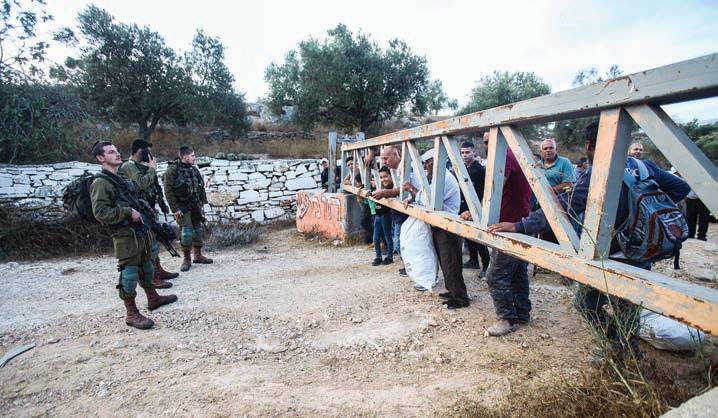
The “Unity Intifada” of May 2021, however, served as a major turning point in the relationship between the PA and Palestinians. The rise of the Lions’ Den and other Palestinian armed groups are but a few manifestations of the dramatic changes underway in the West Bank.
Indeed, the West Bank is changing. A new generation that has little or no memory of the Second Intifada (2000-2005), had not experienced the Israeli invasion then but grew up under occupation and apartheid, feeding on the memories of the resistance in Jenin, Nablus and Hebron.
Judging by their political discourse, chants and symbols, this generation is fed up with the crippling and often superficial divisions of Palestinians among factions, ideologies and regions. In fact, the newly established brigades, including the Lions’ Den, are believed to be multi-factional groups bringing, for the first time, fighters from Hamas, Fatah and others into a single platform. This explains the popular enthusiasm and lack of suspicion among ordinary Palestinians of the new fighters.
For example, Saed al-Kuni, a Palestinian fighter who was recently killed by Israeli soldiers in an ambush on the outskirts of Nablus, was a member of the Lions’ Den. Some have claimed that alKuni was a leading member of Fatah’s Brigades, and others say he was a wellknown Hamas fighter.
This lack of certainty regarding the political identity of killed fighters is fairly unique to Palestinian society, at least since the establishment of the PA in 1994.
Expectedly, Israel will do what it always does: amassing more occupation troops, attacking, assassinating, crushing protests and laying sieges on rebellious towns and refugee camps. What they fail to understand, at least for now, is that the growing rebellion in the West Bank is not generated by a few fighters in Nablus and a few more in Jenin, but is the outcome of a truly popular sentiment.
In an interview with Yedioth Ahronoth, translated by Al-Quds, an Israeli commander described what he has witnessed in Jenin during a raid:
“When we enter (Jenin), armed fighters and stone throwers wait for us in every corner. Everyone takes part. You look at an old man...and you wonder, will he throw stones? And he does. Once, I saw a person who had nothing to throw (on us). He rushed to his car, grabbed a milk carton and he threw it on us.”
Palestinians are simply fed up with the Israeli occupation and with their collaborating leadership. They are ready to put it all on the line, in fact, in Jenin and Nablus, they already have. The coming weeks and months are critical for the future of the West Bank, and, in fact, for all Palestinians.
The “historic” agreement between longtime foes opens the door to offshore energy exploration, but several sticking points remai n.
ISRAEL AND LEBANON, two countries technically at war, finally reached an agreement on October 11 to end a long-running dispute over their maritime border, opening the door to offshore energy exploration in the Mediterranean Sea.
While the text of the U.S.-brokered deal has yet to be officially made public, a leaked copy was widely circulated.
Lebanese President Michel Aoun on October 6 announced his country’s acceptance of the text brokered by Amos Hochstein, the U.S. Department of State’s energy envoy, saying “this indirect
Federica Marsi is a journalism graduate from City University of London. Before moving to Beirut, she reported from Tunisia and the occupied Palestinian territories. This article was published in Al Jazeera. Reprinted with permission. She has also written for Vice UK, Open Democracy, The Middle East Magazine, Wired and other publications. Follow her @bocchi
agreement responds to Lebanese demands and maintains all our rights.”
Israel’s government voted the previous day to move forward with the deal, which is expected to be reviewed shortly by the Knesset—the parliament—without being brought to a vote.
The deal sets a border between Lebanese and Israeli waters for the first time, largely along a demarcation referred to as Line 23. Lebanon had previously been opposed to bringing Line 23 to negotiations as it would have meant ceding part of the Karish field to the Israelis, sharing the Qana gas field, and reducing the areas of Blocks 8 and 9 that belong to Lebanon.
Under the terms of the agreement, Israel retains full rights to develop the Karish field while Lebanon retains full rights in Qana— but with a caveat. As Qana extends southward across Line 23, the deal allowed Israel to get a share of royalties through a side
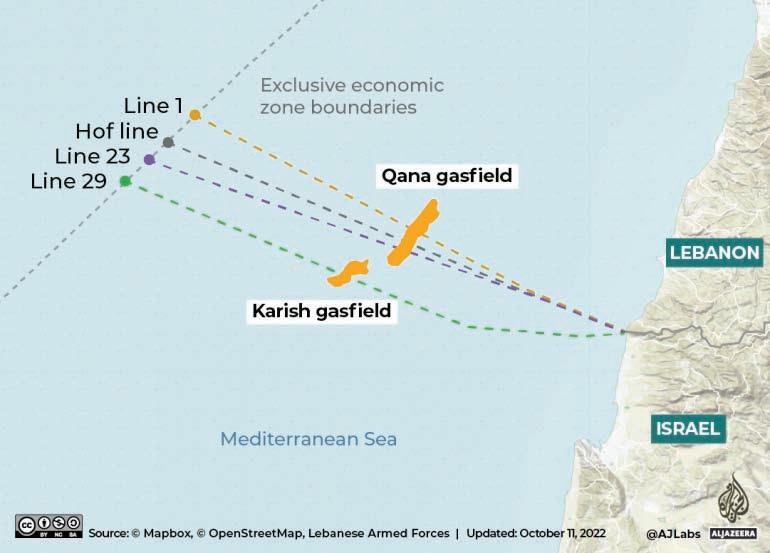
agreement with the Block 9 operator, the French company Total.
In the event of cross-border deposits being identified, the two parties agreed to mediate a solution through the United States.
The deal will take effect once Lebanon and Israel send letters to Washington, which will issue a notice announcing an agreement is in place. On that day, Lebanon and Israel will simultaneously— but separately—send the new boundary’s coordinates to the United Nations.
Both parties also agreed not to submit new charts or coordinates to the U.N. in the future unless they have been agreed upon bilaterally.
The maritime border was drawn from the sea, with the first five kilometers (2.2 miles) following the so-called “line of buoys” and then following along Line 23.
The biggest loophole, experts said, is that the deal did not specify an arrangement on profit distribution but deferred agreeing on what royalties Israel will get from the Qana field to a future date.
“Israel shall work with the Bloc 9 Operator in good faith to ensure that this agreement is resolved in a timely fashion,” the text of the leaked agreement reads.
Determining how Israel’s royalties will be calculated may not be as straightforward as it sounds, especially given that Lebanon’s energy minister said last month that it would take a 20 percent share from Russia’s Novatek in a consortium licensed to explore Bloc 9—which lies in the disputed border area—and Bloc 4.
According to Marc Ayoub, associate fellow at the American University of Beirut’s Issam Fares Institute, the terms of the deal are tantamount to saying the development of the Qana field by Lebanon hinges on Israel’s deal with Total. “What if this agreement with Total doesn’t work? Then all activities risk being halted,” Ayoub said.
Cyprus and Israel, for instance, have been bogged down in negotiations for several years on profit distribution for the development of the Aphrodite-Yishai joint
reservoir, most of which is located in the economic waters of Cyprus.
According to Mona Sukkarieh, political risk consultant and co-founder of Middle East Strategic Perspectives, the deal is “standard.”
“This is not surprising in itself. Since a country holds sovereign rights to exploit resources in its EEZ [exclusive economic zone], it will have a say in the development of cross-border reservoirs that extend into its EEZ,” she said. But the situation is made more complex by the “nature of relations between Lebanon and Israel, which rules out a unitization agreement between the two countries and even joint development of cross-border reservoirs because Lebanon considers it as a form of normalization,” Sukkarieh said.
In Lebanon, some observers have been disappointed. “Our expectation was that it would be a fairer agreement,” Ayoub said. “What we have seen is that it gives more advantages to Israel rather than Lebanon.”
Beirut demanded that Line 29 further south be the border. An agreement on Line 23 means a loss of approximately 1,800 sq km (695 sq miles), according to the energy expert. “It opens Lebanese maritime blocs for exploration, but it came at a cost,” said Ayoub.
With the Lebanese economy in complete collapse, Beirut sees the maritime deal as an opportunity to unlock foreign investment and lift the country out of its spiralling economic crisis. However, the potential for gas exploitation to reduce a government debt of about $100 billion is limited.
Qana has yet to be explored and sufficient quantities of gas to make extraction economically viable may not be found at the reservoir. In the best-case scenario— the discovery of more than 15 trillion cubic feet (424 billion cubic meters) of natural gas reserves—revenues could be up to $6 billion over 15 years.
Assuming gas is plentiful, it will still take years before revenues reach state coffers. Some also fear the rampant corruption
that has characterized Lebanon’s governing system may prevent the money from ever benefitting about 3 million people living below the poverty line.
Diana Kaissy, advisory board member at the Lebanese Oil and Gas Initiative (LOGI), told Al Jazeera that Lebanon does not have mechanisms, including a sovereign wealth fund and a fiscal act, to adequately govern the oil and gas sector. Without reforms, “the money will likely be stolen,” Kaissy said.
On the other side of the border, Israel has largely been celebrating the deal. According to Asher Kaufman, director of the Kroc Institute for International Peace Studies at the University of Notre Dame, settling the maritime border issue gives Tel Aviv the green light to tap into Karish’s 2.4 trillion cubic feet (68 billion cubic meters) of natural gas without incurring the wrath of Lebanon’s Hezbollah group.
In September, Hezbollah leader Hassan Nasrallah called the extraction of gas from Karish by Israel a “red line.” In turn, Israel’s defense minister Benny Gantz said if Hezbollah harmed its offshore rig, “the price will be Lebanon.”
Alongside easing regional tensions, the deal could also be a boon for Europe as it attempts to disengage from Russian gas over Moscow’s invasion of Ukraine. “Looking ahead, Karish could be another resource to cover European energy needs,” Kaufman said.
The agreement has been hailed as “historic” and mutually beneficial. It represents the first significant diplomatic breakthrough between the two countries in years.
After multiple failed U.S.-brokered negotiations, a deal has come at “the right historical time for the wrong reasons,” Kaufman said, alluding to Lebanon’s economic woes and Israel’s political crisis.
Israel’s government is rushing to have the deal approved before a national ballot on Nov. 1, its fifth election in less than four years. Prime Minister Yair Lapid, a centrist,
 By Mustafa Fetouri
By Mustafa Fetouri
TROUBLE IN ALGERIAN-MOROCCAN relations is always lurking just beneath the surface, waiting for a trigger to flare up into a sprawling diplomatic and political crisis that usually takes longer than expected to resolve. The two North African countries’ bilateral ties have been testy, a major bone of contention being the support given by each country to the separatist movements in the other country. The Western Sahara desert strip on the Atlantic coast is claimed by Morocco but the Polisario Front, supported by Algeria, claim it as an independent country for the Sahrawi people. In July 2021, Morocco’s United Nations ambassador openly supported self-determination of the Kabylie region in Northern Algeria in response to its support of the Polisario Front.
Mustafa Fetouri is a Libyan academic and freelance journalist. He is a recipient of the EU’s Freedom of the Press prize. He has written extensively for various media outlets on Libyan and MENA issues. He has published three books in Arabic. His email is mustafa fetouri@hotmail.com and Twitter: @MFetouri.
Because of these (and other) tensions, the borders between the two countries have been closed since 1994. Moroccan farmers who have been farming land across the border in Algeria have been expelled, further splitting families that have already been separated by the closed borders. Rabat’s pleas for resolving the situation have fallen on deaf ears.
The negative impact of these tensions affect regionwide issues, making cooperation the more difficult. The Arab Maghreb Union was created in 1989 to promote free trade, free movement of capital and people, and more regional economic cooperation among five North African countries: Algeria, Libya, Mauritania, Morocco and Tunisia. But as a result of the Algerian-Moroccan political bickering, the union, which had represented huge hope for millions of people, never really achieved much in 33 years.
Even during the COVID-19 pandemic, when cooperation was critically needed, politics made it impossible for countries in the region to come together for the common good.
The latest deterioration of relations came about in the summer of 2021 with the trigger, this time, being external rather than bilateral or regional. There was a new player in the mix: Israel.
In July 2021, media outlets reported that Morocco used the Israeli spyware Pegasus to hack Algerian officials’ phones. In February 2022, Rabat and Tel Aviv signed a $500 million military deal: Israeli would supply Morocco with Barak MX air and missile defense systems. Rabat had already acquired the Israeli Skylock Anti-Drone System in 2020.
In July 2022, the Israel Defense Forces’ chief of staff, Aviv Kochavi, visited Morocco to meet his Moroccan counterpart after his boss, Defense Minister Benny Gantz, signed a security deal with Morocco in November 2021. Israel now supplies Morocco with various military technology, including drones. In late September 2022, Rabat was receiving air systems including drone-mounted systems for Morocco’s Turkish- and Israeli-supplied drones. The 30-month contract is said to be worth around $70 million.
Regional observers question why Morocco is acquiring so much weaponry at a time of high tensions with Algeria. While no one is expecting any military confrontation between the two countries, the potential exists

The Algerian government is infuriated to see Morocco buying so much Israeli weaponry and welcoming Israelis with open arms. Many believe that Algeria is being punished for its anti-Israeli diplomacy in Africa and its support for Palestinians. In August 2021, Algiers led the latest political and diplomatic campaign inside the African Union to keep Israel out of the continental organization. Algeria’s classic position of supporting the Palestinians has not changed for decades; it rejects any normalization with Israel, a position that puts it at odds with a quarter of the countries in the Arab League, which have established relations with Israel. In fact in May, Algerian lawmakers submitted a bill to parliament criminalizing normalization with Israel, including
articles prohibiting travel or any direct or indirect contact with Tel Aviv.
Just as the British developed the policy doctrine of “divide and conquer” in India, Israel is developing what could be called “divide and normalize.” The idea is to divide its Arab neighbors over their central cause—Palestine—despite the overwhelming public support Palestinians enjoy across the Arab world. Israel wants the Palestinian issue to be viewed as an internal matter settled within its domestic policies, not a case of colonization.
Algeria has every right to worry about the increased Israeli presence on its 1,400-kmlong porous border, given the apartheid state’s history of destabilizing its enemies. Last year Algeria accused Israel and Morocco of having links to Algeria’s own separatist groups, particularly in its northern regions. It even claimed such groups started the devastating 2021 forest fires that claimed the lives of more than 90 people and burned hundreds of acres. (However, it did not produce any evidence to support its claims.)
The increased Israeli presence in North Africa is adding more poison to the already troubled relations between Rabat and Algiers. On Aug. 24, 2021, Algeria cut all ties with Morocco. Announcing the decision, Al-
gerian Foreign Minister Ramtane Lamamra cited normalization between Israel and Morocco as a factor. During his visit to Rabat a few days earlier, Israel’s then-Foreign Minister Yair Lapid admitted that he discussed Algeria with his Moroccan host. He went on to criticize Algeria for getting closer to Iran. Lamamra’s response: “Since 1948 [the creation of Israel], we did not hear any member of an Israeli government issuing judgments or sending aggressive messages from the

The world’s largest supplier of flags, lapel pins, decals, flag patches, key rings and many other accessories & proud of it!
Order online
<alamoflag.com>
Shop in person 7 days a week: 6134-R Arlington Blvd. Falls Church, VA 22044
Phone: (703) 534-8158
email: order@alamoflag.com
territory of an Arab country against another Arab country.”



Algeria, which finds itself isolated, will naturally look for allies, including Iran—Israel’s sworn enemy. Again the widening political and military exchanges between Rabat and Tel Aviv have dragged the region into the established animosities between Iran and Israel, further making any Algerian-Moroccan reconciliation more difficult. It also drags Israel into the Western Sahara problem.
Another factor contributing to the recent deterioration of relations between Algeria and Morocco is the Trump administration’s foreign policy initiative known as the Abraham Accords. The accords made it possible for Rabat to normalize relations with Israel as did other Arab countries including Bahrain and United Arab Emirates. In return, Rabat got what it never expected: an official U.S. recognition of its sovereignty over the Western Sahara. Rabat signed the accords in September 2020, and three months later Washington recognized Morocco’s sover-
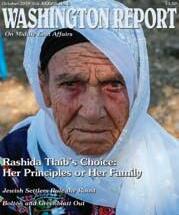

eignty over the Western Sahara—a major shift in U.S. foreign policy. Obviously that did not please Algeria, nor did it help the United Nations, which had been trying for decades to find a negotiated solution to the Western Sahara dispute.

Trump was clearly intent on helping Tel Aviv and had no concern for the long-term consequences in the region and arguably no concern for U.S. interests. The Abraham Accords did not help peace between Israel and the Palestinians; it alienated the weaker party, the Palestinians, and made the twostate solution, which was nominally the official U.S. policy, even less likely.

Thanks to the Abraham Accords, Tel Aviv has managed to normalize ties with four Arab countries, marginalizing the Palestinians but also making a mockery of long-held U.S. positions in the region. The U.S., now in contravention of international law, recognizes Israel’s annexation of the Golan Heights and East Jerusalem as part of Israel. The accords have made it even more difficult to improve ties between Rabat and Algiers.
Is there any hope of Algerian-Moroccan rapprochement in the near future?
Algeria is hosting the Arab League summit (Nov. 1-2), but the Algerian-Moroccan disputes are not even on the agenda. Also it is unlikely that the summit will produce any strong condemnation, as is usually the case, of Israel’s oppression of the Palestinians. Nearly a quarter of the Arab League members now have relations with Israel and they are likely to object to any strongly worded statements against Tel Aviv.
While all that is happening another trigger is looming to further complicate the situation between Algeria and Morocco. On Oct. 1 the Moroccan Ministry of Culture sent a letter to the German sportswear maker Adidas after the company unveiled its new Algerian football jersey design, accusing it of “appropriating” Moroccan culture in the new design. This episode has not, yet, triggered any further troubles between Algeria and Morocco but it certainly has the potential to do just that. ■
the war in Ukraine is reprehensible. If it is silent, its silence is disgraceful; if it speaks, its speech is hypocritical. And yet, one cannot remain silent when an annexing state preaches morality to another annexing state.
IRONY IS HANGING its head in shame; hypocrisy is embarrassed. Israel is giving them a bad name. The Foreign Ministry announced Sept. 30 that “Israel supports the sovereignty and territorial integrity of Ukraine. We will not recognize the annexation of the four provinces by Russia.”
Where to begin? With one occupying state preaching to another occupying state? With an annexing state announcing that it won’t recognize another state’s announcement of annexation? Or perhaps with the gap that has finally opened up between the governments of Yair Lapid and of Binyamin Netanyahu: Netanyahu’s Israel was silent, Lapid’s Israel preaches morality. One is bad and the other is even worse.
The questions arise on their own: Which is better, hypocrisy or telling the shameful truth? Whataboutism, or closing your eyes to what is happening around you? Any move Israel takes regarding
Gideon Levy is an Israeli journalist and author. This article was first published in Haaretz , Oct. 2, 2022 © Haaretz . Reprinted with permission.
The disgrace of silence and inaction was ascribed to fear of Russia, but what about the hypocrisy? What purpose does it serve? Does any country buy Israel’s self-righteousness—it doesn’t recognize the annexation of the four provinces—at a time when Israel is trying to persuade world leaders to recognize its own annexations of East Jerusalem, parts of the West Bank and the Golan Heights, and even to expand them again and again, if only it were allowed?
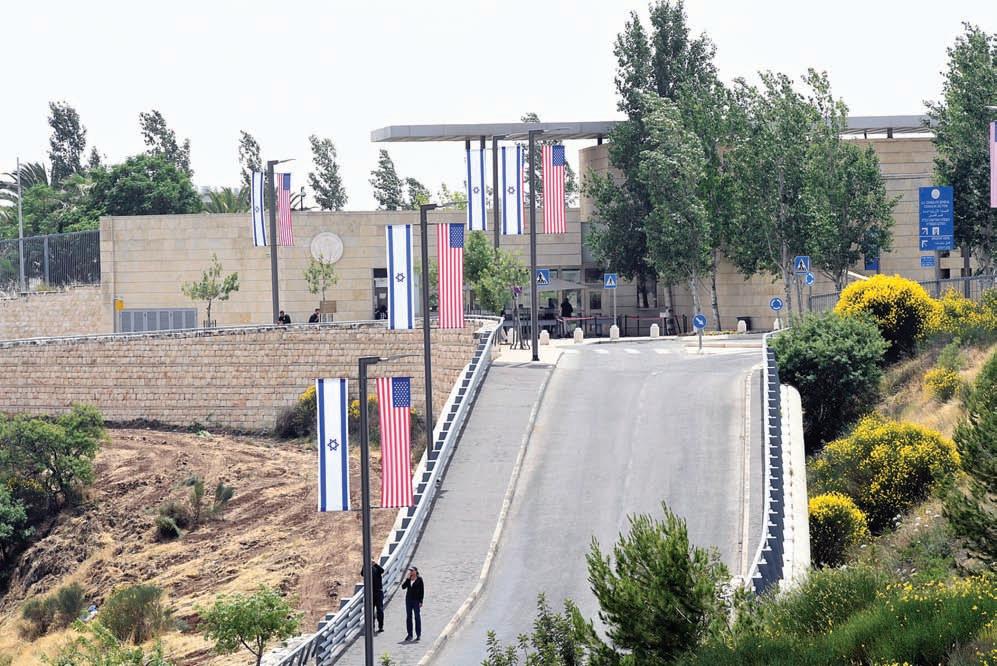
There is no fundamental difference between tearing Ukraine into shreds and tearing Palestine into shreds. Tearing apart Palestine is even less moral. The Ukrainians have a state, districts of which have been ripped away; the Palestinians do not have a state, and tearing away the remnants of their land means that they never will have a state. A prime minister who supports this, in his actions or omissions, cannot preach morality to another country. It would be better for him to stay silent, out of shame.
It’s amazing to see how not one muscle twitches on the faces of Israel’s decision makers and ordinary citizens when talking about the Russian occupation. How sanctimonious: the Russian occupation is so cruel and so brutal, so ugly; it violates international law and the resolutions of the international community. And the Russian soldiers? Did you see how cruel they are? They kill children and bomb homes. So many innocent victims in Ukraine that you could
The Trump administration moved the U.S. Embassy from Tel Aviv to David Flusser Street in Jerusalem in 2018. The former U.S. Embassy on HaYarkon Street in Tel Aviv is now called the Branch Office of the Embassy. Trump also shut down the U.S. consulate on Mamilla Road (later renamed Agron Road) in 2019. That building had been a U.S. diplomatic presence in Jerusalem for more than a hundred years. PHOTO COURTESYTHE TENSE RUN UP run up to the U.N. vote against Putin’s annexation of tracts of Ukraine was, in the end, as unequivocal as most votes against Israeli occupation, although you will rarely see the comparison in the U.S. or UK press. Those who voted outright to support Putin’s folly—North Korea, Nicaragua, Syria and Belarus— were as unprincipled and dependent on Russia as the handful of atolls, who support Israel, are on U.S. handouts.
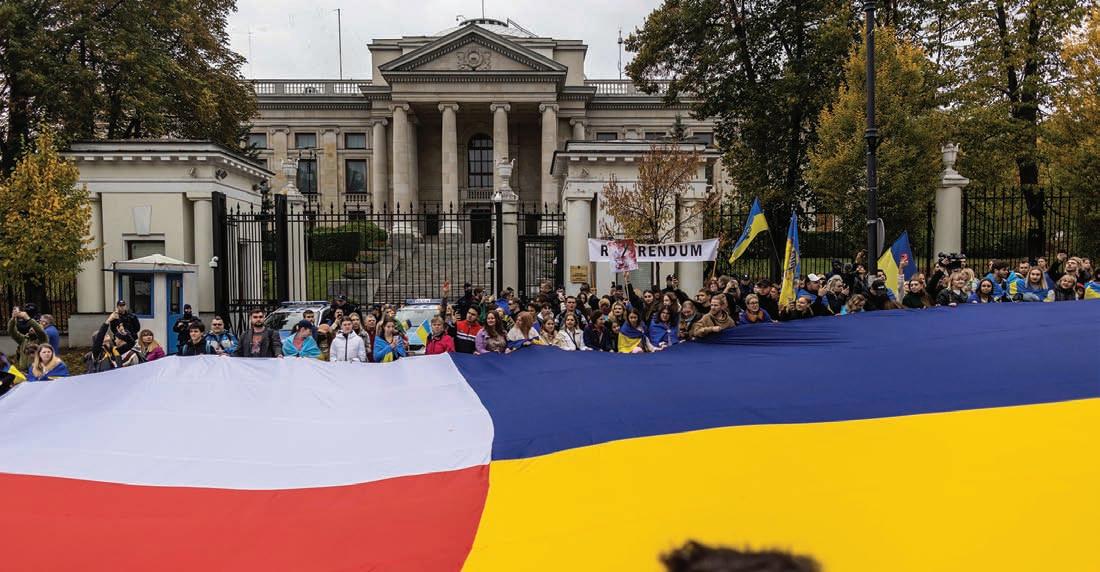
There were competing forces. Those, like Syria and North Korea who would vote for Russia if Moscow declared the moon was made of green cheese; those who would vote for basic U.N. principles; and the 35 abstainers who, if they had convictions, did not have the courage to express them. It was perhaps one of the few U.N. decisions that had a peacemaking effect—both India and Pakistan, at loggerheads for 70 years, chickened out in tandem. It was an axis of authoritarianism if you look at the regimes that ducked taking a position.
Saddam Hussein’s invasion and annexation of Kuwait attracted near universal condemnation at the U.N.—even from Russia and Syria. Some basic principles are inconveniently universal, not “ad
U.N. correspondent Ian Williams is the author of U.N.told: the Real Story of the United Nations in Peace and War (available from Middle East Books and More).
nationem,” principles. That is why the voting statistics at the U.N. are so interesting. Moscow’s actual supporters are few—and notoriously not nice. The common factor they share with most of the abstainers, is that anyone taking part in any kind of protest in their countries would be in for an uncomfortable experience. The abstentions however do not mean support for the invasion but rather, in the amoral words of Secretary of State James Baker over the Balkans, “we don’t have a dog in this fight.”
So, we must also consider the “Good Samaritan” effect—or the absence of it. Unlike the character in the parable, most people, and most countries, would deplore the crime but would not intervene to prevent or help. There is a certain sordid self-interested sense to this. Why on earth would any but the most highly principled developing country harm its economy by applying sanctions on Russia, while Europe and the U.S. continue to strengthen Putin’s sinews of war by gorging him on petrodollars?
As a result, this 2022 U.N. General Assembly re-raised the fundamental question about the organization. What is it for? The bedrock injunction in the U.N. Charter says it is “To save succeeding generations from the scourge of war,” backed by an affirmation of the principle of non-aggression and outlawing the acquisition of ter-
ritory by force. It was, after all, the attempts to redraw the boundaries of Europe and Asia by force that led to World War II, whose lessons the U.N. Charter was intended to incorporate. It did not mean that borders are fixed forever, but they are not to be altered by force or threats of force.
The injunction has remained amazingly durable. Even Israel, the most notorious offender, usually wriggles in a kabalistic way, wallowing in the small print of the law to argue that the territories it has seized are “disputed” rather than occupied since they were not taken from a recognized state. Jordan’s claim to the West Bank was dubious and only based on tacit Western and Israeli connivance in the Hashemite landgrab, and Egypt never claimed Gaza, which lends a tiny sliver of credence to Israeli claims that these territories are not “occupied”—but they were certainly acquired by force. Ironically, of course, they have no such excuses for the Golan Heights which were unequivocally recognized as part of Syria until the U.S. accepted their annexation. But that was the U.S., under Trump, not the U.N. so it has all the legal force of a passer-by telling a car thief, “you stole it fair and square.”
Put bluntly, the annexation of portions of Ukraine and Georgia, like the annexation of Western Sahara (and earlier East Timor) is as wrong as the annexation and occupation of Palestinian territories and the Golan Heights. Citing U.S. hypocrisy as reasons to ignore the principle is an invitation to a world even more anarchic and Hobbesian than it is now. Often boundaries should be adjusted but the question is “How?” Countries can and do adjust borders—by mutual negotiations and arbitration. The International Court of Justice has successfully and peacefully ruled on many such re-drawings, often on the basis of the self-determination of the inhabitants. Morocco has consistently refused such an exercise despite the U.N.’s efforts. It wants to conduct such an assessment by itself with a handpicked electoral roll.
But countries often try to camouflage their naked self-interest in a web of pseudo principles, and Moscow and its intellectual allies
have been busily weaving the material for them. Stage conjurors use “patter,” a relentless torrent of chatter to distract the audience from what the performer’s hands are doing. Russia’s state conjurors, its diplomats and propagandists, rattle through similar streams of memes to cover what their armed forces are doing. They have their task made easier by long in-depth preparation, sensitizing entire constituencies so they react reflexively to clichéd memes.
So just as Israel has an arsenal of tropes to throw at critics—Arab/Islamic terrorism, anti-Semitism, the Holocaust, “poor little Israel, one tiny Jewish state marooned in a sea of Arab enemies,” Russia has a similarly self-contradictory barrage of clichés. Russia defeated Hitler, anti-colonial Russia fights Western hegemony, Azov Brigade, Nazis, and even for some deluded Leftists, that Russia still represents an anti-capitalist alternative. It was always a stretch to present Jewish President Volodymyr Zelenskyy as a Nazi-anti-Semite, but no more ironic than Israeli temporizing between Moscow and Kyiv depending on Israel’s expedient state interests.
At least on this issue, Secretary General António Guterres, hitherto missing in action, finally stated unequivocally what many in the U.N. feel he should have said at the beginning, about the invasion, “It stands against everything the international community is meant to stand for. It flouts the purposes and principles of the United Nations. It is a dangerous escalation. It has no place in the modern world. It must not be accepted.” It has taken a long time to get him to be so outspoken on Ukraine. It will be even longer before he is anywhere near as authoritative on Palestine.
Sadly, it is true, on this as on Palestine, too many U.N. members let colleagues assume positions in the organization when their behavior should disqualify them. The Human Rights Council is one such branch that was going to vote Russia off until Moscow withdrew. It has previously voted the U.S. off, so there is some justice in the U.N.
So, what can be done about the parlous state of the U.N. and Moscow’s undeserved state as a permanent member? There are
no simple answers, but room for inventive legal thinking. As we pointed out at the beginning, the U.N. Charter has the Soviet Union as the permanent member. Russia slid in on diplomatic Astroglide provided by Britain and America. Like the new British conservative prime minister, it has never been put to an open vote. The question is, as LBJ memorably said, whether it is better to have Russia in the Security Council micturating out than outside micturating in.
The alternative legal quibble is to accept that Russia, like Yugoslavia and Apartheid South Africa, are member states that cannot be expelled—but refuse to accept the credentials of the delegation. The problem with this is that it would require the U.S. practicing diplomacy rather than diktat, and for many years Washington has been very bad at that. You cannot pick and choose which parts of the U.N. Charter are applicable or which aspects of international law suit you, or rather, you can but do not expect other members to go the extra nine meters for you.
Which brings us to discuss the undiscussable. The U.S. cannot provide a “get out of the dock free” card to Israel and then complain when people shout, “whatabout?”
While we can, and should, condemn Russia for its egregious breach of the U.N. Charter and erosion of the international order, we would be remiss to not point out which power has done the most for the “whatabout” infection of international ethics. Washington has consistently covered for Israeli and Moroccan aggression and under Trump explicitly recognized the acquisition of territories by war.
If Russian annexation and barbaric behavior in the occupied territories is wrong, then what’s bad in the Donbas is just as bad in Gaza and Hebron. The many disgruntled supporters of Palestine should be asking for the same rules to be applied as for Ukraine. Hell, it could be cheap. The Palestinians are not asking for billions of dollars of weaponry—just for the U.S. to stop supplying them to Israel.
In fact, to be creative and ethical, supporters of Palestine should call for weapons deliveries to be diverted from Israel to Ukraine! ■
Iranian rock climber Elnaz Rekabi competes without a headscarf in an international competition in South Korea, thrusting her into the spotlight on Oct. 16, as protests over women’s rights continued in Iran. The 33 year old athlete has had more than 20 years of experience on the national Iranian rock climbing team.
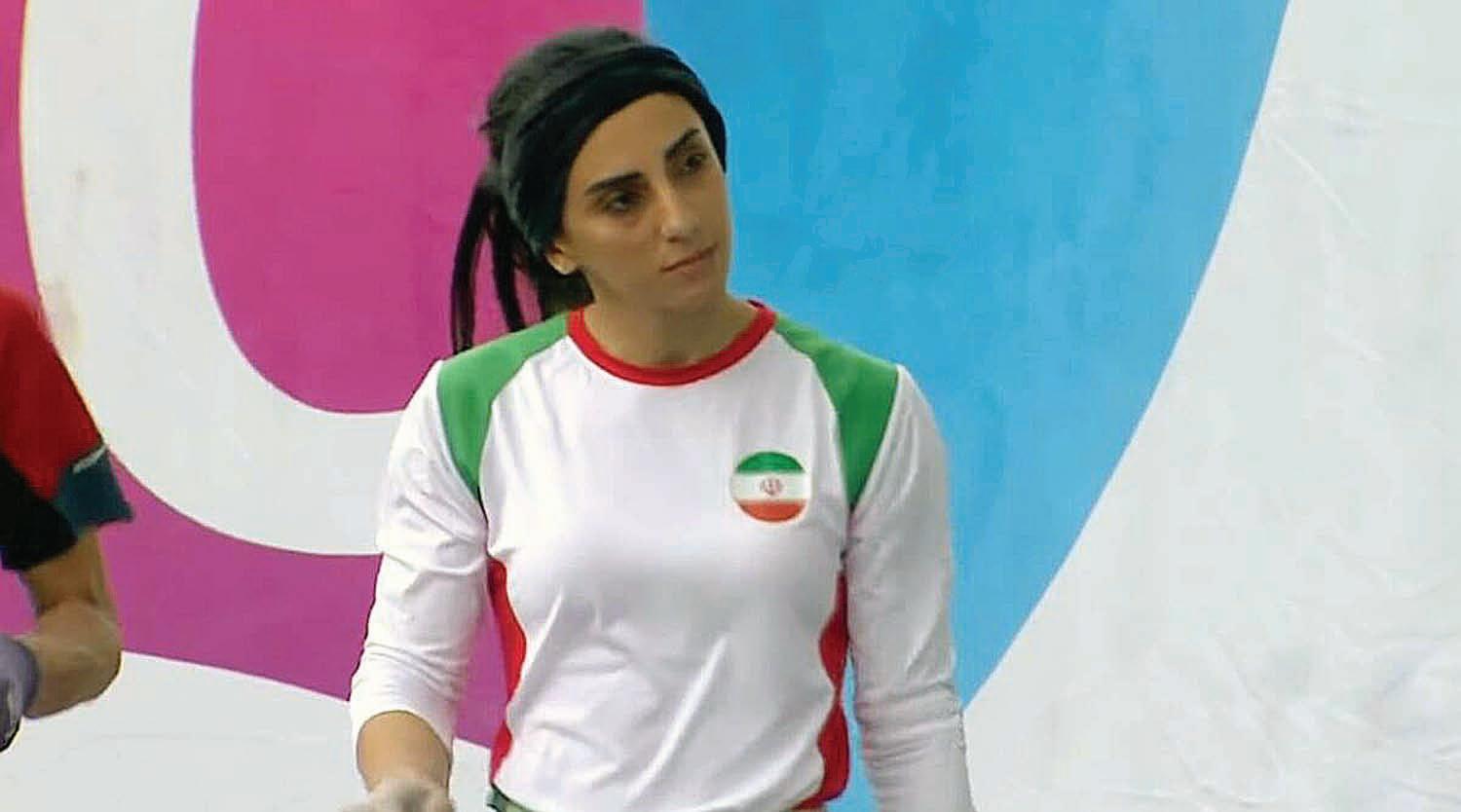
U.S. IRAN POLICY has long suffered from a deficit of understanding the history and culture of the Iranian nation. While our government professes to distinguish between the Iranian people and their rulers, it has in practice lumped them together and punished the former for the abuses of the latter.
While the latest round of protests shows how many ordinary Iranians are challenging and resisting their government at great risk to themselves, our policies have served to strengthen the same forces of repression and injustice that are cracking down on those protesters.
American policymakers have long had a poor grasp of Iranian nationalism and Iranians’ desire for independence and dignity, and they often fail to see that the same nationalism that motivates protesters against the Islamic Republic also rejects outside meddling in Iran’s affairs.
Fortunately, a new book on Iranian national identity and politics offers some much-needed insights into how the Iranian people understand their history and their country’s place in the world and how they have made use of that history to construct their modern identity as a nation.
Assal Rad’s The State of Resistance: Politics, Identity and Culture in Modern Iran is an outstanding investigation of how Iranian national identity has been formed, contested and remade over the last century. Rad explores how the Pahlavi monarchy and the Islamic Republic both sought to create narrow definitions of national identity for Iranians, and she then shows how those narrow definitions have continually been met by resistance from the Iranian people as they express their devotion to their vatan (homeland) in several ways that draw on different elements of Iran’s religious and cultural heritage.
Daniel Larison is a contributing editor at Antiwar.com and former senior editor at The American Conservative magazine. He has a Ph.D. in History from the University of Chicago. Follow him on Twit ter @DanielLarison and at his blog, Eunomia. Published Responsible Statecraft on October 10, 2022
A recurring theme in the later chapters of the book is Iranians’ attachment to their country and especially to the land itself. As Rad sums up, “Forming an identity of resistance, Iranians clung to the most tangible aspect of the nation-state, land.” This is what comes through in Iran’s popular music and cinema, and it is also what Rad found in her interviews while doing fieldwork for four years.
Rad describes a broader, more inclusive nationalism that exists
among Iranians that adapts elements from official narratives and repurposes them but is not confined by the limits of the state’s official interpretations. Iranians have borrowed from dominant narratives about the pre-Islamic Iranian past and the traditions of Iranian Shi’ism to create a distinctive fusion of different aspects of Iranian history. Throughout all of this, she writes, “ordinary Iranians continued to resist one-dimensional renditions of their culture and identity.”
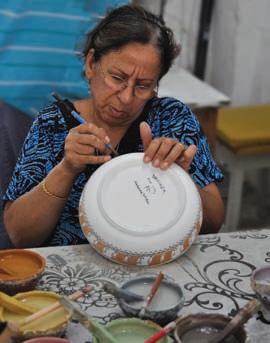
As Rad explains, Iranian identity has been shaped by opposition to their government under both the monarchy and the revolutionary regime, and it has also been defined by opposition to foreign interference and control. Iranian history is too rich and the Iranian people are too diverse to be held inside the boundaries of a government’s ideological project, and so each time the state has sought to enforce a particular version of “Iranianness” it has fallen short and failed to impose its vision on the people. While national identity evolves and is never fixed, there are certain constants that anchor Iranians’ identity. Rad writes, “At the center of that character is unwavering resistance, defense of their homeland and its people, and the adoration of vatan.”
Reading the book, [which is available from Middle East Books and More] I was reminded of how often the United States has failed to appreciate the power of nationalism in Iran. When the shah was in power following the U.S. and UK-backed coup that overthrew Prime Minister Mohammad Mossadegh in 1953, Washington didn’t grasp that our government’s support for the shah had deeply compromised his standing to such an extent that he was seen as foreign. Despite the shah’s efforts to present himself as a champion of Iranian nationalism, he was too out of touch with his own people and their culture and too dependent on foreign patronage. Rad notes, “The fact that the shah was viewed as alien, or disconnected from many of his subjects, was a key component of his failure and the rising momentum of the revolution.”
In the decades that have followed the 1979 revolution, the United States has remained strangely oblivious to the power of Iranian na-
tionalism and how U.S. policies have worked to stoke nationalist sentiment against our government. Supporting the Iraqi invasion of Iran had the effect of rallying the nation behind their new revolutionary leaders and deepening the antagonism between our two countries. Imposing severe, broad sanctions on the country in an attempt to compel the Iranian government to make concessions has further alienated the Iranian people, who are made to pay the price for the actions of a government they do not control.
Trump’s order to assassinate Quds Force commander Qassim Soleimani triggered an outpouring of public mourning for the slain general and briefly rallied the populace behind their government. American policymakers consistently fail to understand how others see the world and how people in other countries see U.S. policies, and that has led to decades of destructive and failed policies that have left both the United States and the targeted countries worse off. Rad’s insights into Iranian national identity and nationalism are a valuable corrective for this official myopia.
In her discussion of “the people’s resistance,” Rad quotes an Iranian middle-class woman from Tehran from 2015 expressing the view that Iranians’ future is theirs to control. It was an important statement of many Iranians’ commitment to national independence combined with their desire for justice, and it is worth including the full quote here.
The woman said, “Yes, we have problems, social, economic, political, you name it. But they are ours to fix. If change comes, or when change comes I should say, we will be the ones to do it. Iranians don’t trust outside powers, they’ve never acted in our interest; only we can act in our own interest. Look, if my father acts poorly, I don’t like it, but if you say something about my father, I will defend him with my life. It’s my father. This is my country, I can see a lot of bad things, but I don’t think anyone on the outside can fix it.”
Only we can act in our own interest. This is the essential point that American and other outside policymakers must understand if they are to respond constructively to the current protests in Iran. The United States does not understand the country and the people well enough to help fix Iranian problems, and outside interference is not needed or wanted. The best way to show solidarity with Iranians protesting their government is to distinguish between the people and their rulers by ending the economic war that Washington has been waging against the people for so many years.
The State of Resistance is a well-researched and well-written account of the formation and contestation of modern Iranian national identity, and it does a great service by presenting so many different Iranian perspectives to an English-speaking audience that usually knows very little about Iran. ■


oject APofr
(Advertisement)
PERIODICALLY AN INCIDENT of police repression—such as the murder of George Floyd in Minneapolis in 2020—becomes a galvanizing event that vividly illuminates systemic discrimination and violence against subjugated groups. Such is the case in Iran, where protests erupted across the country and were violently repressed after a 22-year-old Kurdish woman Mahsa Amini was killed in police custody on September 16. She died during detention after her arrest by the “morality police” for not having her hair fully covered by the

History’s Shadows, a regular column by contributing editor Walter L. Hixson, seeks to place various aspects of Middle East politics and diplomacy in historical perspective. Hixson is the author of Architects of Repression: How Israel and Its Lobby Put Racism, Violence and Injustice at the Center of US Middle East Policy and Israel’s Armor: The Israel Lobby and the First Generation of the Palestine Conflict (available from Middle East Books and More), along with several other books and journal articles. He was a professor of history for 36 years, achieving the rank of distinguished professor.
black scarf she was dutifully wearing. She was also sinfully adorned in red nail polish.
The incident and the protests underscore the ageless historical issues of patriarchy, repression and violence against women and girls. It is a worldwide scourge, and not unique to any single region or religious tradition, yet there is no point in ignoring the plain fact that the Middle East is one of the worst places in the world for women facing virulent discrimination. According to the Women, Peace and Security Index compiled by Georgetown University’s Institute for Women, six of the “top ten” worst places to be woman are in the Middle East.
Norway, Finland and Iceland were deemed the best places and the United States was in 21st place, but no country in the world is immune from gender discrimination. Before Americans launch into a rant about repression of women in Iran consider that nothing less than an American version of “morality police”—albeit Christian rather than Islamic—is currently stampeding through state legislatures across the country, undermining democracy and criminalizing indi-
A protester in Istanbul, Turkey on Sept. 20, 2022, holds a portrait of Mahsa Amini, 22, an Iranian woman who died after being arrested in Tehran by the Islamic Republic's morality police. OZANvidual freedom, privacy and reproductive rights with cavalier disregard for age or whether a woman might have been raped or might die in childbirth.
The United States, to be sure, made major strides in the “second wave” of the women’s movement (the “first wave” culminated in the achievement of suffrage in 1920). In 1960 American women were effectively barred from myriad professions and earned 61 cents for every dollar earned by men. The figure is now up to 83 cents, and there are multitudes of women doctors, lawyers, professors and engineers, yet a host of patriarchal problems remain, ranging from the glass ceiling and sexual harassment to spousal abuse, rape and sex trafficking and other forms of misogyny and abuse of women and girls. The statistics are the worst for women living in poverty and women of color.
Strides toward the achievement of gender equity are thus evolutionary rather than revolutionary (within the larger social and political contexts), as underscored by another Middle East country notorious for discrimination against women, Saudi Arabia, ranked 102 on Georgetown’s list. Women in the Kingdom still require a male guardian—which on its face is of course a blatant form of gender discrimination—but reforms in the law now allow women to obtain a passport and travel abroad without permission from a male overseer. Saudi women have been granted more rights pertaining to work and child rearing, but still
must receive permission to get married or divorced and are still punished for “disobedience.” Cruel and absurd prison sentences are handed out to women like Salma Al-Shehab, a brilliant 34-year-old Saudi woman, mother of two young children and doctoral candidate at the University of Leeds who was kept in solitary confinement and then sentenced to 34 years in prison for allegedly causing “disorder” and attempting to “destabilize society” by using social media to tweet support for human rights.
The United States government, corporations and businesses should use their influence to link diplomatic and economic association with the Saudi regime with curbing such abuses while continuing reforms heightening the status of women (they might work to preclude the assassination of journalists while they’re at it). Instead of just pocketing millions of dollars, golfers in the new Saudi-funded LIV league should consider how they might feel if their girlfriends, wives and daughters were subjected to systemic discrimination on par with Saudi women, and act accordingly.
Again, no country, religion or region of the world is immune from the issue of gender discrimination. In Europe, the Baltic states and Serbia have compiled especially poor records while discrimination and violence are endemic in Hindu-dominated India. Patriarchy has long been ensconced in China, although women have made palpable strides in the past genera-
tion. Many African nations enable blatant forms of discrimination, repression and violence against women.
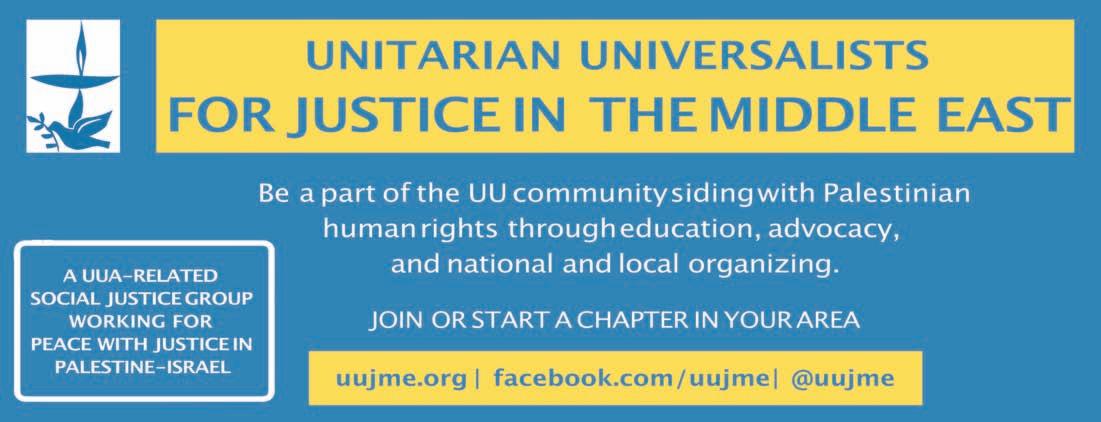
Before the devastating U.S.-led economic sanctions in the 1990s and the U.S. invasion of Iraq, equal rights for women were enshrined in Iraq’s 1970 Constitution, including the right to vote, run for political office, access education and own property. Before the Gulf War, according to Human Rights Watch, women played a vital role in Iraq’s economy and held high positions in both the private and public sectors. Today, these rights are all but erased. And of course Yemen, enduring a ruinous 8-year civil war, is one of the worst places to be a human, not just a woman.
The United States, which ceaselessly proclaims itself the leading nation in the world, should lead by example, at home, and in persuasion and greater prioritization and support for progressive international institutions and organizations monitoring the status of women. Military invasion and compulsion are clearly not the pathway to achieving rights for women—the American wars in Afghan istan and Iraq failed to liberate women in those countries, which remain mired in the “top ten” of worst offenders.
We should not be timid about condemning gender discrimination in the Middle East or anywhere else. Advocacy and support for women’s rights is not a form of cultural imperialism—it is rather an affirmation of fundamental human rights.
■
While the primary goal of the U.S. presence had been a confrontation against the selfproclaimed caliphate, the defeat of ISIS has made the remaining U.S. military presence highly debatable and legally disputed at home and abroad.
However, after the Trump administration drew down and relocated the remaining U.S. forces in 2019, many officials and media pundits expressed concern that by abandoning the Kurds the image of the U.S. as a trustworthy ally would be tarnished and leave the strategic ground for the Syrian regime, Russia and Iran. Today, there are still around 900 U.S. soldiers stationed in the area known as the “Eastern Syria Security Area.”
AFTER THE U.S. MILITARY bombarded pro-Iranian militia fighters in Syria in response to a drone attack on the American base at Tanf and a missile attack at bases at Deir-al-Zour in August, America’s largely “forgotten” war in Syria has raised questions voiced by global policy analysts and media pundits about the purpose of keeping the U.S. troops in the country.
Not just that the legal justification of the U.S. presence in Syria has been questionable from the very beginning, but the increased danger that future attacks could result in unnecessary civilian or U.S. military casualties that could have been avoided.
Initially, U.S. troops were dispatched to Syria in 2015 as part of the fight against the Islamic State in Syria (ISIS) and to train and advise Kurdish and the Syrian Democratic Forces (SDF), who became key to liberating large chunks of Syrian territory from ISIS.
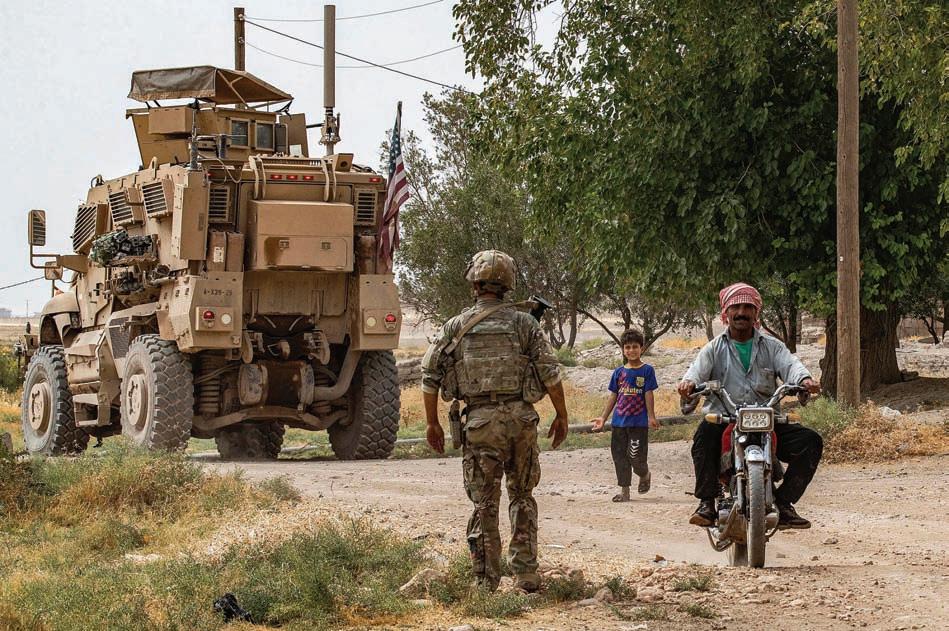
Stasa Salacanin is a widely published author and analyst focusing on the Middle East and Europe. He produces in depth analysis of the region’s most pertinent issues for regional and international publications including the Al Jazeera Center for Studies, Middle East Monitor, The New Arab, Gulf News, Al Bawaba, Qantara, Inside Arabia and many more.
After defeating ISIS, Washington expanded its operations to other targets, including pro-Iranian militias such as Kata’ib Hezbollah and Kata’ib Sayyid al-Shuhada, as well as Syrian government troops and Russian mercenaries, without legal justification or congressional approval.
In fact, the U.S. has found itself in a vicious cycle of “tit-for-tat” strikes, without any tangible military or political objective. Although the administration reviewed its policy on Syria last year, identifying four main objectives including: maintaining pressure on ISIS through a sustained military presence in eastern Syria; supporting local ceasefires; helping with humanitarian aid and promoting human rights, while pressing for accountability and respect for international law (which Washington has been violating by its contested presence); and supporting Israel’s right to defend itself, many analysts are skeptical and believe that the U.S. policy on Syria remains fuzzy.
The Biden administration has so far justified the U.S. actions under the pretext of self-defense against ISIS, broadly expanding it
to other groups, which Washington claims represent a direct threat to its counter-ISIS operations. This already shaky claim has been combined with another highly contested argument nicknamed the “unable and unwilling” theory that was initiated during Obama’s administration but continued by Biden’s administration. Tess Bridgeman and Brianna Rosen, in their essay titled “Still at War—The United States in Syria” published by Just Security online forum, explain that according to this theory Syria is perceived as “unable and unwilling” to counter the threat posed by ISIS and alQaeda (AQ). According to this theory “a victim state (the United States, on behalf of itself and Iraq) can use force in self-defense against non-state actors located in a different state (Syria) without that state’s consent.” Trump was not shy using force as a part of the “maximum pressure campaign” against Iran and to counter Iranian influence in Syria, describing it as a measure to counter immediate threats to the U.S. In his strategy, Biden has limited the use of immediate threat in favor of “ongoing planning” for future attacks, which actually makes the current American operations even more problematic.
According to Benjamin H. Friedman, policy director at Defense Priorities and adjunct lecturer at George Washington University’s Elliott School of International Affairs, there is “not any valid legal basis for having troops in Syria.” Even though Biden claims his inherent authority as president to justify the U.S. troop presence and the use of U.S. airstrikes against forces that attack U.S. troops, it cannot justify a long-term occupation—“it is simply illegal,” Friedman told the Washington Report. Furthermore, he said that “we are now attacking Iranian-linked forces to protect forces for an anti-ISIS mission we already achieved, to the extent possible. So we're risking escalation for nothing.”
While past and present administrations have fallen short of offering truly persuasive arguments and legal explanations for fighting and keeping troops in Syria, it seems that Washington’s decision to
remain in the country is defined by purely geostrategic motives.
Many observers, including Karin Leukefeld, prominent Middle East correspondent for German media outlets, believes that one of the reasons U.S. troops remain in Syria is because Israel wants them to stay. Physical presence “ensures CENTCOM control and observation over 21 countries in the Middle East, Central and Southeast Asia, including strategic routes on land and waterways,” she noted. She told the Washington Report there may be another “psychological aspect of the U.S. policy—to avoid further reputation damage after the disastrous withdrawal of Afghanistan.”
In addition, many analysts suggest that the latest round of attacks on U.S. targets comes as a result or retaliation for Israeli airstrikes in other parts of Syria. There are reports, for example in the June 16, 2022 Wall Street Journal, claiming that the Israeli and U.S. governments have closely cooperated and coordinated Israeli strikes on targets in Syria. However, there are ever greater concerns and criticism about exposing the U.S. troops to unnecessary risk on behalf of the interests of a third country, which has been seen by many analysts as a highly irresponsible approach.
Moreover, Washington must not risk the successful conclusion of nuclear negotiations with Iran, no matter how much their allies in the region, primarily Israel, oppose the deal. Regardless of how imperfect the deal may be, it would be the first step toward de-escalation of tensions in the region. However, Friedman believes that because the U.S. targets were Iranianbacked forces and not Iranian troops, the deal’s revival does not rely on what happens in Syria or Iraq. “But, if the conflict somehow escalates, it could endanger the deal certainly,” he explained.
Besides countering Iran and Hezbollah in Syria, Leukefeld thinks that the U.S. presence is also closely linked with deterring Russia and its military, which helped Bashar al-Assad regain power and practically win the civil war. There is a concern that some current American allies in the region and inside Syria may align with
Russia, in order to secure their future, once the Americans leave.
Finally, in Leukefeld’s view, the U.S. is in Syria to prevent Damascus from regaining “‘useful Syria,’ or more precisely the Northeast part of the country, where the important resources such as oil, gas, wheat, cotton and water are located.”
However, Joshua Landis, director of Center of Middle East Studies from the Department of International and Area Studies at the University of Oklahoma, thinks that the U.S. will eventually have to withdraw its forces from Syria. “The neighboring countries are opposed to the U.S. occupying Syrian territory, while the international community insists on a sovereign and integral Syria,” he told the Washington Report. He emphasized that it is “impossible for the U.S. to create an independent Kurdish-led state in north Syria because the Kurds, who number around 2 million, are too few in number and too weak to defend a state in north Syria.” Moreover, he thinks there is no prospect that the U.S. can use the region for leverage to replace the Assad leadership in Damascus, as originally believed. For this reason, he noted, “the U.S. will be harming its clients, the YPG (People’s Defense Units consisting mostly of ethnic Kurds), and SDF (an alliance composed primarily of Kurdish, Arab and Assyrian fighters), if it doesn’t prepare them to make arrangements with Damascus for the day that U.S. troops withdraw from Syria, even if it is 5 or 10 years in the future.”
But, he warns that the “U.S. should not repeat the Afghanistan experience in Syria, withdrawing without providing safety to those who worked for it and will be imprisoned or executed for treason, when the U.S. withdraws.”
But prolonging the U.S. engagement, in Friedman’s view, could be a “terrible mistake—not especially costly but quite risky.” It is just a matter of time before one of these repeated incidents and attacks will result in casualties among U.S. troops, personnel and civilians, for no good reason.
EUROPE IS IN for a bitter winter. Across the region, an energy crisis spurred from the Russian invasion of Ukraine has only begun to wreak havoc on consumers and businesses. Reliance on natural gas sourced through Russian pipelines has left many nations in a precarious position as winter inches closer. OPEC Plus, the coalition of oil-producing nations led by Russia and Saudi Arabia, announced plans on Oct. 5 to cut oil production by 2 million barrels per day, a move which is expected to increase the price per barrel, further exacerbating fears of a recession and geopolitical tensions. This situation is only expected to worsen with the recent announcement of Kremlin annexation of the Luhansk, Donetsk, Kherson and Zaporizhzhia territories, which encompass around 15 percent of Ukrainian land, the alleged sabotage of the Nord Stream 2 pipeline and Ukraine’s recent petition for NATO membership.
By Hajira AsgharBracing for mass social unrest and economic recession, the European Union has been in crisis mode in desperate attempts to pivot to new suppliers. In Germany, a historic dependence on Russian energy has left the nation in a particularly uncomfortable position with calls for the closure of manufacturing facilities deemed non-essential and rationing amidst blackouts and uncertainty. In the United Kingdom, the energy crisis has resulted in a 200 percent increase in energy bills compared to last winter. While price cuts and calls for conservation have been announced across the board, the very real possibility for political uprising remains an underlying concern, especially as right-wing coalitions and leaders have gained steam in recent elections from Sweden to Italy. The conditions of the energy crisis leave the working-poor particularly vulnerable to populist and isolationist messaging, which many leaders fear will strike a chord and pose a challenge to the prevailing liberal-democratic order.
This is especially true for French President Emmanuel Macron, who was recently re-elected with a very narrow margin against his far-right opponent. With the precedent of the Yellow Vest protests as a testament to the discontent of the French population, the pressure to ameliorate the frustrations of the masses becomes a matter of political preservation. With this in consideration, Macron recently made an official visit to Algeria, whose brutal French settler-colonial legacy remains an open wound. Only through violent struggle was Algeria able to achieve independence from France after over a century of ruthless occupation.
The historically volatile dynamic between the two nations remains palpable, making this recent diplomatic visit a matter of particular concern. After Russia and Norway, Algeria is one of the largest exporters of natural gas to Europe. The timing of the visit was undeniably marked with desperation. The result was a tentative energy deal which would increase the exports of Algerian energy to France by 50 percent. The default reliance upon historically exploitative relations in Europe’s time of crisis signals an enduring colonial process that many have been wary to confront.
While France’s pivot to Algeria can be seen as opportunistic at best, in Yemen, the situation signals a disturbing return to the plunder of Africa. In mid-August, French troops stationed in Yemen reportedly moved to militarily secure the Balhaf gas facility in the resource-rich Shabwa province. While the French Foreign Legion ostensibly acted in protection of the infrastruc-
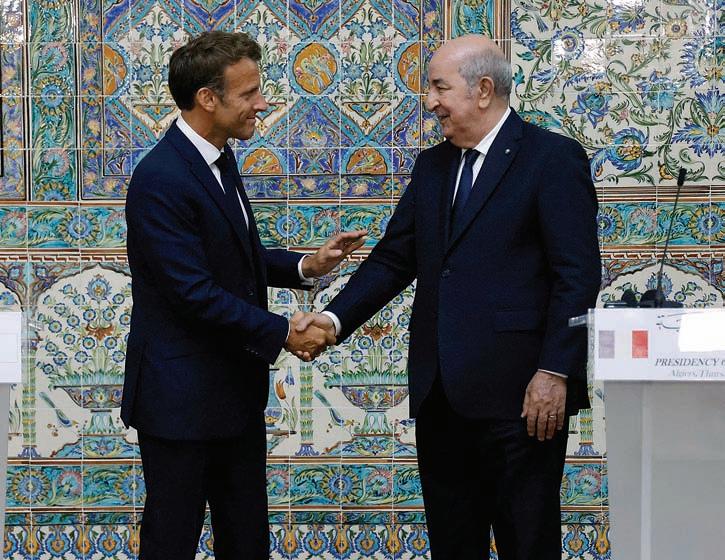 French President Emmanuel Macron (l) and Algeria’s President Abdelmadjid Tebboune (r) shake hands at the end of a joint press conference at the presi dential palace in Algiers on Aug. 25, 2022. Macron mended ties with the former French colony, which this year marks its 60th anniversary of independence, and made a tentative energy deal to increase the exports of Algerian energy to France by 50 percent.
Hajira Asghar is a Washington, DC based writer and founder of Students Against Imperialism at the George Washington University.
French President Emmanuel Macron (l) and Algeria’s President Abdelmadjid Tebboune (r) shake hands at the end of a joint press conference at the presi dential palace in Algiers on Aug. 25, 2022. Macron mended ties with the former French colony, which this year marks its 60th anniversary of independence, and made a tentative energy deal to increase the exports of Algerian energy to France by 50 percent.
Hajira Asghar is a Washington, DC based writer and founder of Students Against Imperialism at the George Washington University.
ture, the neocolonial dynamic of resource extraction remains evident. Yemen’s brutal civil war between the Houthi rebels and Saudi-backed government has waged on for more than a decade with extensive human cost. According to the United Nations, the conflict has resulted in an estimated 377,000 deaths, 60 percent of which can be attributed to famine and lack of healthcare. Within the context of the world’s largest humanitarian crisis in Yemen, the military actions of the French government signal a shameless venture to secure resources despite the ethos of self-determination and sovereignty under which support for Ukraine is purported to be rooted. As global food shortages and energy crises hit the Global South, war-torn nations like Yemen will bear the brunt while shouldering the burden of European needs.

While Europe’s energy scramble has taken a nefarious return to its tradition of exploitation, an underexplored alternative exists in energy relations with the nation possessing the second largest natural gas reserves on the planet: Iran. The Islamic Republic has not only the capacity to supply Europe with the resources it so desperately needs but has indicated a desire to do so. While this transaction appears rational on its surface, the geopolitical tensions between Iran and the United States have rendered this prospect virtually impossible.
In 2015, the Iran nuclear deal (JCPOA) was forged under the Obama administration which tentatively laid the foundation for a natural gas pipeline running between Iran and Europe known as the “Pars Pipeline.” As Trump assumed office in 2017, however, the deal was rashly abandoned, substituted with an escalation of sanctions. The
coercive measures enlisted by the United States sought to economically isolate Iran from potential trade partners. In hindsight, many European nations are forced to confront the reality that had America not abandoned the roundtable with Iran and had the prospective pipeline between Iran and Europe been established, the energy crisis would not have been so critical.
As European nations panic-purchase natural gas from Qatar and continue to deplete the market, the Global South will be left to fight for the crumbs. In the case of Pakistan, disastrous flooding has all but collapsed the nation’s energy sector. The Pakistani government recently put out a $1 billion tender for gas and received no offers. Anxiety inducing conditions of blackouts, food shortages from blocked Ukrainian grain exports and inflation have produced a recipe for disaster. As the situation becomes critical, many will recall the attempted natural gas “Peace Pipeline” between Pakistan and Iran, which ultimately failed to materialize due to economically coercive sanctions applied by the U.S. As alternative plans are underway to circumvent the wrath of the United States, the nations of the Global South face a situation of precarity without the privilege of bargaining power that Eu-
ropean NATO member nations have.

As of early September, in the midst of Europe’s deepening crisis and in light of a new administration in Washington, DC, Iran has indicated a renewed effort to restore the JCPOA, during the latest round of Vienna talks. Whether or not President Joe Biden decides to turn the tide of adversarial relations with Iran may be contingent upon how European nations choose to navigate their energy demands on the global stage. Should the European Union reach a point of exasperation, new pressure may emerge to ease the sanctions in place against Iran. This in turn could usher in a new era of alternative financial channels, and ultimately, a shifting global order under which the hegemony of the United States wanes as total arbiter.
The reality exists that the trajectory of both the war in Ukraine and the energy crisis signal escalation which will inevitably force a geopolitical reckoning. As the Global South bears the brunt of the energy crisis, the uprisings unfolding in Sri Lanka and blackouts in Pakistan serve as a harrowing glimpse into the chaos to come. With pressure from both below and above, a transformative process could emerge as a glimmer of hope amidst the horror. ■
MY EXPECTATIONS for visiting Hebron’s Blind Charitable Society (HBCS) were low when we slowed to a stop in a quiet suburb of Khalil (Hebron). At this point, I had been in the West Bank for six weeks and what I discovered when meeting with charities, NGOs and human rights groups, was a group of individuals persevering with their heart-filled ambitions whilst walking an occupation-imposed tightrope. For most of them, simply remaining operational and avoiding a forced shutdown is success in itself.
What I encountered at HBCS exceeded my expectations by a long shot. When you first step into the building, you walk into a world of color. The reception area is comparable to an art gallery, exhibiting paintings and sculptures to celebrate and sustain Palestinian customs. A labyrinth of corridors, branching off like arteries, displays a standard of artwork that leaves you questioning how visually impaired the creators are.
The society is unusual in another respect: it is the only one of its kind in Hebron run by a chairman, vice chairman and secretary who are elected by stakeholders, including the students’ parents, and a panel of board members who are volunteer workers.
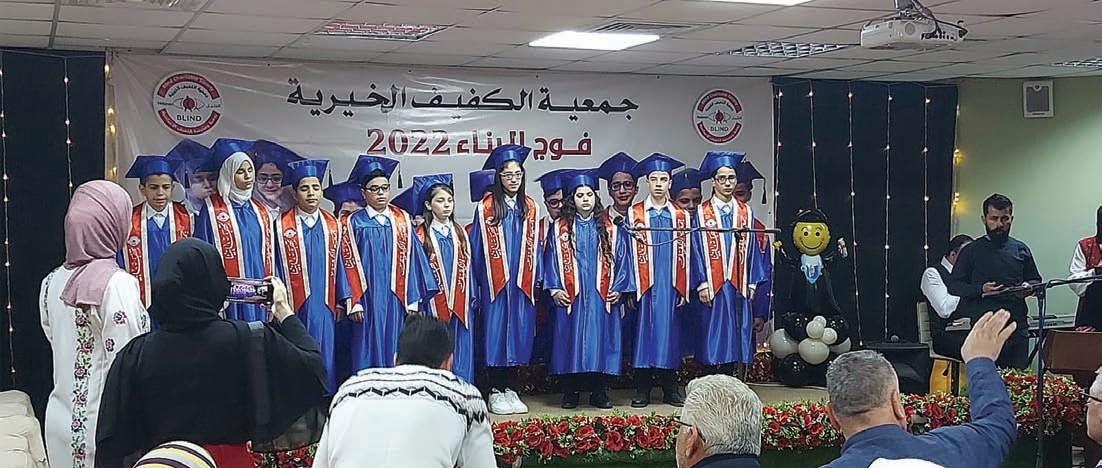
After being greeted with coffee and sweets, I sat with Ms. Anjad Zahedh, a HBCS staff secretary for over 8 years, to learn more about
Hasan Aga, an avid explorer of foreign cuisines, cultures and history, writes on his travels and work across conflict zones, natural wonders and all places in between. Aga spent three months learning Levantine Arabic at the Excellence Center in Hebron.
the organization. Its purpose, she said, is “to prepare these kids the best we can to live an independent and fulfilled life with their disability affecting their life as little as possible,” she said.
“Along with all standard subjects like math, sciences, languages and humanities, a specialist department is tasked with teaching students vital life skills.” These life skills are a fundamental part of the curriculum and range from learning braille in both Arabic and English to the simplest aspects of daily life, like how to dress independently.
Emphasis is also placed on learning about technology and navigating devices such as computers and smartphones, using Talk Back, which narrates every action, so that students do not fall behind in our increasingly technologically-reliant world. This long-term thinking paid off during COVID-19, where, along with the rest of the world, their education continued online.
Currently, the organization educates 90 visually impaired students from the age of 4 to 14, with the capacity for more. During the week the HBCS houses students who reside in faraway villages, while the rest are provided with a bus service for their daily commute. An agreement is in place with the Red Cross to assist transportation when tensions with the occupying Israeli army flare. All educational facilities and materials are free of charge for the students.
When students finish grade 7, they continue their education in a public school. According to Ms. Zahedh, students initially experience some difficulty in making the transition. They feel safe and supported in HBCS, where they learn and develop as individuals; they find the
broader world “very loud,” and some struggle to adapt. “However, this struggle is necessary. It’s better they adapt at this early age, so when they reach high school and university, they have already adjusted and can focus on achieving all they can. We have to prepare them for the world outside.”
I asked Ms. Zahedh about the society’s relationship with its alumni. Once they leave, does HBCS provide them any further support?
“This place will always be home to all of our students, past or present,” she replied. Ms. Zahedh said that the organization helps them by printing their books in braille, meeting them at their new campus and walking around with them so they learn the layout, and printing braille maps for them. “We even hold workshops for parents to learn braille so they can help them with their work.”
At their new schools, the students are often met with trepidation and hesitancy until familiarity breaks the ice. “Once they start to play with them and get familiar with them, everyone takes care of them and over time they become protective of them. This is the Palestinian culture.”
I was impressed that the system seemed designed to facilitate full education for visually impaired children, but I wondered about their employment options. How difficult is it for them to find jobs? By law businesses are compelled to employ one handicapped person for every five able-bodied employees, but this is not necessarily implemented. According to Ms. Zahedh, “blind graduates find it difficult to find jobs; however, a lot of them find roles within education. Our own organization, for example, employs eight visually impaired staff members, with our music teacher being a former student.”
Touring the institute, I was impressed by the amount of artwork I saw displayed. Ms. Zahedh explained, “They’re good at crafts. They touch what they want to draw or create, and then replicate it.”
The facilities I saw—a computer lab, music room, library, science lab, English room, a large hall for events and a number
of classrooms—were impressive. They have plenty of space to work with and have used it well. Every room has had time, effort and thought invested into it; each has its own unique theme, a world within a world. However, it’s not just aesthetics that attention is given to; money is invested in equal amounts into technology. I saw expensive braille printing machines, magnified projectors, specialized computers and glasses for the visually impaired.
It costs about $20,000 a month to operate the facility. Teachers’ salaries are covered by the Palestinian Ministry of Education; grants and proposals produce additional funds. For example, the braille printer was donated by an Australian NGO. A significant amount of money also comes from donations from individuals, especially during Ramadan, a time when Muslims give to needy individuals and worthy institutions. Ms. Zahedh informed me, “All the support, donations and prayers have led us to receive the first prize of the Ameer Muhammad Bin Fayed award for the best performance by a charitable organization in the Arab world.” I was not surprised.
I was then taken to see the dormitories. Neatly made rows of bunk beds bordered the room and colorful creations decorated the walls, emitting a warm and homely feeling. However, I was surprised by how immaculately organized it all was. “Whenever any student uses anything, they put it straight back. They have to, otherwise everyone would be falling over,” she joked.
A few weeks later I was invited back to attend and celebrate the students’ graduation before they took their first steps into the world beyond HBCS. The ceremony included students singing and performing choreographed dances while others played musical instruments. Parents full of pride crowded the hall with beaming smiles and camera phones in hand. All the students helped each other, in walking, climbing the stairs, and fixing each other’s robes, all by touch.
This was the first time I had seen these kids and even I was proud of them. I wondered what it must feel like, to give such happiness and inspiration to those closest to you, but never truly know what they look like. To know you are the light of their eyes, and they are just a character of your mind made from touch and imagination. The frustrations and worries the parents must go through, picturing the struggles and turmoil their children will face in their lives, played out in a war zone, where it’s the parents’ responsibility to make sure their children are prepared for that before their time is up. That’s some serious pressure, and maybe the HBCS does more for the parents than it does for its kids.
In a land so persecuted, it was heart warming and inspiring to see the dedication with which some of this society’s most vulnerable are supported and built up. They have not been forgotten nor neglected by the people of Hebron. Their resilience, generosity and open-heartedness is personified by a hand-made, tactile sign displayed on one of the classroom doors as an ever reminder that they are the reason we are here.
For contact information e-mail Blind_hebron@yahoo.com or visit <www. hebronbcs.org>.

 By Ida Audeh
By Ida Audeh
ON A LOVELY FALL afternoon, more than 300 people made their way to Lake Accotink Park in Springfield, VA to attend the second annual Growing Palestine (GP) Heritage Picnic. The picnic area, with tables arranged within a tree-lined oval, had plenty of space in the center for an improvised dabke floor, which attendees put to great use. Muath Edriss—the singer, oudist, and DJ who made last year’s picnic so much fun—was asked to take charge of the music, and he delivered! Yousef El Mohtasib created the drumbeat that got people on their feet, and the Faris El-Layl Dabke Group led the way. Everyone was drawn to the dance space to show their moves, forming a human chain and stomping their feet in unison, with occasional belly dancing in the center.
Like all GP events, this one brought people together for a few hours of fun, but it had a serious purpose as well. A GP board member had just returned from the occupied Palestinian territories, and she shared her impressions of farming conditions. GP supports farms in the occupied Palestinian territories that use sustainable farming practices and heirloom seeds in an attempt to remain independent of Israeli farm products. The need for food sovereignty is illustrated by the graphic (left), which shows Israeli constraints on the production of typical food items on Palestinian tables.
Ida Audeh, an editor who lives in Centreville, VA, is a board member of Growing Palestine and a contributing editor to the Washington Report
One of the farmers in touch with GP embodies what resistance farming is all about. His farm is within sight of an Israeli settlement on a nearby mountaintop. Because of the very real risk that unused Palestinian land will get confiscated and given to the settlement for its expansion, he identified and got permission from adjacent landowners to farm their land.
The Tent of Nations lost about 60 trees to arson recently. (The farm’s ongoing saga was described in the October 2021 Washington Report, pp. 26-27.) The farm is now completely surrounded by settlements, and demolition orders loom over the property. Yet the workers stay focused on the long term, thinking about new food products to market, installing new solar panels and welcoming international volunteers who are starting to return after a long COVIDrelated hiatus.
In Aida refugee camp in Bethlehem, where farmland is not available, residents are doing rooftop gardening and now have 2,500 plants growing in only 55 square feet. They’ve potted plants in used tear gas cannisters. Because space is so limited, they house their sheep in the ground floors of buildings, which offer warmth in the winter and milk throughout the year. (This arrangement was typical for earlier generations, where the ground floors of homes were used for storage and animals.)
Volunteers from BADIL Resource Center for Palestinian Residency and Refugee Rights and other organizations are working in the Jordan Valley. They plan to protect the trees already there and to plant heirloom seeds indigenous to the terrain. This agri-
This Visualizing Palestine graphic shows Israeli constraints on the production of Palestinian food.cultural area with a rich ecosystem in the Israeli-occupied West Bank has traditionally been a regional bread basket, and it needs protection.
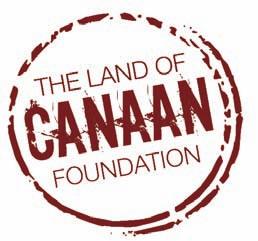
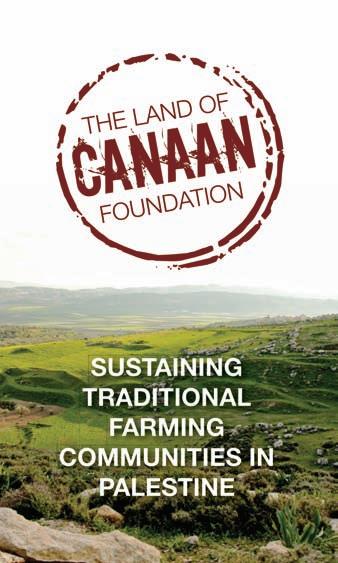
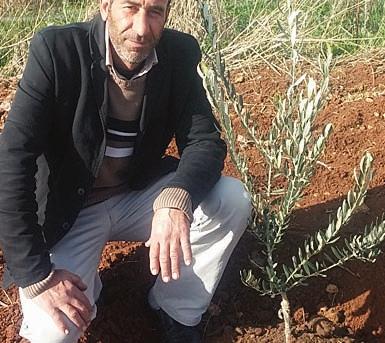
GP is in communication with Om Sleiman farm, located in Bil‘in. This community-supported farm, established on donated land, produces enough to feed 65 local families. They use heirloom seeds and have managed to revive a variety of watermelon that had become rare. The farm practices syntropic farming, planting fruit trees and vegetables in close proximity; the trees provide a canopy in the summer, so less water is needed for irrigation, and in the winter, the leaves can be used for the compost. The farm has a compost bed made out of an old tub with holes in which leftover produce and earthworms are placed. When the compost is watered, the run-off is collected in buckets and is used to spray plants, which simultaneously fertilizes them and makes them resistant to diseases.
People living in the DC metropolitan area have had the opportunity to sample some of the delicious items produced on the farms, such as olive oil, cheese, clarified butter, thyme and other herbs. The re-
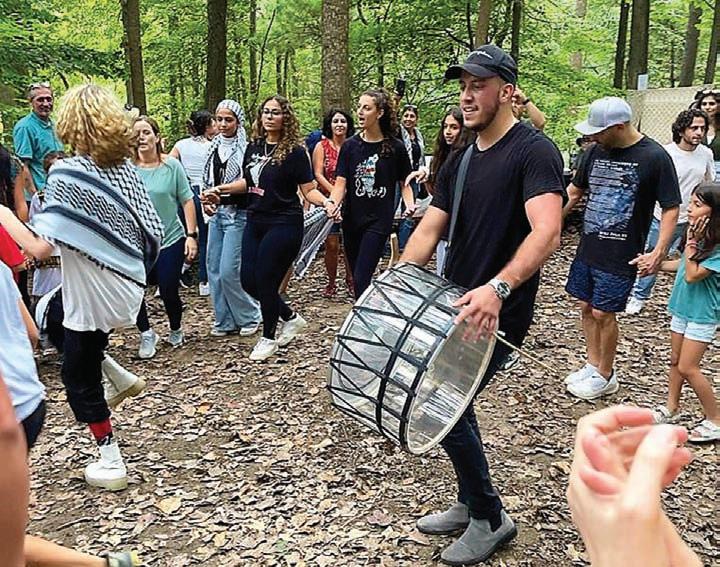
sponse was overwhelmingly positive. GP plans to organize other opportunities in the future. For announcements check <www. growingpalestine.com>.
The farms can always use volunteer labor. For more information, write to info@growingpalestine.com. ■
THE CANADIAN ANTI-TERRORISM ACT, amending the federal Criminal Code, has been used to block essential aid to the people of Afghanistan for the past year. In 2013, Canada passed an additional law listing the Taliban as a terrorist organization and together with the anti-terror legislation in the Criminal Code it has meant humanitarian organizations are currently banned from implementing Canadian-funded programs in Afghanistan.
Recently, the United Nations has called upon the international community to make humanitarian exceptions to sanctions against
Candice Bodnaruk has been involved in Palestinian issues for the past 14 years through organizations such as the Canadian BDS Coalition and Peace Alliance Winnipeg. Her political action started with feminism and continued with the peace movement, first with the No War on Iraq Coalition in 2003 in Winnipeg.
the Taliban so that vital aid can reach Afghans in need. Canadian allies, such as the U.S., United Kingdom, EU and Australia have already removed those barriers and clarified the non-applicability of the sanctions and anti-terror laws to the provision of humanitarian assistance in Afghanistan. However, the Canadian government has not yet made such a change.
A year after the international coalition’s withdrawal, the dire humanitarian situation for the Afghan people has led humanitarian organizations to form Aid for Afghanistan, a national campaign calling on Canada to remove barriers to aid.
Islamic Relief Canada, Cooperation Canada, World Vision, Oxfam, Save the Children, Canadian Women for Women in Afghanistan and the Canadian Foodgrains Bank are just some of the organizations that are part of Aid for Afghanistan, created in August 2022, when aid shipments to Afghanistan were cancelled
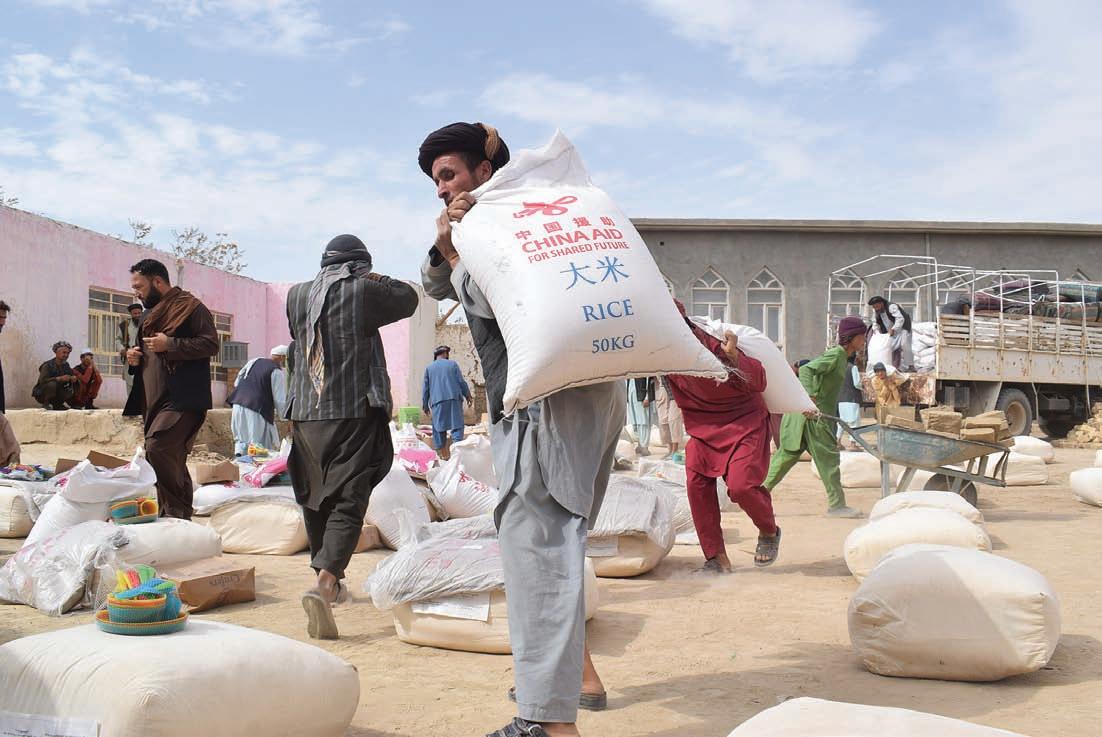
because they violated Canada’s amended Criminal Code.
Reyhana Patel, director of communications and government relations with Islamic Relief Canada, said the goal of Aid for Afghanistan is to pressure the Canadian government to demonstrate the widespread support among Canadians for the provision of aid and to amend the Criminal Code. Patel also pointed out that Canada has yet to provide a way for humanitarian agencies to continue their work in Afghanistan without the risk of prosecution.
Aid for Afghanistan intends to place additional pressure on members of parliament to finally make the government act according to international law and support the Afghan people who are in desperate need, especially after the June 2022 earthquake.
“Our teams on the ground are relaying to us the horrific humanitarian crises unfolding. We’ve met mothers who had to marry off their daughters so they could have food. For a country like Canada, it is unacceptable that for almost a year now we haven’t seen any action from the government,” Patel said in a press release.
Islamic Relief Canada said that since the Taliban took over a year ago in Afghanistan, aid organizations have experienced many barriers in sending help to that country because of Canadian sanctions and a “restrictive interpretation” of the anti-terrorism provision.
Yet, Genevieve Tremblay, spokesperson for International Development and Global Affairs Canada, says Canada remains deeply concerned about the continuing humanitarian crisis in Afghanistan.
“Although the Taliban has taken over as the de facto national authority of Afghanistan, it remains a terrorist group and is a listed terrorist entity under the Criminal Code,” Tremblay said in an emailed statement to the Washington Report.
She went on to explain that the Government of Canada is working to identify a solution that upholds Canada’s national security interests while facilitating the effective delivery of assistance and continuing to do all it can to support the Afghan people.
The new Students for Justice in Palestine team at the University of Manitoba. Chief Representative of the Palestinian Delegation to Canada Mona Abuamara is in the center, with red shoes.
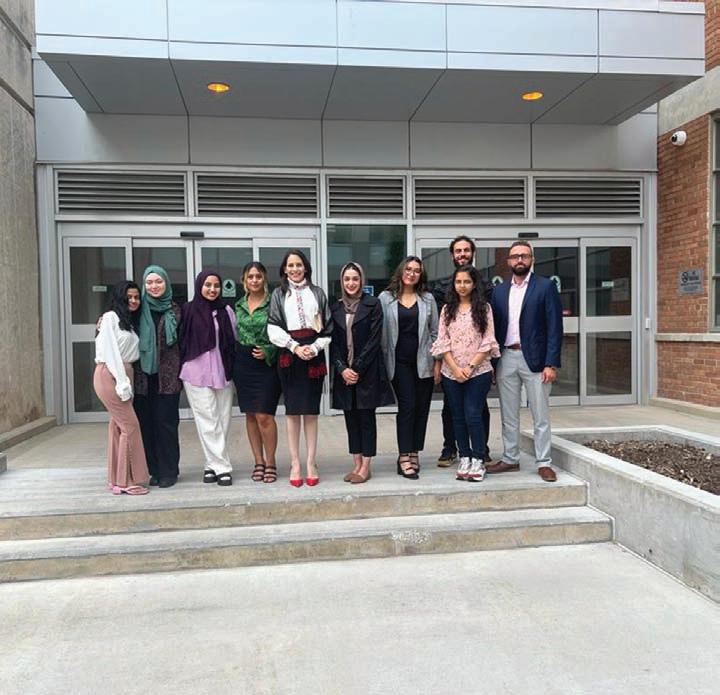
The University of Manitoba has the dubious distinction of being the first North American university to ban Israel Apartheid Week (IAW) on campus in 2013. The student organization that hosted the week of educational events, Students Against Israeli Apartheid (SAIA), also lost its official student club status along with its meeting space at the school.
Now, students are organizing on campus again. Students for Justice in Palestine (SJP) University of Manitoba was formed in the summer of 2021 when Zahra Rivzi, along with a few other students, released a motion that highlighted the need for such a student group on campus. The University of Manitoba Students Union (UMSU) also released a statement offering support and resources. A six-hour debate ensued with the students experiencing some unfriendly
discourse with some of the questioners who asked if Palestinian students and students who support Palestine were really marginalized. In the end the students’ motion passed and SJPUofM was created.
Since that time the group has been very busy planning events with the Canadian Palestinian Association of Manitoba (CPAM), Independent Jewish Voices (IJV) and the Muslim Student Association (MSA). Organizers sat down with the Washington Report recently to share some of the challenges they face and pass on advice for activists at other postsecondary institutions.
“The response our group has gotten has been overwhelmingly positive,” said SJP vice president of advocacy and engagement, Adnan Al-Olabe
Al-Olabe said there has been higher than expected attendance at all of the group’s events. Al-Olabe explained that before SJP was formed there was an “obvious gap” and a missing voice for any
United States Postal Service Statement of Ownership, Management, and Circulation (required by 39 USC 6985 (1) Publication Title: Washington Report on Middle East Affairs; (2) Publication No: 015505; (3) Filing Date: 10/20/22; (4) Issue Frequency: Monthly except Jan/Feb, March/April June/July, Aug/Sept and Nov./Dec. combined (5) No. of issues published annually: 7; (6) Annual subscription price: $29; (7) Complete mailing address of known o ce of publication: American Educational Trust, 1902 18th St., NW, Washington, DC 20009-1707; (8) Complete mailing address of headquarters or general business o ce: American Educational Trust, 1902 18th St., NW, Washington, DC 20009-1707; (9) Full names and complete mailing addresses of publisher, editor and managing editor: Publisher: Andrew Killgore, 1902 18th St., NW, Washington, DC 20009-1707, Executive Editor: Delinda Hanley, 1902 18th St., NW, Washington, DC 200091707, Managing Editor: Dale Sprusansky, 1902 18th St., NW, Washington, DC 20009-1707; Editor: Julia Pitner, 1902 18th St., NW, Washington, DC 200091707; 10) Owner: American Educational Trust, 1902 18th St., NW, Washington, DC 20009-1707; (11) Known bondholders, mortgagees, and other security holders owning or holding 1 percent or more of total amount of bonds, mortgages, or other securities: none; (12) The purpose, function, and nonprofit status of this organization and the exempt status for federal income tax purposes has not changed during preceding 12 months; (13) Publication title: Washington Report on Middle East Affairs; (14) Issue date for circulation data below: Oct. 2022 XLI- v.6 (15) Extent and nature of circulation: (a) total no. copies (net press run): Average no. copies each issue during preceding 12 months, 4529 No. copies of single issue published nearest to filing date, 4300;
(b) Paid and/or requested circulation: (1) Paid/requested OutsideCounty mail subscriptions stated on Form 3541 (include advertiser’s proof and exchange copies): Average no. copies each issue during preceding 12 months, 2425; No. copies of single issue published nearest to filing date, 2375; (2) Paid InCounty subscriptions stated on Form 3541 (include advertiser’s proof and exchange copies): Average no. copies each issue during preceding 12 months, 30, No. copies of single issue published nearest to filing date,30; (3) Sales through dealers and carriers, street vendors, counter sales, and other non-USPS paid distribution: Average no. copies each issue during preceding 12 months, 100 No. copies of single issue published nearest to filing date,100 (4) Other classes mailed through the USPS: Average no. copies each issue during preceding 12 months,45 No. copies of single issue published nearest to filing date, 50(c) Total paid and/or requested circulation [sum of 15b (1), (2), (3), and (4)]: Average no. copies each issue during preceding 12 months, 2600; No. copies of single issue published nearest to filing date, 2555; (d) Free distribution by mail (samples, complimentary and other free): (1) Outside-County as stated on Form 3541: Average no. copies each issue during preceding 12 months, 430; No. copies of single issue published nearest to filing date 355; (2) In-County as stated on Form 3541, Average no. copies each issue during preceding 12 months,320, No. copies of single issue published nearest to filing date, 318; (3) Other classes mailed through the USPS, Average no. copies each issue during preceding 12 months, 199, No. copies of single issue published nearest to filing date, 130; (e) Free distribution outside the mail (carriers or other means): Average no. copies each issue during preceding 12 months, 850 No. copies of single issue published nearest to filing date, 837 (f) Total free distribution (sum of 15d and e): Average no. copies each issue during preceding 12 months, 1799 Average No. copies of single issue published nearest to filing date 1640; (g) Total distribution (sum of 15c and f): Average no. copies each issue during preceding 12 months, 4399, No. copies of single issue published nearest to filing date, 4195; (h) Copies not distributed: Average no. copies each issue during preceding 12 months, 130; No. copies of single issue published nearest to filing date 105; (i) Total (sum of 15g and h): Average no. copies each issue during preceding 12 months, 4529 No. copies of single issue published nearest to filing date, 4300 (j) percent paid and/or requested circulation (15c/15gX100): Average no. copies each issue during preceding 12 months,59%, No. copies of single issue published nearest to filing date, 60%; 16 Electronic Copy Circulation: a. Paid Electronic Copies: Average No. Copies Each issue during preceding 12 months: 250; No. Copies of Single Issue Published Nearest to Filing Date: 380; Total paid print copies and paid Electronic Copies: Average No. Copies Each issue during preceding 12 months: 2850;Total paid print and Electronic Copies of Single Issue published nearest to filing date: 2935; Total Print Distribution +Paid Distribution: Average No. Copies Each issue during preceding 12 months: 4640; Total paid print and Electronic Copies of Single Issue published nearest to filing date: 4575; Percent Paid (Both Print & Electronic Copies): Average No. Copies Each issue during preceding 12 months: 61%;Total paid print and Electronic Copies of Single Issue published nearest
Palestinian activism at the University of Manitoba. SJP has set up tables on orientation days and hosted a sold-out poetry night this past summer.
“We hope our work brings awareness to the injustices happening in Palestine and that one day, justice is brought to Palestine and all its people,” Al-Olabe said.
According to Mona Zangana, SJP vice president of finance, the group has experienced some struggles on campus and is limited in the language it is allowed to use and subjects they can discuss because of “agonizing anti-Palestinian hatred” that still exists in academic spaces.
“We are not able to explain the full extent of the dehumanizing and illegal occupation
(Advertisement)happening in Palestine. But we will continue to do everything we can and have plans and ideas lined up so that we are able to adequately educate our peers and our communities of the illegal occupation happening in Palestine,” Zangana said.
Meanwhile, Kassem Harb, SJP’s vice president of external affairs said students who want to organize for Palestine should be prepared for anything. Harb said students should expect backlash and hardship from their work but not to be scared off by it.
“Be aware to also expect unexpected allies to come out of the shadows and support you,” Harb said, adding that the more groups, such as SJP, organize events and spread awareness, the more people will become aware of Palestinian rights.
penalties). Failure to file or publish a statement of ownership may lead to suspension of second-class authorization. PS Form 3526 October 1999 (Facsimile).
Playgrounds for Palestine is a project to build playgrounds for our children. It is a minimal recognition of their right to childhood and creative expression. It is an act of love.
Playgrounds for Palestine (PfP) is a registered 501(c)3 nonprofit organization, established in 2001. We’re an all-volunteer organization (no paid staff) that raises money throughout the year to construct playgrounds and fund programs for children in Palestine.

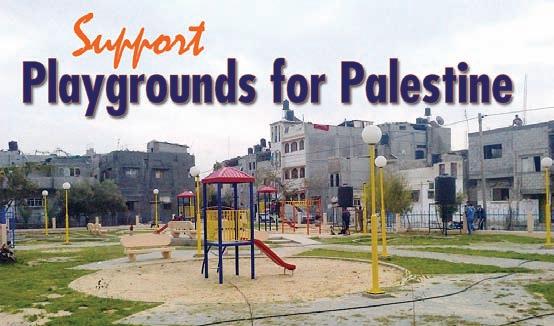
Selling Organic, Fair Trade Palestinian olive oil is PfP’s principle source of fundraising. This year, PfP launched AIDA, a private label olive oil from Palestinian farmers. Please come by and taste it at our table.

We hope you’ll love it and make it a staple in your pantry.
For more information or to make a donation visit: https://playgroundsforpalestine.org • P.O. Box 559 • Yardley, PA 19067
According to Huda Alfarekh, vice president of event planning for SJP, the organization is hopeful that the university student union and other governing bodies will continue to emphasize their right to protest against injustices. The group also intends to promote nuanced discussion of concepts and ideas in an academic setting.
“Students for Justice in Palestine at the University of Manitoba wants to make sure we do not stifle the voices of Palestinians as this would invalidate their pain and struggle,” Alfarekh concluded.
■
Continued from page 17
seems not to have occurred to Mead that the Israel lobby might have something to do with these failures. As those of us who have done actual research on the subject have shown, the Israel lobby vigorously opposed the “peace process” every step of the way, typically working seamlessly with the state of Israel to undermine it.
The Arc of a Covenant goes into tedious and unoriginal depth to argue that support for Zionism is deeply rooted in American history and culture. There is considerable truth to this argument, which has been made much more skillfully and far less ponderously by the late Amy Kaplan in Our American Israel (2018). As I have argued in my own books and most recently in Architects of Repression (2021), cultural support for Zionism does not obviate the coinciding reality of lobby influence. Cultural affinity and lobby influence have thus combined to anchor support for Israel in the United States.
Uncritical pro-Israel sentiment is eroding, however, as more and more people come to grips with Israel’s brutal repression and the apartheid regime’s contempt for international law and human rights. It is precisely the threat of declining support that makes books like Mead’s and the work of the lobby, of which he is effectively a part, so unrelenting.
The ways in which the greater lobby ecosystem operates are clear not only from Mead’s book but from its reception as well. Three reviews from supposedly liberal media sources—The New York Times, The Washington Post, and The Atlantic—heaped praise upon Mead’s “magisterial” work and especially his dismissal of the “calumny” that the Israel lobby influences policy, an argument that the reviewers solemnly agree only serves to promote worldwide anti-Semitism.
It should come as no surprise that the writers of all three reviews, hardly objective, were pro-Israel partisans. When it comes to Israel, the “liberal media”—which
is policed by a myriad of Israel lobby watchdog groups—has no space for critical analysis. ■
Continued from page 33
just cry. What about the Israeli occupation? Is it prettier? More legal? Is it not violent and brutal? Has it not killed thousands of innocent people, including hundreds of children? The Israeli occupation is simply older and more rooted. It is permanent and presumably eternal.
How can Lapid be pleased by his British counterpart, Prime Minister Liz Truss, mumbling in his ear something about moving her country’s embassy to Jerusalem, a step that is absolutely a recognition of annexation, and in the same breath declare that his government does not recognize the Russian annexation? How can Israel oppose the reopening of the American consulate in East Jerusalem, a patently anti-annexation move, yet claim to oppose Russian annexation? In what world can Israel even speak without any shame about other occupations and annexations?
Israel is something different. It is always exceptional. It is always allowed that which is forbidden to others, including Russia. This land belongs to the Jews, only to them, for the same reasons and explanations that Ukraine is the land of the Russians. The Ukrainians and the Palestinians are not peoples, after all, and they obviously don’t have national rights as the Jews do in the Land of Israel. In fact, we Israelis and Russians are brothers: We and they are unbridled conquerors.
If Russia continues on its path, Israel will have to join the movement for international sanctions it has evaded so far. That will be the day: IsraeIi boycott, divestment and sanctions against Russia, much less moral than the original BDS movement against Israel. It won’t keep it from screaming that BDS is anti-Semitic and seeks to destroy Israel. Sanctions are appropriate, then, as long as they’re imposed on Iran and Russia, not on Israel. Save us! ■
Continued from page 29
said the deal must be passed by this time or the window might close.
The agreement has found opposition on the conservative front, with former Prime Minister Binyamin Netanyahu arguing it could benefit Hezbollah and accusing Lapid of evading parliamentary scrutiny.
However, once it is approved, the new administration will be unlikely to backpedal. “Too much is at stake here,” Kaufman said. “Not only the Israel-Lebanon relationship and the prospect of war, but also American diplomacy is on the line.”
Lebanon and Israel have remained foes, but the deal removes a significant point of friction that could have led to a new conflict. Israel invaded Lebanon in 1982 and the two countries fought again in 2006.
Lapid said on October 5 that the maritime agreement “staves off” war with Hezbollah. The Iran-backed political party and armed group, which sees Israel as its sworn enemy, notably did not oppose the deal despite its powerful sway over Lebanese politics.
Joseph Daher, author of Hezbollah: The Political Economy of Lebanon’s Party of God, told Al Jazeera the group was likely more eager to negotiate because of the economic crisis weakening its ability to launch a war against Israel, as well as its grip on the country. “Hezbollah’s struggle against Israel is subordinate to its interests in Lebanon,” Daher said.
The deal is, therefore, not an indication that ties between the two foes are being “normalized” as has been the case for a number of Gulf countries. “There will not be any kind of direct contact between Lebanese representatives and Israeli representatives, they will always be entering negotiations with [a third party],” Daher said.
“No peace agreement will be signed in the foreseeable future.”
■
Curator Ahmed Mansour welcomed more than 150 art enthusiasts to the Museum of the Palestinian People on Oct. 7 for the opening of Mary Hazboun’s solo exhibition “The Art of Weeping.” Attendees spilled out onto the Adams Morgan sidewalk, next door to Middle East Books and More and this magazine’s offices in Washington, DC.
To provide context to the title of the exhibit, Mansour told attendees that he’s learned it is important to recognize and process grief. He recalled enduring Israel’s 2014 bombardment of Gaza, which killed 2,256 Palestinians. Worried about his son’s safety, Mansour’s father forbade him from leaving the house to attend the funeral of his neighbor—killed as she prepared breakfast for her family. Mansour argued he just had to go to the cemetery and mourn with his community. He demanded the right to grieve. To mourn and process loss is an act of resistance for Palestinians, Mansour argued.
“As we approach the 75th anniversary of the Nakba,” Mansour said, “we also are beginning to mourn the loss of the generation of Nakba survivors. How many tears have never been shed? How many graves haven’t been visited? How many losses have never been recognized?” He called on Palestinians to acknowledge their losses. “First grieve, then march,” he urged. “This is our time. We’ve been marching for 75 years...Our pain is our fuel. We’re not broken people. We’re resilient and we can celebrate what we lived through,” he concluded.
The following day, Bethlehem-born artist Mary Hazboun presented her gripping artist talk, providing her rapt audience, sitting on the floor of the museum, with “food for thought.” Hazboun was born and raised in Bethlehem until 2004, when her father decided to move their family to the U.S. in order to give his kids a safer life, free from living under military occupation. “It was a forced migration. I never wanted to leave,” Hazboun confided.
After chewing through multiple mouth guards and dislocating her jaw, her dentist finally asked her, “What happened to you?” She discovered that despite a successful education and career in Chicago, she was suppressing her pain and grief. Triggering events in the day and dark dreams in the night were causing her great harm. “Trauma manifests itself in our bodies and can lead to chronic pain,” she disclosed.
In 2015 Hazboun took a class on “Women, War and Resistance” taught by Prof. Laila Farah at DePaul University. To cope during upsetting class discussions of gender-based violence, the Lebanese civil war and other conflicts women face, Hazboun began to doodle. She continued to sketch at home and she discovered, “For the first time I felt safe. I liked how it felt.”
She began to navigate through her traumatic experiences and record them with images. When Hazboun showed Farah her work, the professor declared, “There’s something there.”
Hazboun ended up earning a Master’s Degree with a focus on the resistance of Palestinian women in the diaspora. “My drawings created a space for me to grieve,” she said. She also gained self-acceptance. “It’s OK for me to feel broken,” she said. “I
am healing when I draw. Art heals me in ways I don’t completely understand.”
Hazboun observed that Israel has tried to dehumanize or erase Palestinians. Palestinians are not terrorists and women are not victims, she emphasized. Even back in the 1920s, she noted, Palestinian women were fighting against colonization.
A few years ago, on Palestinian Mother’s Day, the famous BrazilianLebanese political cartoonist Carlos Latuff shared one of Hazboun’s images on Twitter—and her art went viral. Attendees at this exhibit see why.
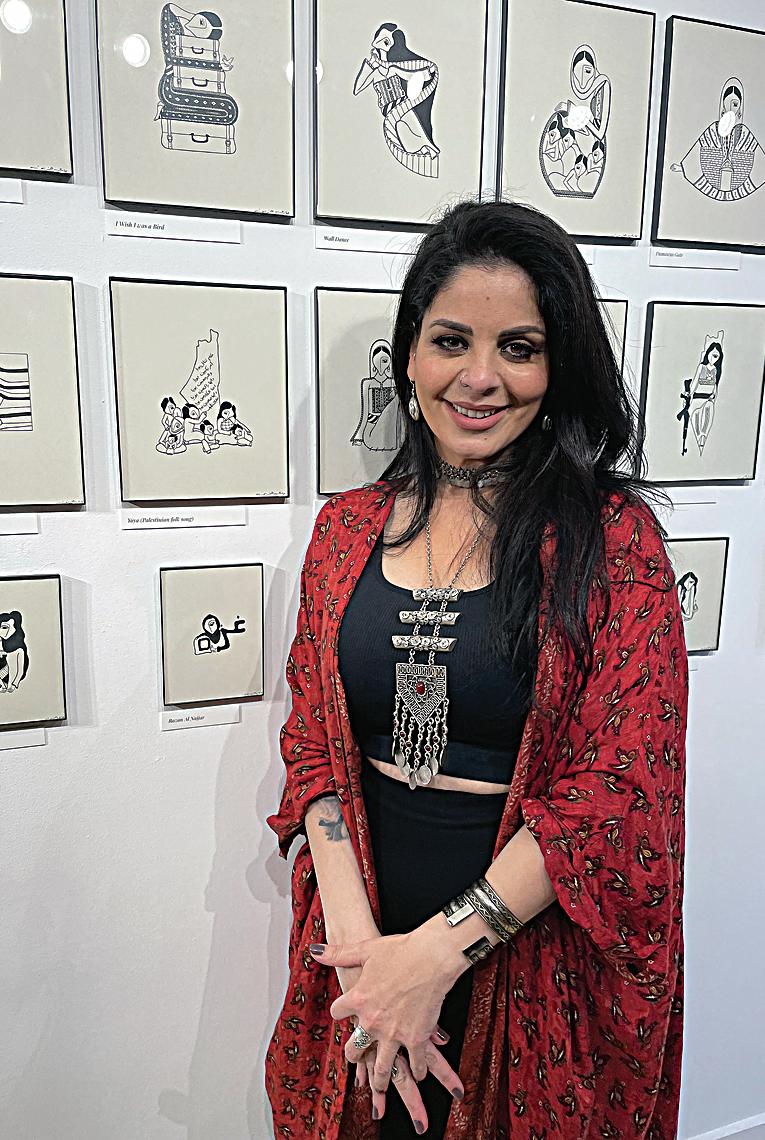
Before opening up her talk for questions and comments, Hazboun observed, “I have not come across a single Palestinian who is tired of telling their story. Art is my way to tell our story. Others use film, poetry or music. I use my art as resistance.”
Mary Hazboun’s important exhibition will be on view at the Museum of the Palestinian People until the end of March 2023. Follow her on Instagram @maryhazboun48, or visit her website <www.maryhazboun.com>.
—Delinda C. HanleyOn Sept. 8, the Middle East Institute’s Arts and Culture Center hosted a panel discussion featuring award-winning photographers Imane Djamil from Morocco and Fethi Sahraoui from Algeria. They are among 15 photographers whose works were featured in MEI’s recent exhibition, “More Than Your Eyes Can See.”
Laila Abdul-Hadi Jadallah curated the exhibition of contemporary photography from the Arab world, which was co-organized with Tribe, a non-profit publication and platform focused on contemporary photography and moving image from the Arab world.
These photographers are “redefining the practice of photography in the Middle East and go beyond incorporating photojournalism and fine arts photography,” said MEI’s Arts and Culture Center director Lyne Sneige. “Their diverse work, which ex-
plores the notions of place, identity, the environment, youth culture and politics, provide an in-depth, intimate and dynamic lens from which to see the Middle East, which is so refreshing.”
Sahraoui discussed his photographic series on display titled “Stadiumphilia,” featuring black and white images of enthusiastic young Algerian soccer fans.
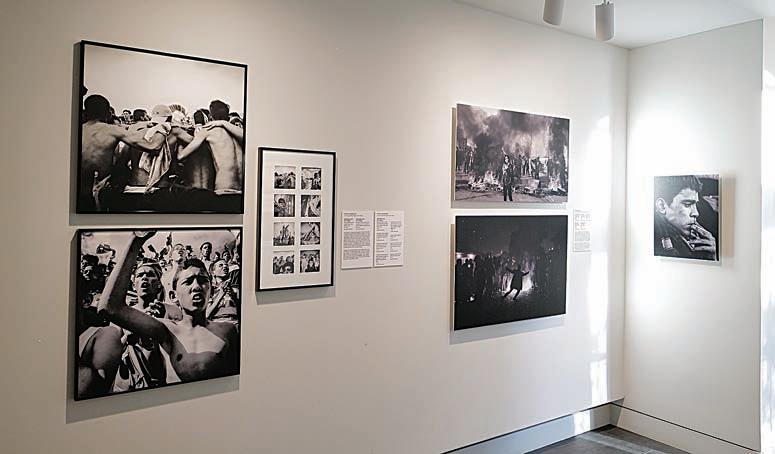
“Starting in 2015, my idea was to follow a group of youngsters who define themselves as ‘ultra,’ which are a group of people fanatic about soccer,” Sahraoui explained. Being under 18, the group was too young to legally enter the stadium. But they did everything they could to get in, not just to support the local team, but because for them the stadium represents a platform to voice their thoughts and feelings, he said.
Sahraoui took the photos with an iPhone, he explained, because it’s a tool he is comfortable with, plus inside the stadium police and security are suspicious of photographers with professional cameras.
Four years after beginning this photographic project, the popular uprising in Algeria began, which Sahraoui called a continuation of what was happening in the stadium. “The youngsters that I was documenting in the stadium were the protagonists of this movement and were leading the frontline of the crowds that were protesting in the street,” he stated. “With my camera, it was my way of protesting with them.”
Two years ago, Djamil began her photo series “80 Miles to Atlantis,” which captures the city of Tarfaya, located in southern Morocco. Obsessed by the small coastal city, she traveled there many times over the past ten years, documenting its landscape, ruins and dramatic coastline. “I have always questioned my relationship to the city because it’s in Sahara,” she conceded. “I just listen to what the place has to say.”
Ethnically and linguistically, the people of Tarfaya are primarily Sahrawi (the native
people of Western Sahara). Many people in the area support the Polisario (the exiled government of the Sahrawi Arab Democratic Republic) and would like to become part of an independent Western Sahara. However, Spain ceded the area to Morocco in 1958, two years after Morocco’s independence. So, unlike Western Sahara, it is legally recognized as part of Morocco and is not claimed by the Polisario.
Elaine PasquiniThe role of human rights in U.S. Middle East policy was discussed at length throughout the first day of the Arab Center Washington DC’s Oct. 12-13 annual conference.
Kenneth Roth, former executive director of Human Rights Watch, told the virtual audience that there is a “human rights black hole when it comes to Western policy” in the region. While leaders in Washington and Europe often espouse virtuous sentiments about human dignity, he noted that they often look the other way when countries such as Egypt, Israel and Saudi Arabia
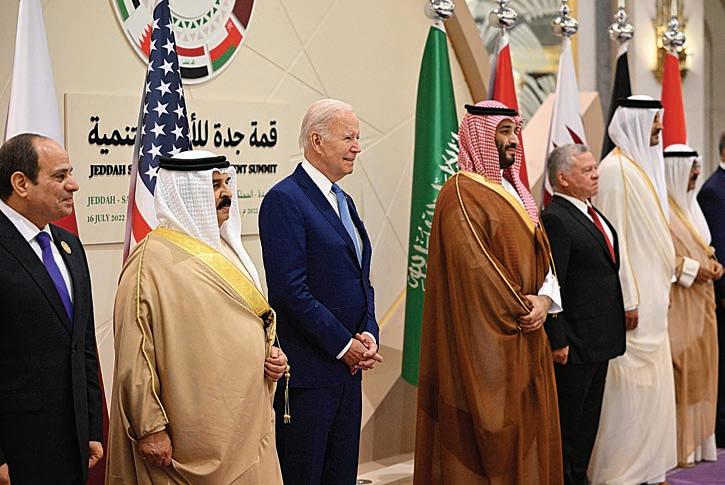
commit human rights abuses.
“The West should care about the hypocrisy that the Middle East represents in its commitment to human rights,” Roth insisted. As many Western capitals seek to ostracize powers such as China and Russia over their human rights records, it would behoove them to practice what they preach, he emphasized. Western governments, Roth said, are “basically giving [Chinese President] Xi Jinping a gift through their hypocrisy in the Middle East by allowing him to say, ‘You talk about human rights, but when you have any kind of interest there, whether it’s oil, or migration or just protecting Israel, human rights go out the window.’”
Leaning into the “great power” competition could be a somewhat cynical but perhaps successful strategy for activists working to steer Western policy in a more moral direction, Roth surmised. “I think we need to push that,” he said. “I don’t promise it’s going to work, I don’t think it’s a panacea, but I do think that it gives us an opportunity to address the blatant hypocrisy, the blatant inattention to human rights in the Middle East that has so characterized U.S. and Western foreign policy toward that region.”
Sarah Leah Whitson, executive director of Democracy for the Arab World Now (DAWN), assessed why the U.S. often takes positions in the Middle East that both belittle human rights and the American national interest.
“The forces that incentivize support for the dictatorships and apartheid governments in the Middle East are just too strong,” Whitson said. Foreign leaders, she noted, employ “lobbyists who have infiltrated our government to curry favor with, to incentivize [and] frankly to bribe U.S. government officials.”
While lobbying is deeply rooted in American politics, Whitson said preventing former U.S. government officials from accepting jobs with the defense industry or foreign governments would stymie the influence of human rights abusers. “If we really want to tackle U.S. support for dictatorial governments in the Middle East… we have to curb the influence of the lobbyists and we have to curb the corruption
of our own government officials and ban them from ever going to work for lobbyists in the defense industry or foreign governments,” she said.
Abdelwahab El-Affendi, president of the Doha Institute for Graduate Studies, noted that repressive governments eventually collapse, often in a violent manner. If the U.S. desires stability and security in the region, it should realize that its authoritarian allies are paving the way toward long-term unrest and uncertainty by suppressing democracy and free expression. The region, he said, is akin to a boiling cauldron being forcibly held shut. “What you will get is an explosion,” he warned.—Dale Sprusansky
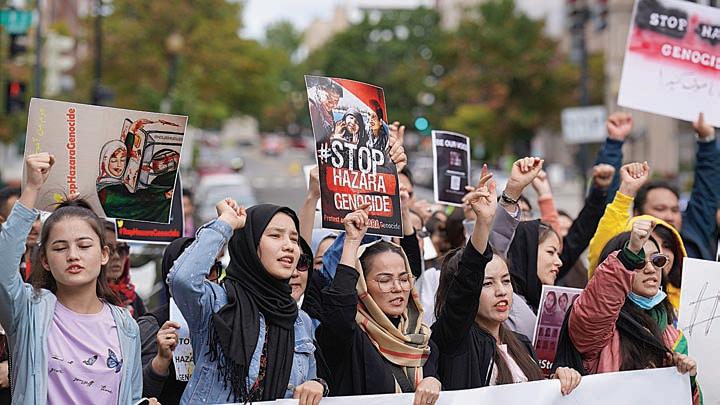
On Oct. 8, members of the Afghan community held a rally in Washington, DC’s McPherson Square to protest the attack on the Kaaj Educational Center in the heavily Hazara-populated Dasht-e-Barchi district of Kabul, Afghanistan. The Sept. 30 suicide bombing killed 53 people—most of them young women seeking an education—and injured an estimated 110 others.
No group has claimed responsibility for the massacre, although both Islamic State Khorasan and the ruling Taliban have a history of attacks against the Hazaras, including on their mosques and hospitals. A predominantly Shi’i ethnic group, the Hazaras comprise about 15 percent of Afghanistan’s Sunni-majority population.
Carrying signs reading “Stop Hazara Genocide” and “Stop Killing Hazaras,” the group of several hundred marched the short distance to Lafayette Square outside the White House. Speakers called on the United Nations to investigate the atrocities committed against the Hazara population.
Across the globe on the same day, rallies were held in 92 cities in 64 countries calling on the international community to recognize the attack as part of an ongoing genocide.
Elaine PasquiniThe U.S.-Saudi Arabia relationship took another step in the wrong direction in mid-October when OPEC Plus, a group of 23 oilexporting countries led by Riyadh and Moscow, announced significant oil production cuts. Top U.S. officials reacted with swift anger, accusing Saudi Arabia of deliberate economic sabotage and aiding Russia’s invasion of Ukraine. President Joe Biden announced a strategic review of U.S.-Saudi ties and vowed that Riyadh would face “consequences” for the decision. In response to Washington’s rebuke, Saudi Arabia issued a statement saying the multilateral decision to cut two million barrels per day of oil was “based purely on economic considerations.”
To assess what the latest drama por-
tends for U.S.-Saudi relations, the Middle East Institute (MEI) held a virtual panel discussion on Oct. 14.
Bruce Riedel, director of the Intelligence Project at the Brookings Institution, noted President Biden took OPEC Plus’ decision personally, given his controversial direct diplomacy with Saudi Crown Prince Mohammed bin Salman (MBS) this summer. Domestic critics accused the president of being too deferential to MBS in an effort to fight inflation. “In very sharp terms, this decision to cut oil production is a personal humiliation for the president,” he said.
Riedel believes the president has good reason to be angry with MBS, describing the production cut as the latest “reckless and dangerous” move made by the de facto leader of Saudi Arabia. He said blocking arms sales, ceasing the transfer of spare military parts and declining to shield MBS from lawsuits pertaining to the slaying of journalist Jamal Khashoggi are among the retaliatory moves the White House is likely considering.
While Washington values its strategic partnership with Saudi Arabia, the relationship “matters an awful lot more to the Saudis,” Riedel insisted. He doubts other powers, such as China or Russia, would be more willing than the U.S. to back Riyadh in a confrontation with Iran, or that any other power could sufficiently replace Saudi
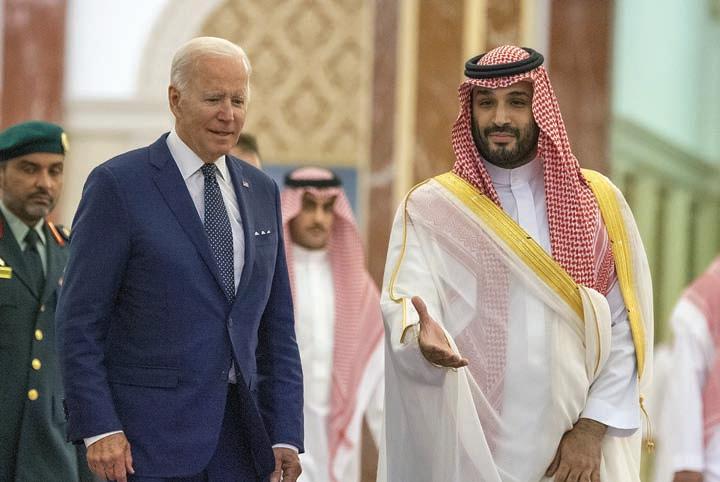
Arabia’s U.S.-manufactured weapons.
Asked whether the U.S. ought to placate the 37-year-old MBS in order to ensure amicable Saudi-U.S. relations over the next few decades, Riedel said the U.S. should appreciate its leverage and also not assume MBS will lead Saudi Arabia for the foreseeable future. “This is a country whose future is very much in doubt today, I would say more than at any time,” he said. He noted that MBS has enemies within the royal family who are opposed to him holding the keys to the Kingdom into perpetuity.
Joanne Held Cummings and Kevin Donegan, both distinguished senior fellows on national security at MEI, were much more receptive to Saudi Arabia’s official position regarding the current diplomatic rift.
Cummings noted that Saudi Arabia did vote to condemn Russia at the U.N., and that Riyadh has a legitimate national interest in high oil prices. “I think Saudi Arabia can definitely make the argument that they have a domestic imperative to maintain a stable budgetary base,” she said.
Cummings also questioned how much the move will help Russia make more money from its oil, given that the country is mostly selling its output to China and India at dramatically reduced prices due to sanctions. She said she’s “not sure you can make the economic argument” that OPEC Plus’ move tangibly benefits Russia.
Donegan cautioned against being too dismissive as to how the U.S. benefits from its relationship with Saudi Arabia. He cited cooperation regarding Iran, terrorism and the free flow of commerce as dynamics that Riyadh’s critics should not flippantly jeopardize.
“What we have to look at as we go forward is what do we lose in those agenda items when we’re talking about separating from Saudi or reducing our partnership with them,” Donegan cautioned. He advised policymakers to “take a breath” and “look at this as broadly as we can.”
Dale SprusanskyOn Sept. 22, George Mason University’s Carter School for Peace and Conflict Resolution hosted a webinar to discuss Algeria’s Hirak movement for political change, which was formed in February 2019 following then-President Abdelaziz Bouteflika’s announcement that he would seek a fifth term. After weeks of mounting pressure from Hirak, Bouteflika resigned in April of that year. In a subsequent election characterized by extreme apathy, Abdelmadjid Tebboune, the military’s preferred candidate, was elected president. Hirak protesters responded by again taking to the streets of Algiers and other cities in the North African country of 43 million.
While Algeria would appear to be a country ripe for political change due to its “corrupt and stagnant bureaucracy, chronic economic problems, semi-autocratic rule, increasingly restless young population, high unemployment [and] arrogant out-of-touch leadership…there are complicating factors” preventing change, said Stephen Zunes, professor of politics and international studies at the University of San Francisco.
He cited history as a particularly significant factor tempering radical change in Algeria. Hirak’s commitment to non-violence, its moderate demands and persistence in the face of repression are commendable, Zunes noted, but many Algerians remember the civil war of the 1990s and fear that “greater openness [of the political process] could lead to a return to either violence, in-
stability or the election of a conservative Islamist government,” he said.
Ultimately, Zunes believes both Algerian citizens and their leaders understand some sort of transformation of the country’s politics must take place. “I think the desire for change, the need for change, is obvious enough and I think the Algerian leadership, despite everything, is pragmatic enough that they realize they can’t hold off the floodgates forever,” he stated. “I would [expect to] see a more gradual kind of [change], but it’s not going to be exclusively top-down; it’s not going to be exclusively bottom-up. It’s going to be both.”
Hamid Lellou, CEO of RI-SE (Reaching Independence Through Social Engagement) and a Middle East and North Africa analyst with close ties to activists in his native Algeria, said the situation on the ground remains too fluid to definitively judge Hirak’s impact. “Three and a half years later, Hirak has not succeeded, but it hasn’t failed either,” he opined.
Global Initiative Against Transnational Organized Crime senior fellow Raouf Farrah said one positive result of Hirak is that it inspired a new generation of activists and political leaders to pursue collective action. “It brought so many fights for democracy and rule of law in Algeria into one movement, which has been massive, peaceful and national,” he pointed out.
“The peaceful element of Hirak…is a testament to the strength and the desire of the Algerian people for a better future,” said moderator Andrew Farrand, a non-resident senior fellow with the Atlantic Council’s Middle East Programs.—Elaine Pasquini
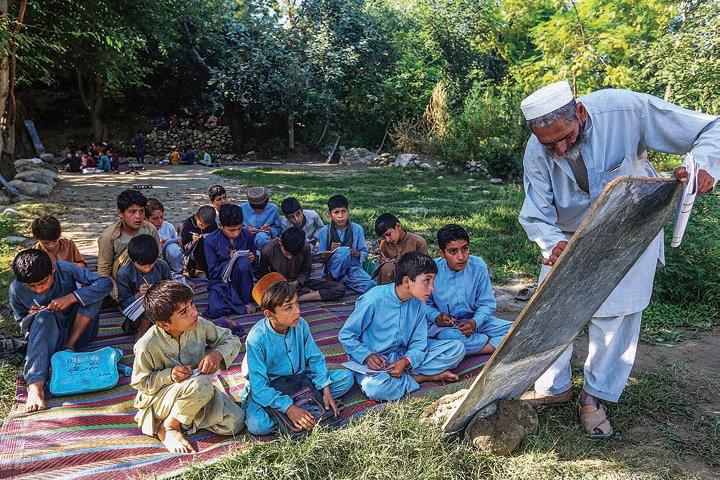
The Quincy Institute for Responsible Statecraft hosted an online discussion on Aug. 29 to assess Afghanistan’s ability to become less dependent on international aid amid its dire humanitarian and economic crises.
One year after U.S.-led coalition troops left Afghanistan, the United States remains the leading donor of humanitarian aid to the Afghan people, having provided more than $774 million over the past 12 months. However, American sanctions against the Taliban and Washington’s decision to freeze most of Afghanistan’s central bank holdings are simultaneously stymying the country’s development.
“We have an unprecedented sanctions situation in which a group that was designated as a terrorist group is now the de facto government,” observed Adam Weinstein, a research fellow at the Quincy Institute.
Jordan Kane, a senior analyst for the Special Inspector General for Afghanistan Reconstruction (SIGAR), said it’s difficult to overstate the magnitude of the human suffering in Afghanistan. In January, the U.N. announced two appeals for Afghan aid that totaled more than $8 billion, one of which was the largest appeal for a single country in U.N. history. The World Food Program forecasts that almost 19 million Afghans will face “acute food insecurity” in the coming months, she added.
For the economy to improve, Haroun Rahimi, an assistant professor of law at the American University of Afghanistan, said the country must find a way to be part of the international community.
The world is walking a tightrope trying to contribute to a prosperous Afghanistan while not permitting the country to become
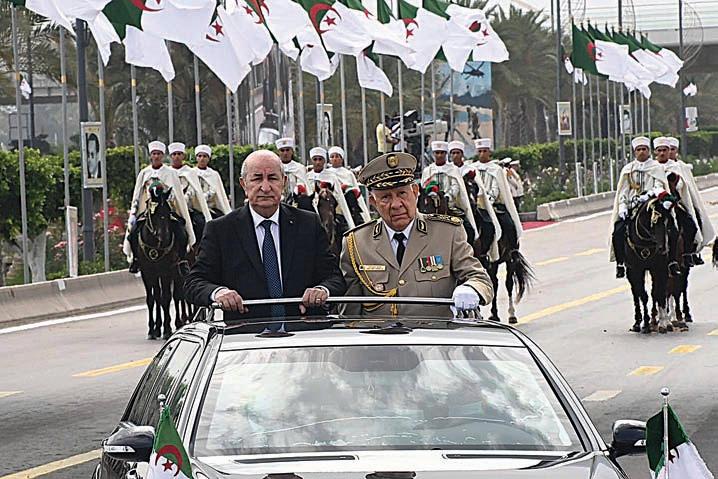 Algerian President Abdelmadjid Tebboune (l) salutes the Algerian army during a military parade in celebration of the 60th anniversary of the country’s independence from France, in Algiers, on July 5, 2022.
Algerian President Abdelmadjid Tebboune (l) salutes the Algerian army during a military parade in celebration of the 60th anniversary of the country’s independence from France, in Algiers, on July 5, 2022.
“a successful emirate” for the Taliban, he said. The Taliban is also walking a tightrope between not breaking its ties with al-Qaeda while also trying to gain the acceptance of the international community, he added.
Rahimi pointed to the Taliban’s apparent opposition to educating women as an obstacle to both obtaining foreign resources and facilitating organic economic growth. “The Taliban have chosen to isolate themselves [on the international stage] by not moving forward on girls’ education,” he said. “They are also harming their own country by not developing half their population.”
According to Graeme Smith, a senior consultant for the International Crisis Group, the Taliban are interested in economic recovery, but only “on their own terms.” There are ways in which the Taliban are trying to sort of “duct tape things back together even though the country does remain under a lot of pressure,” he said. “About one-third of the GDP has disappeared since this time last year.”
Amid this “grim new normal,” Smith said there are “glimmers of hope.” According to the latest World Bank update, “government revenues for the current year have now surpassed government revenues for the same period last year…in part because the Taliban have cleaned up corruption massively.”
In addition, the CASA-1000 electrical power project currently under construction connecting energy-rich Central Asia with energy-poor South Asia will likely result in “tens of millions of dollars pouring into the Taliban treasury,” Smith explained. Importantly, this revenue will not be subjected to sanctions. “These fees are legitimate due to [U.S.] General License 20, which allows certain fees relating to commercial transactions, such as customs duties, taxes and licensing.”
While there are reports that the Taliban government is less corrupt than the previous Afghan government, Tara Moayed, who worked in Afghanistan from 2015 to 2019 as a social development consultant and adviser to the Ministry of Finance, said the Taliban has a transparency issue. “The key question is where is the money being
spent,” she said. “The Taliban has not been willing to be transparent about its finances and where the money is going, which is a problem.”
Parts of the previous system did work and are worth preserving, she insisted. Successes in Afghanistan over the past 20 years include healthcare, community development and education, she said. “It would be a huge loss for Afghanistan to lose the capacity to deliver those services going forward,” Moayed warned.
Dr. Ather Zia, an associate professor in the Department of Anthropology and Gender Studies at the University of Northern Colorado, delivered a virtual lecture on the current political strife in Indian-controlled Kashmir for the Institute for Palestine Studies on Aug. 29. She elucidated how India has maintained a unique neocolonial attitude toward Kashmir since the 1947 partition of British India.
After 1947, the Indian government worked with client politicians in Kashmir to grant the region special status in the Indian constitution, allowing Kashmir to maintain control over its local affairs and elections. This move boxed out Pakistan, which also sought control over the region. A war broke
out between India and Pakistan over Kashmir, resulting in both countries gaining control over separate parts of the territory as part of a ceasefire agreement.
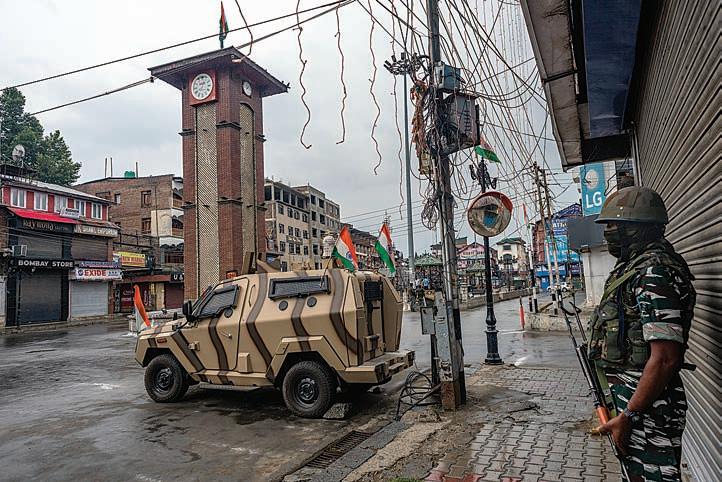
This post-colonial quest for control of Kashmir ignored an important fact, Zia said: “Kashmiris were at the time in favor of independence—and still are.”
However, the Indian government has claimed since 1947 that the Kashmiri people are content living under Indian control, and the world has largely accepted this narrative, Zia noted. It’s time, she said, for the voices of Kashmiris who have long desired independence to finally be heard in India and around the world. She suggested that those interested in justice begin reading Kashmiri writers for an unfiltered insight into what those living in Kashmir think and desire.
While India has maintained close control over Kashmir for decades, it dramatically intensified its crackdown in 2019, when it formally revoked Kashmir’s special status and autonomy through a constitutional amendment. As a result, Indian exploitation of land and resources has increased, and many local activists in Kashmir have become silent out of fear of sedition charges. “Inside Kashmir, people are taking great risks to write, to read, to research,” Zia noted. The current reality is proof that Kashmir remains stuck in a
colonial system, as it faces a government that exploits its resources and imprisons activists, Zia emphasized.
Zia pushed back against the common Indian claim that Kashmir—which is majority Muslim—is a breeding ground for violence and terrorism and thus requires a military presence. The hackneyed notion that Islam equals terrorism has been “easily imposed on Kashmiris” to justify New Delhi’s occupation and exploitation of the region, she said.
In addition to simply fighting for their basic rights, Zia said Kashmiris are also beginning to insist that centuries-old paradigms about the conflict, established by “retreating [British] colonists,” be rethought. Notably, she pointed to the fact that independence was never put on the table by the British. This, she said, has “completely undermined” the Kashmiri resistance by forcing residents to choose either Pakistan or India. It’s time to “divest of all of that baggage and really think in decolonial terms about the future,” she said. “We are looking too much into a past that we should not be considering because it hasn’t really served the region.”
Zia resisted making far-reaching comparisons between Israel and India’s neocolonial ambitions, but noted the two countries have enjoyed a high level of political cooperation. In fact, Israel recently transferred surveillance technology that India uses in Kashmir, including the Pegasus spyware. Nevertheless, Zia believes India’s attitude toward Kashmir stems from its own unique brand of colonialism, which does not explicitly resemble Israel’s policies toward Palestine. “To think about the Israelification of Kashmir would not be doing justice to either of the two struggles,” she said. “India has its own brand of settler colonialism in Kashmir.”
She said one common strain between Israel and India is that both countries use their democratic identity to hide and obfuscate the heavy-handed tactics they deploy against minorities and those living in areas they occupy. “Indian neocolonialism has weaponized democracy to invisibilize the Kashmiri situation,” she said.

Washington, DC’s National Council on U.S.-Arab Relations (NCUSAR) and Anera hosted an Oct. 4 virtual program on “Restoring Hope Amid Crisis: Responses to the Economic Collapse in Lebanon.”
According to Human Rights Watch and the United Nations, 80 percent of Lebanese do not have access to basic rights including health care, education, adequate housing and electricity. Anera, which has provided humanitarian assistance and sustainable development to refugees in Palestine, Jordan and Lebanon for 54 years, is working to address this dire situation. Last year alone, the NGO delivered $50 million for medical aid and community programs in Lebanon.
Despite Lebanon’s myriad problems, there is reason to have hope, said Samar El-Yassir, Anera’s country director for Lebanon. “I think as long as we exist…there is hope in this hopeless situation,” she said.
While the Lebanese people have long demonstrated their strength, stamina and intelligence, “unfortunately, we have bad leaders and we are not very fortunate with our neighbors as well,” she added.
The devaluation of the currency means that “suddenly you find…your salary is only worth 10 percent of what it used to be,” ElYassir explained. A $1,000 a month salary
is now worth less than $100. “This compromises the ability of a family to live in dignity, to afford food, medicine or paying rent,” she noted. In order to have reliable electricity, people depend on generators, which are very expensive. “To receive power for only 10 hours a day you must pay $100 a month,” El-Yassir pointed out, making it unaffordable to the average family.
Aside from basic aid, Anera has assisted with several forward-looking, sustainable initiatives, such as green energy projects. They have also helped establish recycling programs, which provide an income for residents of local communities and help reduce waste. “This is a win-win situation where we are able to show hope in a situation of darkness,” El-Yassir explained.
However, maintaining new “clean” systems is not always easy. Lama Ghaddar, Anera’s program manager in Lebanon, helped launch a desperately needed community-based solid waste program in 2017. But when the economy collapsed in 2019, municipalities ran out of resources to manage the system on the local level, she said, and now the project is a low priority.
As Anera’s education program manager, Leen Ataya oversees projects in five regional offices across Lebanon that provide technical and vocational training in the areas of hospitality, construction, information technology and health care. Since
Zakaria Clark-Elsayed
Anera has been operating in Lebanon for so many years, “we know what families want, what they need,” she said. “We meet with the youth, their parents and the community members…to maintain their interest in the educational programs.”
Basic literacy initiatives to improve youth reading, math and other skills are a top priority. “We give them life skills, positive leadership and apprenticeship opportunities that are paid so they can have handson experience, which may enable them to get a [job] at a small or medium enterprise,” Ataya said.
To wrap-up the program, El-Yassir called for continued support for Lebanon from the diaspora, the U.S. Congress and USAID. “Lebanon has fallen and we need to help pick it up and help support its people,” she said. “Coming back to hope…we see with help from Anera we’re not only filling basic needs, we are helping to spread hopefulness and using the crisis as an opportunity to advance the message of hope.”
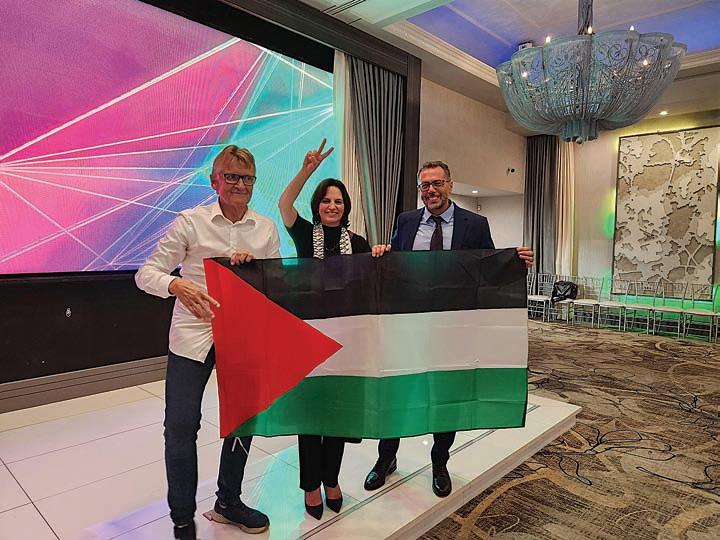 Elaine Pasquini
Elaine Pasquini
Diplomats, scholars and community members gathered at the Middle East Institute (MEI) on Sept. 27 for a reception celebrating the reopening of its Oman Library, a premier resource for literature and information on the Middle East in Washington, DC.
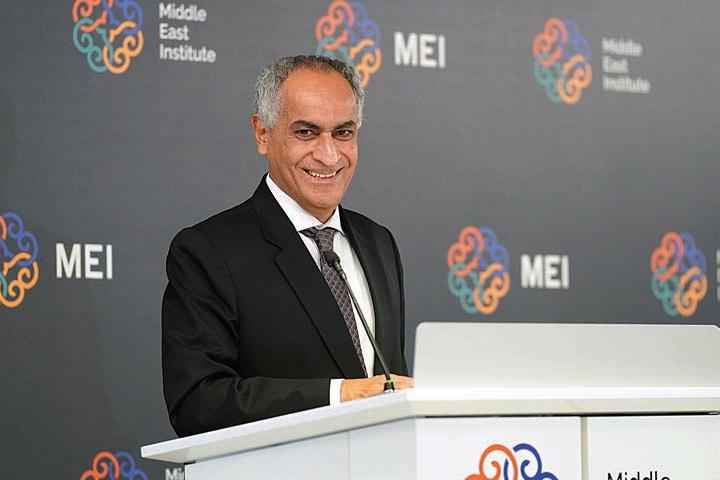
The library, housing a collection of 20,000 books and maps in multiple languages—including more than 1,500 rare tomes—had been closed for two years due to renovations and the COVID-19 pandemic. The library is now open to the public on weekdays, and its online catalog is always available.
“We highly value the work of the Middle East Institute, its members and staff to forge change and better relations between the United States and our region,” said guest of honor Omani Ambassador to the U.S. Moosa Hamdan Moosa Al Tai. “The friendship of the Sultanate of Oman with the Middle East Institute is one that spans some 40 years.”
In 2011, the late Sultan Qaboos bin Said Al Said provided funding for extensive ren-
ovations, new furniture and other updates to the library, which was rededicated in 2013 as “The Oman Library at the Middle East Institute.” The Sultanate continues to provide support for the library and other programs at MEI. “We are pleased to support the library,” the ambassador told the guests.
“It is our hope with the reopening…the library will continue to thrive.”
MEI president Paul Salem thanked the ambassador for his country’s continued support of the institute. “It’s a real honor to celebrate our relationship between MEI and the Sultanate of Oman,” he said. “It’s a very long relationship, a very deep relationship and one of which we are extremely proud. The jewel in our crown is the Oman Library and we are extremely grateful for the sup-
port that the Sultanate continues to provide for our work.”
The evening concluded with delicious Arabic refreshments, library tours, a book sale and Middle Eastern music.
Elaine Pasquini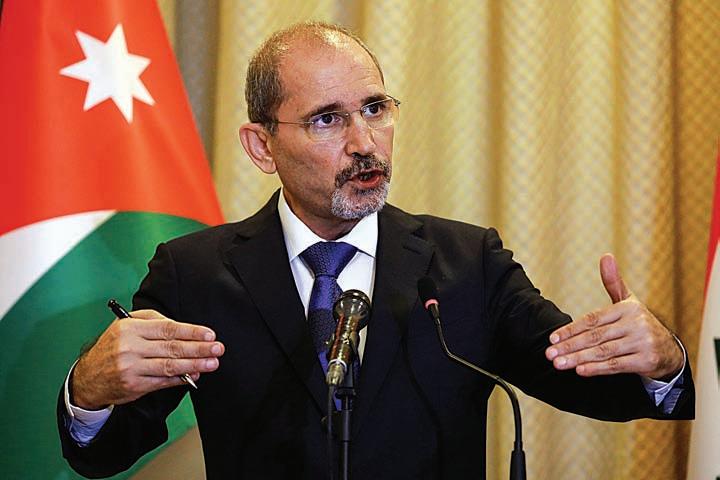
On Sept. 16, the Wilson Center hosted a conversation with Jordan’s Deputy Prime Minister and Minister of Foreign Affairs Ayman Safadi in which he discussed Amman’s ongoing political and economic reforms, Jordanian-American relations, the regional implications of Russia’s invasion of Ukraine and the Middle East “peace process.”
Safadi began by discussing the sevenyear Memorandum of Understanding (MOU) between the United States and Jordan that was signed earlier that day. Under the agreement, the U.S. will provide $1.45 billion per year in aid to Jordan. “It will play a major role in helping us mitigate the very heavy impact of regional crises on the Kingdom,” he said, noting that Jordan faces pressing challenges such as hosting Syrian refugees, border security, drug trafficking and resource scarcity. He added that “the MOU is going to be central to our development process,” as Jordan is implementing administrative and economic reforms, as well as long-term projects pertaining to water and energy that will create economic growth.
Relatedly, Jordan is working on “legislation that would make investment more attractive,” Safadi said, as well as public administration reforms to ensure “a more efficient and active bureaucracy that can facilitate opportunity.” The availability of jobs is a pressing issue for Jordanians, but “the public sector can no longer offer jobs,” so private sector development is critical to Jordan’s economic development, he explained. Safadi added that the country is also implementing reforms aimed at increasing the participation of women, youth and political parties in the political process.
One of the challenges impacting Jordan is the fallout from Russia’s invasion of Ukraine. The impact has been global, Safadi noted, affecting food security, commodity prices, energy prices and supply chains.
“Jordan supports international law and respects the territorial integrity of nations,” the foreign minister declared. He called for a global effort to mitigate the impact of the war on vulnerable countries and groups, without forgetting about the needs of Syrian refugees and other at-risk groups in the Middle East. “Russia has been a stabilizing presence in the south” of Syria, he argued, and it is necessary to continue engaging with Russia for regional stability, “despite our position on the invasion of Ukraine.”
Safadi described the Abraham Accords, which have contributed to Israel’s integration in the region and increased economic activity between Israel and Arab countries, as a positive development. However, he said the Accords are “not an alternative to a political solution [to the Palestine issue], but an enabler of that political solution.” He added that Palestinians must not be boxed out of economic and political developments in the region. “If we do not solve the Palestinian-Israeli conflict, the conflict will remain with us and will manifest itself in more violence and more tension in the region,” Safadi warned.
The path to a resolution is very clear, he explained: a two-state solution with a sovereign, independent Palestinian state using the pre-1967 lines with East Jerusalem as its capital. “We believe this is the only path to comprehensive peace,” he said. Safadi called out “unilateral actions” that are undermining the two-state solution, including Israeli settlement expansion, the confiscation of Palestinian land and Israeli encroachment on the Haram al-Sharif in Jerusalem. Restoring hope in the viability of the peace process is critical because “the most dangerous thing is that people no longer believe the peace process can deliver,” he said.—Alex Shanahan
Chief Representative of the Palestinian Delegation to Canada Mona Abuamara was the featured guest and speaker at a solidarity dinner held on Aug. 24 at a Mennonite church in Winnipeg, MB. Palestinian advocates and allies enjoyed meals catered by two local Palestinian restaurants as Abuamara shared her unique story and gave activists some sage advice on how to move forward with their work.
Palestinians “are all products of the Nakba, no matter if we lived through it or are descendants of those who lived it,” Abuamara explained. She shared a
number of personal Nakba-related “touch points” that have informed her own trauma and activism.
At the moment of her birth in Beirut, where her parents were living as refugees, the city was being bombed by Israel and electricity was cut off from the hospital. “That was the beginning of my PTSD, which stays with me until now,” she said. Abuamara has lived with a fear of losing her parents, feelings of anxiety at the sound of military jets and a phobia of soldiers for her entire life.
“During my childhood, there was such a big dark cloud over my head, even though I was one of the lucky ones,” she explained. Other Palestinian kids have seen much worse horrors, she noted, particularly those who have grown up in Gaza over the past decade.
Abuamara also discussed the challenges Palestinians face when attempting to narrate their own stories. “It would be helpful to just keep the narrative on us for
once and let us narrate our stories the way we want to, not the way the world wants us to,” she said. Palestinians are always pressured to acknowledge “the other side” while their own suffering is typically ignored or undermined, she added.
For this reason, Abuamara has been pleased by the recent wave of reports from human rights organizations noting the apartheid nature of the Israeli government. “It felt like a breath of fresh air to read the [Amnesty International] report” and see what Palestinians have been saying for decades finally being recognized, she said.
Closer to Canada, she praised the important and difficult work of those who advocate for Palestine. Unlike Palestinians who fight for their own rights, she noted that allies freely give their time and talents to the cause. “You guys, you didn’t choose this, you are doing it for your values, for your principles,” she said. “I just want to thank you all so much for coming and doing all that you do. It means the world to the Palestinian people.” The Palestinian cause is “not an easy one to stand for,” she acknowledged, as many in the West have been targeted and punished for their advocacy.
Abuamara knows well the consequences of strongly supporting Palestine. She has been accused of anti-Semitism, but said she has no plans to soften her language when speaking about the occupation and the 15 year-old siege of Gaza. Specifically, she advised the audience to think carefully about their words when they discuss Palestine, advising against using the word “conflict” to describe what is happening to the Palestinian people. Instead, she suggested activists note that Palestinians are participating in a “struggle under occupation.”
Independent Jewish Voices Winnipeg and the Mennonite Church’s Palestine Israel Network organized the evening event. Members of partner organizations, such Peace Alliance Winnipeg, the Canada-Palestine Support Network, the Canadian Palestinian Association of Manitoba, the United Jewish People’s Order and Canadian Friends of Sabeel, were all in attendance.—Candice Bodnaruk
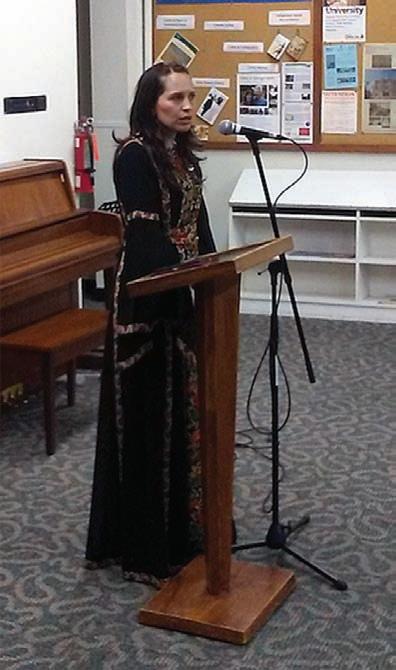
The non-partisan New Dominion PAC (NDPAC) and the Arab American Democratic and Republican caucuses of Virginia held their 32nd annual Northern Virginia Candidates’ Night Dinner at the Tysons Corner, VA Marriott on Oct. 16. NDPAC invites candidates running for office in Virginia to meet with the Arab American community over a hearty dinner—because, of course, good food is required in their hospitable culture. The evening started with a uniquely Arab American rendition of “The Star-Spangled Banner,” strummed on the oud with lyrics in English and then Arabic.
NDPAC president Dr. Maher Massis welcomed more than 150 guests, and said he was happy to get together after COVID interruptions and the death, on Sept. 17, 2020, of NDPAC founder Sabah Shami. “We’re here to help you connect with your candidates. We care about our families, our local community and our dear country,” Massis said, so encourage everyone in our community to honor our American duty to vote, volunteer and donate to campaigns.
Sen. Tim Kaine (D-VA) recorded a message saying he mourned the loss of Shami, who he said helped him understand the Arab American community—some who’ve been here for generations and others who are new Americans. “You keep us true to what we say about ourselves,” he said. He urged everyone to vote in the midterm elections because “It’s time for all of us patriots to link arms and support candidates who share our values.”
Massis gave a quick overview of Arab American political activism, beginning in 1982 with the Israeli invasion of Lebanon, when Arab Americans were upset by the silence of their government and resolved to become more politically active. Sometimes, in the beginning, their support and campaign donations were not welcome (Walter F. Mondale returned checks from Arab Americans in 1984). “But it’s truly amazing how far we’ve come since the 1980s,” Massis said, noting that both Re-
publicans and Democrats running for office in Virginia or their surrogates were in attendance tonight.
The Arab American vote made a difference in the 2020 elections because while they may be only 1 percent of the total voters, they are concentrated in battleground states and they turn out in high numbers. Arab Americans are 5 percent of voters in Michigan and 1.7 to 2 percent in Pennsylvania and Ohio. In Virginia, with a population of 150,000, Arab Americans are between 1.2 and 1.5 percent of voters, Massis said.
Rep. Gerry Connolly (D-VA), who had just been endorsed by Emgage Action, a Muslim-American advocacy group, said he always keeps his door open to Arab Americans. He reminded listeners that he was the first member of the House to condemn Egypt’s crackdown on demonstrators and helped obtain the release from Egyptian prison in 2017 of dual citizen Aya Hijazi. Connolly, along with 25 House Democrats, condemned the destruction of Palestinian homes and the forced relocation of residents in Sheikh Jarrah in May 2021. Recalling Trump’s Muslim travel and refugee bans, he concluded, “Democracy is on the ballot this election and if there is a community that has a stake in this election it’s you. Make sure your voice is heard.”
Rep. Jennifer Wexton (D-VA) said she is a strong supporter of free speech. Wexton said she listened to her constituents and voted against an anti-BDS resolution. Wexton also sent a letter signed by 80 members of Congress to Secretary of State Antony Blinken on June 3, 2022, urging the administration to take concrete steps to address Israeli settlement growth and settler violence against Palestinians and evictions and demolitions of Palestinian homes.
A surrogate for Rep. Don Beyer (D-VA) said the congressman was proud to write a letter to Blinken urging him to verify that all U.S. travelers, including Palestinian Americans, are treated equally at all ports of entry that Israel controls. Under Israel’s new policies, Americans are subject to onerous and restrictive screening processes designed to
deny entry to those who express political positions deemed unacceptable by Israeli authorities. Some are forced to deposit bonds of up to $20,000 upon entry and are coerced into disclosing information on friends and relatives. He urged all Arab Americans to tell their representatives to sign Beyer’s letter.
Rep. Robert Wittman (R-VA) also sent a letter on Oct. 14, 2022 to Secretary Blinken and Secretary of Homeland Security Alejandro Mayorkas regarding Israel’s restrictions on Palestinian Americans entering Israel or Palestinian cities. He cited the July 22 experience of his constituent Kamal Nawash, an attorney who holds a Jordanian passport and was denied entry. Wittman concludes his letter by saying he’d “appreciate your consideration to these concerns as you work with the Israeli government to negotiate admittance into the Visa Waiver Program and see that all U.S. citizens receive equal treatment and freedom of travel regardless of national origin or ethnicity.”

This year, speakers agreed, Arab American voters should follow the trail blazed by Sabah Shami and vote for legislators who care about their civil rights at home and abroad.
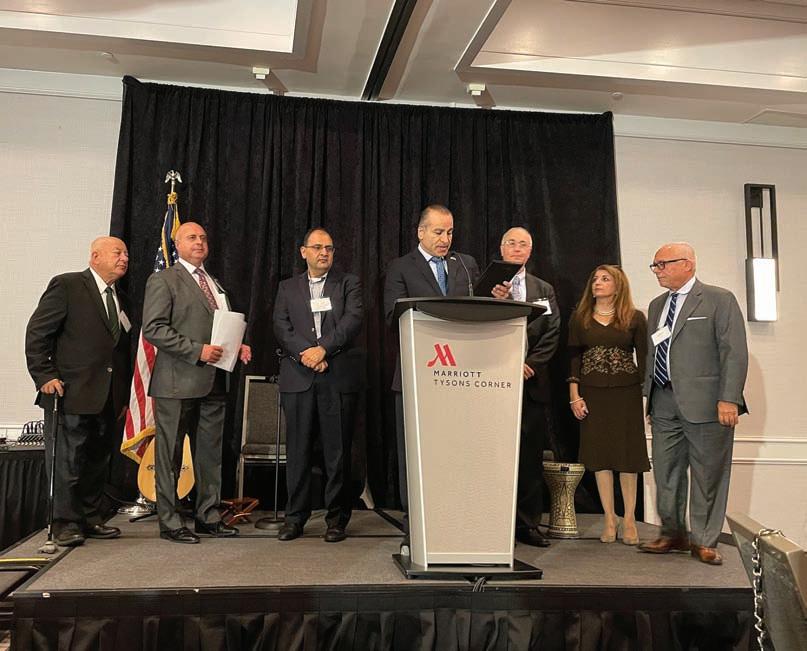 —Delinda C. Hanley
—Delinda C. Hanley
r the movements, activistsovee cAt Mondoweiss, w
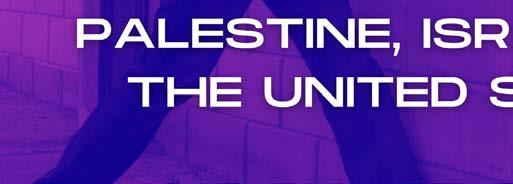

Palestine.inreedomf foortruggle shand policymakers who affect t ef
fearless, independent journalism is more th year of publication, Mondoweiss’sNow in our 16 the world’s struggles interconnect. resistance and hope – stories that show us all how We cover Palestinians’ stories of occupation,


important than ever.
ttwodcasarepouneonubscribt & Listes

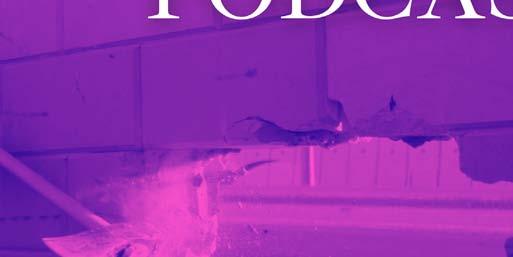
mondoweiss.nt//ppodcast et/


All books featured in this section are available from Middle East Books and More, the nation’s preeminent bookstore on the Middle East and U.S. foreign policy. www.MiddleEastBooks.com • (202) 939-6050 ext. 1101
Suad Amiry’s first work of fiction is nominally a story of thwarted teenage romance told against the backdrop of the fall of Jaffa and the surrounding villages in 1948, when Israel was created and Palestine was violently dismembered. The narrative covers a four-year period beginning in June 1947, as tensions were building in the period before the end of the British Mandate, and ending in 1951, with the Palestinians who remained in Jaffa corralled into a ghetto trying to find their way as an unwanted minority in a triumphalist Jewish state.
Mother of Strangers describes graphically one of the consequences of forcible exile during war—not only the (obvious) loss of home and town, but also the fragmentation of nuclear families. Amiry offers as much historical background as the uninitiated reader needs to understand the unfolding events. But even readers who understand the loss of Palestine in geopolitical terms may not be familiar with how an abstract concept like settler colonialism plays out in the lives of its victims. The book makes the human consequences painfully clear.
Anyone familiar with even the broad contours of Palestine’s 20th century history knows from the opening pages that 15year-old lovestruck Subhi is going to be disappointed in his pursuit of Shams, the 13year-old village girl of his dreams. Our knowledge of the disaster that awaits Jaffa in 1948 infuses our reading with sadness
Ida Audeh is a contributing editor of the Washington Report.
for the earnest, hormone-driven teenager who thinks that with the right suit he can win the girl’s heart. We suspect (correctly as it turns out) that he will never have a chance to find out.
Jaffa, too, doesn’t stand a chance. Nicknamed “the mother of strangers,” a tribute to its hospitality, the city has another nickname, “the bride of the sea,” and that is the metaphor that comes to life in the first part of the novel. Amiry reclaims and maps Jaffa as it once was, before it was taken over by newcomers determined to erase all traces of its original residents. She recreates communities and streets that no longer exist: the cafes, neighborhoods of note, the names of families who owned orange groves. She describes the political discussion that dominated Palestinian life in the months before the Nakba and the class differences between city people and villagers. Regional traditions come to life in the cluster of chapters that end part one, in which Amiry describes the Nabi Rubin season, a much-anticipated period on the calendar that drew thousands of area residents to the shrine of the prophet Rubin. For three weeks or so, families took to the coast and
camped out, barbecuing their food and enjoying the carnival atmosphere and sea breeze.
Part two begins in January 1948, and describes a sequence of atrocities that contributed to the mass panic and flight in April of that year. After the city’s fall, demoralized and defeated Jaffans watch helplessly as Arab homes are looted methodically by organized Jewish gangs. They become a barely tolerated minority in their own country.
In parts three and four, people are on the move, trying to escape Israel’s clutches while searching for their loved ones. Shams and her sisters are separated from their parents during the chaos of the flight from Jaffa, and as the parents separate to look for their daughters among groups of refugees, borders tighten; Shams never sees her mother again. Subhi is separated from his family and ends up in Jordan. His rakish uncle lives in the new state until circumstances force him to leave for Lebanon, but even there he is not safe; he is killed in combat when Israel invades that country in 1982.
The circumstances that prompted Amiry to write this book are revealed at the end, lending a twist to an already moving story. The daughter of a refugee who grew up in Jaffa and never got over the loss of his home, the author made the trek to Jaffa decades later to find it, but the guidance she was given was insufficient in a state that makes it a point to obliterate all traces of Palestinian life predating 1948. When a cab driver learned of her unsuccessful search, he introduced her to his aunt, who is none other than the real-life Shams, whose story led Amiry to track down Subhi, living in a refugee camp in Jordan.

Whereas Amiry had intended to write a personal account about the search for her father’s home, she was led to a bigger story: the fall of Jaffa and the loss of Palestine as experienced by two teenagers who survived the catastrophe but lost a great deal in the process. Now grandparents, they were willing to talk about the trauma they experienced, which the author’s father had never been willing to do.
Mother of Strangers describes the price paid in human lives when exclusivist states are created violently. It is also the story of
refugees around the globe—and there are so many of them today, fleeing war, poverty, gang violence, climate catastrophe—forced to abandon everything that roots them and to find their footing in an often hostile or at best indifferent world.
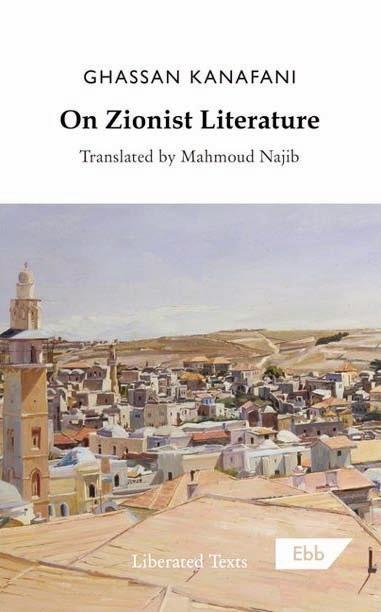 By Ghassan Kanafani, translated by Mahmoud Najib, Ebb Books, 2022, paperback, 188 pp. MEB $20
Reviewed by Steve France
By Ghassan Kanafani, translated by Mahmoud Najib, Ebb Books, 2022, paperback, 188 pp. MEB $20
Reviewed by Steve France
racism. The Zionist narrative must be countered by a stronger one.
In 1967 it was easier in the West to believe in a basically benign Israel, but Kanafani knew firsthand the deadly racism at the heart of the state’s ideology. Seeking to “know his enemy,” and knowing it was not the Jewish people, he studied Zionism.
Displaying Kanafani’s narrative gifts, On Zionist Literature traces the emergence in 19th century Europe (among Jews and non-Jews alike) of a new vision to revive the lost glory of the Jewish people. “Zionist literature,” he found, had falsely portrayed Zionism as a dramatic liberation movement against “anti-Jewish oppression,” as well as a natural expression of Judaism’s intense religious focus on Jerusalem and Jewish “chosenness.”
“Oppression was not what gave rise to the Zionist movement,” Kanafani writes. “The opposite seems to be the case.” Zionist ideas arose just as the leading nations of Europe were steadily “emancipating” Jews, who were immigrating in large numbers to more tolerant and prosperous countries. Western cultural leaders sought “social integration” in line with the humanist
ideals of Enlightenment and Romantic thinkers. In literature, complex and sympathetic Jewish characters began to replace the anti-Semitic “Shylockian” stereotypes of the past, he says. Maria Edgeworth’s 1817 novel Harrington, Sir Walter Scott’s 1819 novel Ivanhoe and the poetry of Byron and Shelley are a testament to the move away from anti-Semitic tropes, Kanafani argues.
He suggests these trends might have led to a social integration such as was achieved in the U.S. But, in his telling, integration was not enough for a new class of “socio-economically privileged Jews,” who “at the expense of the oppressed Jewish minorities,” fashioned a restive, new Jewish identity that fused religion, race and nationalism and soon cried out for a state of its own in Palestine.
Kanafani says the greatest literary gift to Zionism came from George Eliot, a lapsed Christian, in the form of her 1876 novel Daniel Deronda—a fact that highlights how quickly Zionism found favor with influential non-Jews. Eliot was an idealistic individual and so her Jewish heroes impart an altruistic element to Zionism as they assert, “[The] Jews were chosen by God for the
Fifty years ago, Israel assassinated the novelist, writer and icon of militant resistance Ghassan Kanafani. But publisher Ebb Books doesn’t cite that anniversary as the reason for this first-ever English translation of On Zionist Literature. Nor do readers learn why the slim volume had languished untranslated since 1967.
Regardless, the book is supremely relevant today, when Israel and its Western supporters are digging in ever deeper to reinforce the self-professed Jewish state that oppresses the Palestinians. Following suit, critics of Israel are going deeper in documenting Israel’s apartheid, settler-colonial nature. But, as Kanafani well knew, facts need a strong narrative frame before they can change deeply held attitudes and notions. Put another way, with its unprecedented assertion of ethnic supremacy, Israel is relying ever more heavily on narrative, rather than facts, to justify its brazen
sake of other people.” One Jewish character, Mordecai, goes further, saying, “Israel is the heart of mankind,” but “our separateness will not…have its highest transformation unless our race takes on again the character of a nationality.” This Jewish version of the “white man’s burden” was to be enacted in Palestine, but Eliot overlooked what that might mean for Palestinians.
The book also exposes the fabrications and literary flimsiness of later novels, such as Exodus by Leon Uris, which depicted the Zionist destroyers of Palestine as saintly heroes and their victims as backward brutes. But it is in the story of Zionism’s invention that Kanafani’s brilliance shines.
Kanafani’s widow, Anni, in a moving personal preface, says, “He was always busy, working as if death was just around the corner.” Had he lived longer, he doubtless would have worked more on the book’s thesis. As it is, he was not able to marshal enough sources and scholarship in this first foray to go beyond offering a powerfully intriguing glimpse of the veiled origins of Zionism. Still, the book, now available in English, should inspire further scholarship that can help Israel, its supporters and its critics overcome the European fever dream of Zionism.
By Tony Shaw and Giora Goodman, Columbia University Press, 2022, paperback, 368 pp. MEB $35
This deeply researched study leaves little doubt about the sweeping and highly successful efforts of the Israeli government and American Zionists to propel pro-Israel sentiment emanating from the entertainment and celebrity capital of the world. As professors Tony Shaw and Giora Goodman note, “Hollywood engaged in Zionist philanthropy many years prior to Israel’s cre-
ation and went on to embrace the Jewish state fully” thereafter.
Organized chronologically, the book demonstrates conclusively that “the Israeli government worked tirelessly” and received the full backing of American Zionists in “forging and magnifying pro-Israel sentiments in American society on screen and lobbying for the Jewish state away from it.” Hollywood, in sum, has been of “inestimable value to Israel and its American supporters” throughout the history of the special relationship.
Scholars and students of Hollywood history have long been aware of Zionist influence, but this book is the most well-researched and detailed study to date. It draws on national and international archives and offers deft analysis of myriad films and events across a long history. The book chronicles Zionist efforts to promote the Israeli cause while swiftly condemning and containing any production, actor, director or studio executive—no matter how prominent—if they appeared remotely critical of Israel. Even Steven Spielberg, the dedicated Jewish Zionist and director of “Schindler’s List” (1993), came under fire for his subsequent film “Munich” (2005).
ness of Israel’s occupation of the Holy Land. As other studies have previously explained, this phase culminated with the powerful impact of the film “Exodus,” released in 1960. Before the decade was out, and especially in the wake of the June 1967 war, Israeli-Zionist domination of Hollywood had been cemented.
By the end of the 1970s, a decade in which the Holocaust became widely publicized in film and throughout American culture, Zionist influence reached its peak. Israel came under modest challenge in the wake of the brutal invasion of Lebanon in 1982, but then and in subsequent years—despite Israel’s occupation, repression and rejection of the two-state peace process—Zionist influence remained dominant in Hollywood. As the authors note, “the love affair between Hollywood and Israel has proven resilient.”
It would require a very long review merely to name all the prominent Hollywood actors, directors, producers and studio executives who resolutely supported Israel and condemned the few of their colleagues who dared to criticize the self-proclaimed Jewish state. The detailed accounts of artists and countless films, television events and the various controversies that erupted make for fascinating reading. The overwhelming majority of the individuals chronicled—not only prominent Jewish Americans, but also Catholics and Protestants, liberals and conservatives—rallied behind Israel and policed dissent virtually no matter what the circumstances. Very few individuals, notably Vanessa Redgrave, had the courage to engage in persistent criticism of Zionist oppression of Palestinians.
The movie, which celebrated the assassination of the Palestinian perpetrators of the 1972 Olympic terror attack, was criticized for vaguely referencing the roots of Palestinian rage.
Hollywood and Israel analyzes film, television shows, series, award shows and various campaigns and anniversary celebrations over several decades. Early chapters focus on World War II and the biblical epics of the 1950s, which affirmed the righteous-
Hollywood support for Israel may not be as monolithic today as it was by the end of the 1970s, yet as the authors conclude Hollywood still appears to “love Israel as much at the ripe old age of 70 as when it was a vibrant 30 years old.”
Hollywood and Israel is a straightforward scholarly account in which the authors eschew direct advocacy, though the evidence they present makes it clear that the entertainment capital has continuously embraced and promoted a lopsided pro-Israeli perspective. The language employed by the authors is sometimes simplistic, as when they repeatedly reference the asym-

metrical Israeli warfare and slaughter perpetrated in Gaza in 2014 in benign terms as the “row over Gaza.” Overall, however, this is an excellent and perhaps definitive study of the indisputable fact of Zionist domination of Hollywood.
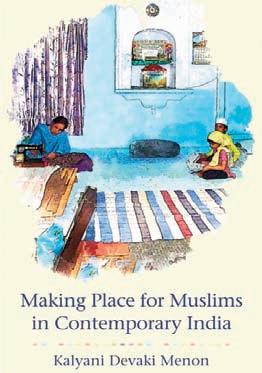
By Kalyani Devaki Menon, Cornell University Press, 2022, paperback, 216 pp. MEB $30
Reviewed by Zakaria Clark-ElsayedAs the name of this anthropological study suggests, Kalyani Devaki Menon explores the possibilities for contesting the increasingly violent and outspoken Hindu right and their intolerance toward Indian Muslims. Detailing her extensive research in the historically Muslim section of Old Delhi, she focuses on the different lives of Muslims across class, sect, religiosity and gender, illustrating how the area’s Muslims traverse religious discrimination.
The book offers a comprehensive introduction to urgent social and religious issues throughout India and South Asia that are rarely covered in American and Western media. Shedding light on employment discrimination, arbitrary arrests and the recent rise of lynchings and other forms of violence toward Muslims, Menon
Zakaria Clark-Elsayed is an undergraduate at the University of Cambridge. He is completing his bachelor’s in religious studies with a focus on Islam and Buddhism.
They Called Me a Lioness: A Palestinian Girl’s Fight for Freedom by Ahed Tamimi and Dena Takruri, One World, 2022, hardcover, 288 pp. MEB $25.

Ahed Tamimi is a world-renowned Palestinian activist, born and raised in the small West Bank village of Nabi Saleh, which became a center of resistance to the Israeli occupation when a Jewish-only settlement blocked off its community spring. Tamimi came of age participating in nonviolent demonstrations against this and other illegal Israeli actions. Her global renown reached an apex in December 2017, when, at 16 years old, she was filmed slapping an Israeli soldier who refused to leave her front yard. The video went viral, and Tamimi was arrested. An essential addition to an important conversation, They Called Me a Lioness shows us what is at stake in the Palestinian struggle and offers a fresh vision for resistance. With their unflinching, riveting storytelling, Ahed Tamimi and Dena Takruri shine a light on the humanity of not just occupied Palestine, but also the people struggling for freedom around the world.
The Kurdish Women’s Movement: History, Theory, Practice by Dilar Dirik, Pluto Press, 2022, paperback, 384 pp. MEB $30.
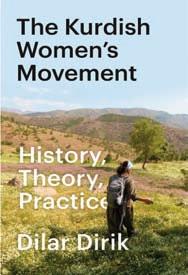
The Kurdish women’s movement is at the heart of one of the most exciting revolutionary experiments in the world today: Rojava, the Kurdish Autonomous Administration of North and East Syria. Forged over decades of struggle, most recently in the fight against ISIS, Rojava professes a radical commitment to ecology, democracy and gender equality. Taking apart superficial and Orientalist frameworks, Dilar Dirik offers an empirically rich account of the women’s movement that helped form Rojava. Drawing on original research and ethnographic fieldwork, she surveys the movement’s historical origins, ideological evolution and political practice over the past 40 years. Taking the reader from the guerrilla camps in the mountains to self-organized refugee camps, the book invites readers around the world to engage with the revolution in Kurdistan, both theoretically and practically, as a vital touchstone in the wider struggle for a militant anti-fascist, anti-capitalist feminist internationalism.
The Slow Road to Tehran: A Revelatory Bike Ride Through Europe and the Middle East by Rebecca Lowe, September Publishing, 2022, hardcover, 416 pp. MEB $26.95.
In 2015, as the Syrian war raged and the refugee crisis reached its peak, Rebecca Lowe set off on her bicycle across the Middle East. Driven by a desire to learn more about the region and its relationship with the West, Lowe’s 6,800mile journey took her through Europe to Turkey, Lebanon, Jordan, Egypt, Sudan, the Gulf and finally to Iran. Lowe’s adventure was an odyssey through landscapes and history that captured her heart, but also a deeply challenging cycle across mountains, deserts and repressive police states. Plagued by punctures and battling temperatures ranging from 20 to 118 degrees Fahrenheit, Lowe was rescued frequently by farmers and refugees, villagers and urbanites alike, and relied almost entirely on the kindness and hospitality of locals to complete her journey. This book is her evocative, deeply researched and often very funny account of her travels, and the people, politics and cultures she encountered along the way.
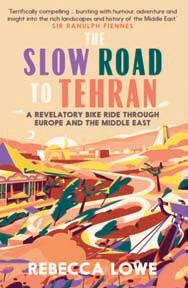
argues that these developments are inseparable from the emergence of Indian Prime Minister Narendra Modi’s brand of Hindu nationalism. The author explains how Hindu nationalists have discarded Muslims and other minorities as being incompatible with India. In doing so, they popularize narratives of Muslims being violent, impure and unpatriotic in order to justify their exclusion from society.
In contrast to these present developments, Menon begins the book by looking back at the historical status of Old Delhi before British colonial rule, when there was a degree of peace between Muslims and Hindus. By providing alternative visions and expectations for religious coexistence in South Asia, she suggests that Indians and the international community should not see the present religious tensions as inevitable.
Menon also looks within Old Delhi to highlight how Muslims have continued to exist despite discrimination. As the former capital of the Islamic Mughal Empire, Old Delhi has historically been a cultural center for Muslims. It has also become home to many Muslim migrants from the rest of Delhi and India who have fled their native regions for myriad reasons since the 1947 British partition. Thus, Menon’s work consciously deals with the historical emergence of Old Delhi as a stable place for Muslims within India, and as a future home for Muslims who are afraid to live in majority Hindu neighborhoods and cities.
Drawing on the work of Judith Butler, Michel Foucault and Edward Said, among many others, Menon argues that the identity of Indian Muslims emerges from innumerable factors. Their sense of belonging and stability is challenged by cultural expectations on the local level, and by economic and religious forces on the transnational level.
For instance, Menon intertwines anthropological and social insights with her personal experience living with Muslim women to detail how traditional and secular Muslim practices, as well as Hindu culture, all impact a woman’s sense of identity, and challenges naïve narratives about Muslim women. Similarly, she describes how the lives of many Muslims
unable to find stable jobs because of hiring discrimination are inseparable from the expanding informal economy in India shaped by neoliberalism and global economic patterns. Importantly, she suggests that Muslims are always in the process of making a place for themselves, not just within India, but also within the global economy and the Muslim world.
The stories of Old Delhi Muslims that Menon includes in her book include children chopping nuts in their living room to help their aging parents, sex workers supporting their drug-addicted or unemployed husbands and a club of women teaching the importance of a more engaged and active form of Islam. In all these instances, she highlights that these individuals have developed a sense of identity in Old Delhi. As such, these stories show the possibilities for Muslims to live within India and contest the pressure of Hindu nationalism.
At times the book is perhaps overly academic; the many stories and lives of Indian Muslims are overshadowed by extensive academic analysis, which does well in challenging assumptions about Muslim narratives, only at the cost of preventing the reader from becoming attached or fully sympathizing with their lives and stories. Nonetheless, the book is an incredibly important addition to academic discussions of Indian Muslims.
Although the situation may seem bleak for Indian Muslims, Menon insists that by working in the informal economy to feed their families or by challenging ignorant interpretations of the Qur’an and Muslim practices, Indian Muslims navigate religious conflict and present an identity to the world that defies stereotypical understandings.
Edited by Abdullah Al-Arian, Oxford University Press, 2022, paperback, 336 pp. MEB $40
Georgetown University in Qatar’s Center for International and Regional Studies held
an event on Aug. 15 to commemorate the release of Football in the Middle East: State, Society and the Beautiful Game
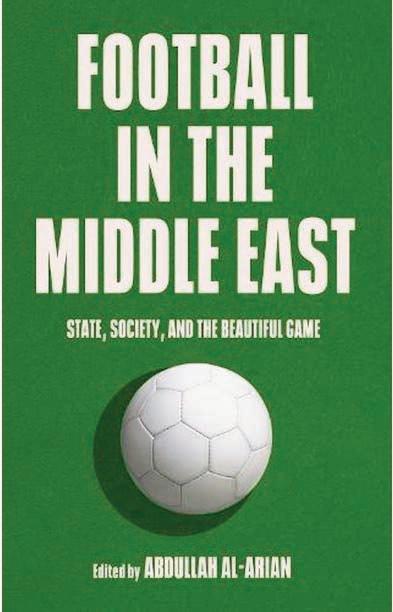
The book launch was held at the Qatar Olympic and Sports Museum in Doha.
Abdullah Al-Arian, a professor at Georgetown University in Qatar and editor of the 12-chapter volume, said the book explores the political, social and economic dynamics of football (“soccer” in American vernacular) in the Middle East. Football, he explained, impacts all levels of society in the region, both guiding migrant labor flows and attracting major investments from sovereign wealth funds. The all-encompassing nature of the sport makes it a highly attractive vehicle through which scholars can study any number of socio-political phenomena. Football has “showcased changes in national identity formation, helped highlight gender inequality and the plight of society’s most vulnerable,” among other issues, Al-Arian noted.
Unsurprisingly, the sport has played a significant role in the dynamics of the Middle East for quite some time. “Football has a rich history in the region that goes back to the colonial area, when nationalists invoked their domestic football leagues in the course of their struggles for independence,” Al-Arian noted. “Its role in political mobilization, whether by authoritarian rulers or popular protest movements, has continued well into the present day.” He expounds upon this more in his chapter, “Beyond Soft Power: Football as a Form of Regime Legitimization.”
Thomas Ross Griffin, a professor at Qatar University, discussed his chapter
on the identity of the Qatar national football team. He noted that the squad is often depicted as “little more than a team of mercenaries, players cherry-picked from across the globe to represent Qatar.” This assertion was true several years ago when the team had an inordinate number of players poached from Latin America, but today the roster is largely comprised of players who have deep roots in Qatar and a strong sense of national pride, he said.
For instance, the Qatar team that won the 2019 Asian Cup “had a long history of playing with each other at an underage level,” Griffin pointed out. “They were born in this country, they speak Arabic with a Qatari dialect, they went to school here— their entire lives were here.”
While many of the players didn’t have Qatari blood, he said this reality is completely in line with the country’s demographics, as an estimated 90 percent of people living in Qatar are foreign nationals. “This team has become a mirror to the society that Qatar is today,” he said. One glaring omission, however, is the absence of South Asians on the football team, given that migrant workers from the region make up more than half of the country’s inhabitants. In fact, many laborers from South Asia have helped build the infrastructure for the upcoming World Cup, often working and living in questionable environments.
Aside from the Qatari national team and general regional trends, chapters in the book include: assessing the relationship between football and the global Palestinian Boycott, Divestment and Sanctions (BDS) movement; the role of women’s football in Turkey; the politicization of the sport in revolutionary Algeria; the intersection of football and social change in Iran; a modern history of football in Egypt; an exploration of the issues surrounding Qatar’s successful bid to host this year’s World Cup tournament; and an assessment of how the game has impacted broadcasting in the Middle East and beyond. ■
Dale Sprusansky is managing editor of the Washington Report.
Markets of Civilization: Islam and Racial Capitalism in Algeria by Muriam Haleh Davis, Duke University Press, 2022, paperback, 288 pp. MEB $30.
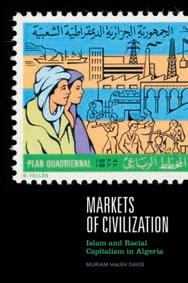
In Markets of Civilization, Muriam Haleh Davis provides a history of racial capitalism, showing how Islam became a racial category that shaped economic development in colonial and post-colonial Algeria. French officials in Paris and Algiers introduced what Davis terms “a racial regime of religion” that subjected Algerian Muslims to discriminatory political and economic structures. These experts believed that introducing a market economy would modernize society and discourage anti-colonial nationalism. Following independence, convictions about the inherent link between religious beliefs and economic behavior continued to influence development policies. Algerian President Ahmed Ben Bella embraced a specifically Algerian socialism founded on Islamic principles, while French technocrats saw Algeria as a testing ground for development projects elsewhere in the Global South. Highlighting the entanglements of race and religion, Davis demonstrates that economic orthodoxies helped fashion understandings of national identity on both sides of the Mediterranean during decolonization.
The City Always Wins: A Novel by Omar Robert Hamilton, Picador, 2018, paperback, 320 pp. MEB $18.

The City Always Wins is Omar Robert Hamilton’s debut novel from the front line of a revolution that captures the experience like no news report could. Deeply enmeshed in the 2011 uprising in Tahrir Square, Mariam and Khalil move through Cairo’s surging streets and roiling political underground, their lives burning with purpose, their city alive in open revolt. The world is watching, listening, as they chart a course into an unknown future. They are—they believe—fighting a new kind of revolution, players in a new epic in the making. From the communal highs of night battles against the police to the solitary lows of postrevolutionary exile, Hamilton’s bold novel cuts to the psychological heart of one of the key chapters of the 21st century. Arrestingly visual, intensely lyrical, uncompromisingly political and brutal in its poetry, The City Always Wins is a novel not just about Egypt’s revolution, but about a global generation that tried to change the world.
Sumac: Recipes and Stories from Syria by Anas Atassi, Interlink, 2021, hardcover, 248 pp. MEB $35.
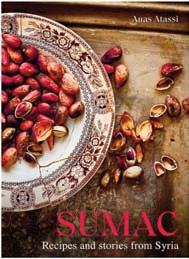
The Syrian kitchen, shaped by influences from neighboring countries, has deep historical roots and evolved to perfection over thousands of years. This new cookbook, Sumac, is filled with traditional and contemporary Syrian recipes that were inspired by personal stories. The gorgeous photography illustrates how beautiful Syria was and still is, and family photographs add depth to the author’s history.
Each chapter is filled with Atassi’s memories of family celebrations and the country that inspired the book. He tells stories of traditional weekend breakfasts in his grandmother’s garden and of the mezze his mother cooked for family gatherings. There are memories of the rich aromatic flavors of the Syrian kitchen where fragrant spices like the lemony and deep red sumac are prized ingredients. Sumac contains more than 80 recipes, inspired by the author’s family recipes and his travels, and includes beautiful location photography by Rania Kataf, who developed the “Humans of Damascus” Facebook page.
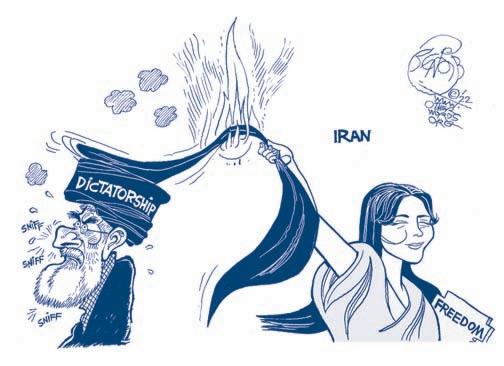

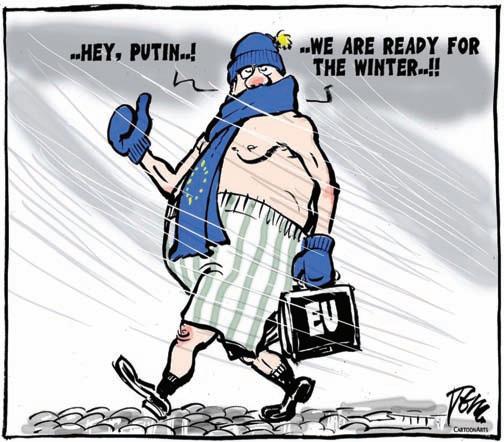
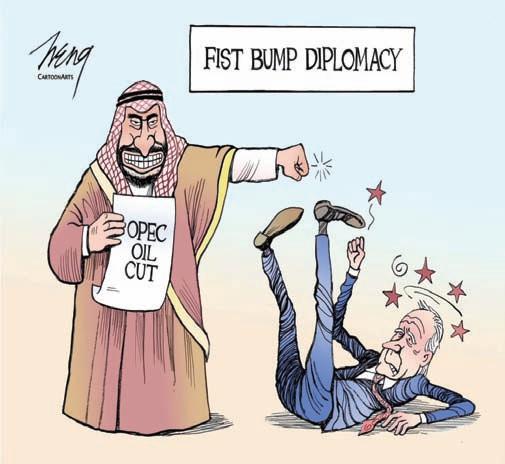
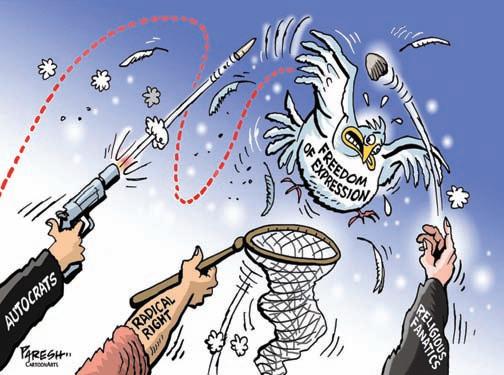
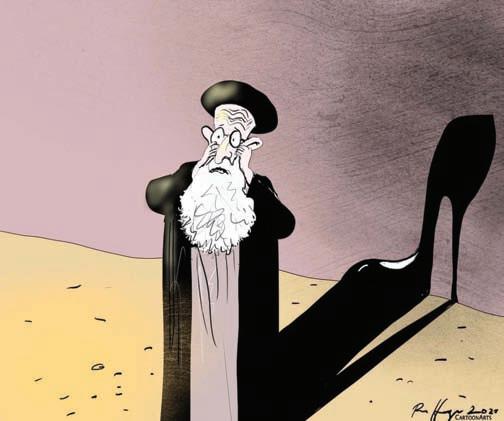
PRESIDENT JOE BIDEN
VICE PRESIDENT KAMALA HARRIS
1600 PENNSYLVANIA AVE. NW WASHINGTON, DC 20500
COMMENT LINE: (202) 456-1111
WWW.WHITEHOUSE.GOV/CONTACT
SECRETARY OF STATE ANTONY BLINKEN U.S. DEPARTMENT OF STATE 2201 C ST. NW WASHINGTON, DC 20520
PHONE: (202) 647-6575
VISIT WWW.STATE.GOV TO E-MAIL
ANY MEMBER: U.S. HOUSE OF REPRESENTATIVES WASHINGTON, DC 20515 (202) 225-3121
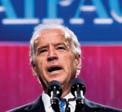
To the Wyoming Tribune Eagle, Oct. 8, 2022
Vladimir Putin recently announced Russia’s annexation of four additional regions of Ukraine. International law is clear on this issue: annexation and territorial conquest are strictly forbidden by the Charter of the United Nations.
President Biden released a strong response: “The United States condemns Russia’s fraudulent attempt today to annex sovereign Ukrainian territory. Russia is violating international law, trampling on the United Nations Charter and showing its contempt for peaceful nations everywhere.”
On the subject of illegal annexations, Israel captured and occupied East Jerusalem from Jordan in the Six-Day War of 1967. In 1980, it claimed sovereignty over East Jerusalem by enacting a law that declared Jerusalem to be Israel’s unified capital. The United Nations Security Council countered by passing Resolution 478 that ruled that law to be “null and void.”
During the same war, Israel also captured the Golan Heights from Syria; a de facto annexation occurred in 1981 when it applied Israeli law to the occupied area. The United Nations Security Council reacted by passing Resolution 497, which declared Israel’s action to be “null and void and without international legal effect.”
On Dec. 6, 2017, President Trump officially recognized Jerusalem as the capital of Israel. On March 25, 2019, he also signed a proclamation that recognized Israeli sovereignty over the Golan Heights. These actions put our country at odds with much of the international community, including the EU and the U.N. which con-
sider both East Jerusalem and the Golan Heights to be “occupied territories.”
Biden’s statement is quite ironic, however, because in June 2021, his administration affirmed that the U.S. would continue to recognize Israeli sovereignty over the Golan Heights. Obviously, that position does not align with the United Nations Charter or the Fourth Geneva Convention, which also expressly prohibits the annexation of occupied territory.
In the future, President Biden might consider purchasing a retirement home in the Golan’s newest community, “Trump Heights,” discretely named after you-knowwho. Israel may arrange for a discount, and maybe even assign Biden’s name to a side street, roundabout or, possibly, the municipal sanitation transfer station.
Rick Boheler, Cheyenne, WY
To The Salt Lake Tribune, Sept. 18, 2022
The article by Peggy Fletcher Stack on Sept. 11 about Palestine (“In the Holy Land, a place divided by religion, we discover how it is—and isn’t—like LDS Utah”) was very disturbing and loaded with misinformation and generalizations that libel entire communities.
My family is a Palestinian Christian family. Stack did not interview any leading Palestinian Christians (or Muslims) on either side of the 1948 Green Line and was content with giving us only Zionist views about what Christians (which she called incorrectly “Protestant”) feel or think, and about “riots” on what she calls the “Temple Mount” (Al-Aqsa Mosque compound which Israeli occupation forces regularly storm while people are in prayers).
The article is loaded with colonialist-ori-
ANY SENATOR: U.S. SENATE WASHINGTON, DC 20510 (202) 224-3121
entalist language about the natives. For the record, Palestinian Christian and Muslim villages were ethnically cleansed in 1948 and we continue to be removed from our land, our houses demolished. Eight million Palestinians are refugees or displaced people (10 percent of whom are Christian) thanks to a U.S.-backed apartheid system intent on taking a multi-religions, multi-cultural society called Palestine into a Jewish state called Israel. My 90-year-old Christian mother still remembers her friend Hayah Balbisi killed in the massacre of Deir Yassin on April 9, 1948!
We Palestinian Christians also reject the innuendos directed to members of The Church of Jesus Christ of Latter-day Saints. My sister who happens to belong to that church wrote a whole book relating to her life under Israeli occupation (see Sahar Qumsiyeh, Peace for a Palestinian: One Woman’s Story of Faith Amidst War in the Holy Land). Please read it to see if she was “intimidated” by Muslims.
Next time we would welcome objective reporting and actual meetings with us, the descendants of the first Christians, instead of projecting Zionist ideas to your readers.
Mazin Qumsiyeh, Bethlehem, Palestine

To The Forum of Fargo-Moorhead, Oct. 4, 2022
After five days in Israel, North Dakota State Rep. Shannon Roers Jones (R) recently wrote an op-ed to assure us that everything is hunky-dory in Israel. She learned from the trip, curated by an organization that supports Israel’s far-right government, that no, there’s no apartheid in Israel. The two-plus million Palestinians in the West Bank and Israeli-occupied East
Jerusalem (not to mention the two million in Gaza) would beg to differ.
In Israel proper there is a vibrant democracy. In the Palestinian territories, controlled by Israel, there is no democracy at all. That is the textbook definition of apartheid.
The toothless Palestinian leaders whom Roers Jones probably met have to get Israel’s permission to travel and have little respect from most Palestinians because of their ineffectiveness and corruption. If you want to know what life is like for Palestinians, you have to actually visit ordinary Palestinians. It’s also unlikely that Roers Jones heard the shouts of “death to Arabs” by the growing number of far-right Israeli Jews.
It is true that there are nearly two million Palestinians who live in Israel proper and are citizens of Israel. They do have rights and can vote. But there are large disparities between public funding for Palestinian schools and urban infrastructure and similar funding for Jewish towns. You can easily see the result if you visit Palestinian towns and villages within Israel. There are only eight Israeli cities that have significant populations of Palestinian Israelis. Since the creation of the state of Israel, 900 new Israeli villages have been created, but none for Palestinians. Existing Palestinian towns in Israel are not allowed to expand.
Alalusi Foundation. . . . . . . . . . . . . 25
Alamo Flags. . . . . . . . . . . . . . . . . . . 31
Al-Mokha Coffee. . . . . . . . . . . . . . . 62
American Near East Refugee Aid (ANERA). . . . . . . Inside Back Cover
Capitol Hill Citizen. . . . . . . . . . . . . 13
Jack Shaheen Scholarships. . . . . . . 22
Kinder USA. . . . . . . . . . . . . . . . . . . 11
Land of Canaan Foundation. . . . . 47
Middle East Children’s Alliance. . . 37
Mondoweiss. . . . . . . . . . . . . . . . . . . 63
Palestinian Children’s Relief Fund. . . 9
Palestinian Medical Relief Society. . 43
Playgrounds for Palestine. . . . . . . . 50
Unitarian Universalists. . . . . . . . . . 39
United Palestinian Appeal (UPA). . . . . . . . . Inside Front Cover
Zakat Foundation of America. . . . 23
In many Israeli towns, Palestinians are effectively not allowed to dwell. No, even in Israel proper, equality is mostly on paper.
Israel is a remarkable country, diverse, innovative and a great place to visit. But Roers Jones saw only part of its reality. Israeli agencies don’t want you to see the other part. You’ll be told—don’t go there, it’s too dangerous! Go there anyway. You’ll be fine. Palestinians have a great tradition of hospitality. I know, I’ve been there many times.
Arland Jacobson, Moorhead, MN
To the News & Record, Sept. 27, 2022
We were disappointed to see Rep. Kathy Manning (D-NC) join a letter criticizing the Biden administration’s efforts to restore the Iran nuclear deal. Unfortunately, the letter provides no constructive path for getting Iran’s nuclear program back in the box, which is what the revised Joint Comprehensive Plan of Action (JCPOA) attempts to do. President Biden is wise to work to restore diplomacy and we would hope that Rep. Manning would do everything she can to support these efforts.
While no deal is perfect, restoring the JCPOA provides the best possible platform for further diplomacy to address areas of disagreement. Without diplomacy, threats of “limited strikes” could escalate quickly. We know the true cost of war is always shouldered by the poorest and most vulnerable, as we’ve seen in Yemen, where a proxy war led by Saudi Arabia and supported by the United States has perpetuated famine and humanitarian disaster.
We call on Rep. Manning to choose peace and diplomacy by supporting President Biden’s efforts to return to mutual compliance with the Iran deal. To do otherwise risks a nuclear arms race and war in the Middle East. That is a risk the U.S. and the world cannot afford.
Lizzie Biddle and Dorothy Mason, Greensboro, NC
To The New York Times, Oct. 1, 2022
We, the signers of this letter, are physicians, dentists, nurses, pharmacists, medical instrument technicians and other
health care and public health workers of every creed and political ideology. We are of Iranian heritage and live in democratic and open societies around the globe, enjoying basic human and civil rights.
We express our utmost support for our sisters and brothers, the people of Iran, led by brave women and men from around the country, in raising their voices for life, liberty and the pursuit of happiness, and for women’s rights and gender equality.
We condemn the brutal clerical dictatorship of the Islamic Republic, which stands against the aspirations of a young and vibrant nation, deeply rooted in an ancient culture of humanism. The protesters are fighting with their lives to pursue happiness and interact with the entire world in peace and tolerance. They need your support—support from open and democratic societies, including artists, teachers and other professionals, students and retirees.
Let the names of the innocent fallen— Mahsa Amini, Pouya Bakhtiari, Navid Afkari and so many more—ring until the people of Iran can honor and celebrate their lives and sacrifices in a free and democratic society.
A. Maziar Zafari, Decatur, GA.
The writer is a professor of medicine at Emory University. The letter was signed by 29 other health care workers from the Iranian diaspora.
To The Baltimore Sun, Oct. 17, 2022
The headline on a recent commentary, “As protesters decry Iran’s repressive policies, anti-hijab rhetoric rises in Baltimore and beyond” (Oct. 10), fails to account for how aggravated assault is a bit more serious and potentially life-threatening than rhetoric. In fact, a young woman was brutally assaulted in a Baltimore school, with the aid of a Baltimore school employee, for voluntarily wearing a hijab
Have the alleged perpetrators been criminally charged for causing traumatic brain injuries to the victim? Are they still allowed in school?
The people who caused these injuries are every bit as culpable as the mullahs in Iran. Perhaps we can do something about evil and hatred here.
Lawrence Silberman, Burtonsville, MD
The following are individuals, organizations, companies and foundations whose help between Jan. 1, 2022 and Oct. 15, 2022 is making possible activities of the tax exempt AET Library Endowment (federal ID #52 1460362) and the American Educational Trust, publisher of the Washington Report on Middle East Affairs. Some Angels helped us co sponsor the IsraelLobbyCon. Others are donating to our “Capital Building Fund,” which will help us expand the Middle East Books and More bookstore. Thank you all for helping us survive the turmoil caused by the pandemic. We are deeply honored by your confidence and profoundly grateful for your generosity.
Sami Abed, South Lyon, MI
Robert Abel, Wilmington, DE
Rizek & Alice Abusharr, Claremont, CA
Aly Abuzaakouk, Fairfax, VA Justine Adair, Waxhaw, NC Diane Adkin, Camas, WA Frank Afranji, Portland, OR
James Ahlstrom, Stirling, NJ
Syed Ahmed, Trenton, NJ
Qamar Ahsan, Flint, MI
Mohammad & Shaista Akbar, Orwigsburg, PA
Robert J. Akras, North Bay Village, FL
Catherine Al-Askari, Leonia, NJ
M. Al Hussaini, Great Falls, VA
Bulus Paul Ajlouny, San Jose, CA
Tammam Aljoundi, Saint Louis, MO Hamid & Kim Alwan, Milwaukee, WI Hanaa Al-Wardi, Alhambra, CA Mazen Alsatie, Carmel, IN
Nabil & Judy Amarah, Danbury, CT Nazife Amrou, Sylvania, OH Ali Antar, Bristol, CT
Dr. John Duke Anthony, McLean, VA Sultan Aslam, Plainsboro, NJ
Rick Bakry, New York, NY
Robert Barber, Parrish, FL
Jamil Barhoum, San Diego, CA Joseph Bendict, Mystic, CT
Michael Bradley, Scottsdale, AZ James Burkart, Bethesda, MD Isa Canavati, Fort Wayne, IN James Cobey, Washington, DC Estate of Rajie Cook, Washington Crossing, PA
Margaret Coulter & Patricia Daugherty, Sacramento, CA Dennis Denno & Raina Korbakis, East Lansing, MI
Raymond Doherty, Houston, TX Lewis Elbinger, Mount Shasta, CA Tom Ellis, Albany, NY
Hossam Fadel, Augusta, GA
Ed Fields, Marietta, GA
Andrew Findlay, Alexandria, VA
Jeanne Finley, Albany, NY
Donald Frisco, Wilmington, DE Anne Ganz, Chilmark, MA David Glick, Fairfax, CA
Graeme Goodsir, Mechanicsburg, PA Sam Gousen, Arlington, VA Doug Greene, Bowling Green, OH Nabil Haddad, Greeley, CO Iftekhar Hai, S. San Francisco, CA
Dixiane Hallaj, Purcellville, VA Nicola Hanania, Missouri City, TX Laurie Hanawalt, Cleveland, OH
Erin Hankir, Nepean, Ont., Canada Delinda C. Hanley, Kensington, MD*
Susan Haragely, Livonia, MI Walid & Norma Harb, Dearborn Hts, MI Sam Hassan, Olympia, WA Sameer Hassan, West Palm Beach, FL Jim Hausken, Kensington, CA Gerald Heidel, Bradenton, FL Neil Himber, Youngsville, PA Barbara Howard, New York, NY Zafer & Juhayna Husseini, Dallas, TX Azmi Ideis, Deltona, FL Rafeeq Jaber, Oak Lawn, IL Bilquis Jaweed, West Chester, OH Marilyn & Harold Jerry, Princeton, NJ Mark Kaidy, Westminster, IN Issa & Rose Kamar, Plano, TX Akram Karam, Charlotte, NC Carolyn L. & Martin Karcher, Washington, DC
Ghazala Kazi, Columbia, MD Mary Keath, Bend, OR Gloria Keller, Santa Rosa, CA Charles Kennedy, Concord, NH Susan Kerin, Derwood, MD Rehan Khan, East Brunswick, NJ Mohayya Khilfeh, Willow Brook, IL Eugene Khorey, Homestead, PA
William King, Hilo, HI Carl Kleinholtz, Elyria, OH Bader Kudsi, San Jose, CA Edward Kuncar, Coral Gables, FL Ronald Kunde, Skokie, IL Edward Lamonte, Irondale, AL
David & Rene Lent, Hanover, NH Marilyn Levin, Ashland, OR Jonothan Logan, New York, NY Joseph Louis, Los Gatos, CA Donald Maclay, Media, PA Nidal Mahayni, Richmond, VA Lucinda Mahmoud, Oceanside, CA Asad Malik, Bloomfield Hills, MI Sabeen Malik, Freehold, NJ Abdulla Mamdani, Minneapolis, MN Ted Marczak, Toms River, NJ Joseph Mark, Carmel, CA Martha Martin, Kahului, HI Nabil Matar, Minneapolis, MN William McAuley, Chicago, IL Bill McGrath, Northfield, MN Hugh McInnish, Huntsville, AL Anisa Mehdi, Maplewood, NJ Tom Mickelson, Cottage Grove, WI Samuel Milham, Olympia, WA Maury Keith Moore, Seattle, WA Shajih Muhanna, Atlanta, GA Moe Muhsin, Honolulu, HI
Elizabeth Murray, Escondido, CA William Nadeau, San Diego, CA Claire Nader, Washington, DC Joseph Najemy, Worcester, MA Stephen Naman, American Council for Judaism, Atlanta, GA Richard Nau, Longview, WA Henry Norr, Berkeley, CA Eleanor Parker, Helena, MT
Phillip Portlock, Washington, DC James Posakony, Del Mar, CA Barry Preisler, Albany, CA Moneta Prince, Austin, TX Marjorie Ransom, Washington, DC Marilyn Raschka, Hartford, WI Paul Richards, Salem, OR John Robinson, Somerville, MA William Rugh, Hingham, MA
Mohammed Sabbagh, Grand Blanc, MI Linda Saccavino, Tampa, FL Ramzy Salem, Monterey Park, CA
Irmgard Scherer, Fairfax, VA Ajazuddin Shaikh, Granger, IL Aziz Shalaby, Vancouver, WA
Qaiser & Tanseem Shamim, Somerset, NJ
Carl Shankweiler, Valley View, PA
Zac Sidawi, Costa Mesa, CA
William & Ursula Slavick, Portland, ME
Les Sosnowski, Lake Forest, IL
Mushtaq Syed, Santa Clara, CA
Raymond Totah, Fallbrook, CA
Thomas Trueblood, Chapel Hill, NC
Tom Veblen, Washington, DC
V. Vitolins, Grosse Pointe Farms, MI
Hermann Weinlick, Minneapolis, MN
Edwina White, Sacramento, CA
Thomas Wunderlich, Cambridge, MA
Raymond Younes, Oxnard, CA
Robert Younes, Potomac, MD
Fathi Yousef, Irvine, CA
Mashood Yunus, Minneapolis, MN
John Zacharia, Vienna, VA
Vivian Zelaya, NorCal Sabeel, Berkeley, CA#
Mohammed Ziaullah, Montclair, CA Fred Zuercher, Spring Grove, PA
($250 or more)
Miriam Adams, Albuquerque, NM
Dr. Mohammed Ahmed, Waterville, OH
Larry A. Cooper, Plymouth, MI****
David Dunning, Lake Oswego, OR
Steven Feldman, Winston Salem, NC Islamic Center, Detroit, MI
Fahd Jajeh, Lake Forest, IL
Les Janka, Hilton Head Island, SC
Bilquis Jaweed, West Chester, OH
Nabil Khoury, Bloomfield Hills, MI
Dr. Jane Killgore & Thomas D’Albani, Bemidji, MN**
Alison Lankenau, Tivoli, NY
Edwin Lindgren, Overland Park, KS
Amar Masri, Fort Wayne, IN
Nabil Matar, Minneapolis, MN Eid Mustafa, Wichita Falls, TX
Sara Najjar-Wilson, Reston, VA W. Eugene Notz, Charleston, SC
Hertha Poje Ammoumi, New York, NY John & Peggy Prugh, Tucson, AZ
Irmgard Scherer, Fairfax, VA
Joan Seelye, Washington, DC
Raymond Totah, Fallbrook, CA Jeanne Trabulsi, Front Royal, VA Don Wagner, Orland Hills, IL William Walls, Arlington, VA
TENORS & CONTRALTOS ($500 or more)
Michael Ameri, Calabasas, CA Roger Bagshaw, Big Sur, CA
James Bennett, Fayetteville, AR Forrest & Sandi Cioppa, Walnut Creek, CA
Prof. Juan Cole, Ann Arbor, MI
Wasif Hafeez, W. Bloomfield, MI Mir Masood & Anjum Hassan, Calabasas, CA

Brigitte Jaensch, Carmichael, CA Matt Labadie, Portland, OR
Tom & Tess McAndrew, Oro Valley, AZ
Darrel Meyers, Burbank, CA
Abid Shah, Sarasota, FL
Bernice Shaheen, Palm Desert, CA*** Shahida Siddiqui, Ewing, NJ
David Snider, Bolton, MA
BARITONES & MEZZO SOPRANOS ($1,000 or more)
Lois Aroian, East Jordan, MI
Karen Ray Bossmeyer, Louisville, KY
Joseph Daruty, Newport Beach, CA Majed Faruki, Albuquerque, NM
Dorsey R. Gardner, Palm Beach, FL
Alfred R. Greve, Holmes, NY
Judith Howard, Norwood, MA Ghazy Kader, Shoreline, WA
Timothy Kaminski, Saint Louis, MO George & Karen Longstreth, San Diego, CA
Jack Love, Fort Myers, FL Hani Marar, Delmar, NY
Roberta McInerney, Washington, DC** Mary Norton, Austin, TX
Audrey Olson, Saint Paul, MN
Gretel Smith, Garrett, IN
Imad & Joann Tabry, Fort Lauderdale, FL
Donn Trautman, Evanston, IL
Prof. Stephen Walt, Brookline, MA
Dr. Clyde Farris, West Linn, OR*, **
Help make sure that the Washington Report on Middle East Affairs will be here for the next generation.
By remembering the WashingtonReport in your will, you can:
• Make a significant gift without affecting your current cash flow;
• Direct your bequest to a vital purpose—educating readers about U.S. foreign policy in the Middle East;
• Receive a charitable estate tax deduction & Leave a legacy for future generations. Bequests of any size are honored with membership in the American Educational Trust’s “Choirmasters,” named for angels whose foresight and dedication ensured the future of the WashingtonReportand Middle East Books and More. For more information visit www.wrmea.org/donate/bequests.pdf, contact us at circulation@wrmea.org, write: American Educational Trust, PO Box 292380 • Kettering, OH 45429, or telephone our toll-free number 800-368-5788 ext. 1105 • Fax: 202-265-4574.
Ronald & Mary Forthofer, Boulder, CO
John & Henrietta Goelet, Washington, DC
Muhammad Khan, Jersey City, NJ
William Lightfoot, Vienna, VA Benjamin Wade, Saratoga, CA
* In Memory of Dick & Donna Curtiss
** In Memory of Andrew I. Killgore
*** In Memory of Dr. Jack G. Shaheen
**** In Memory of Diane Rose Cooper
# In Memory of John F. Zelaya

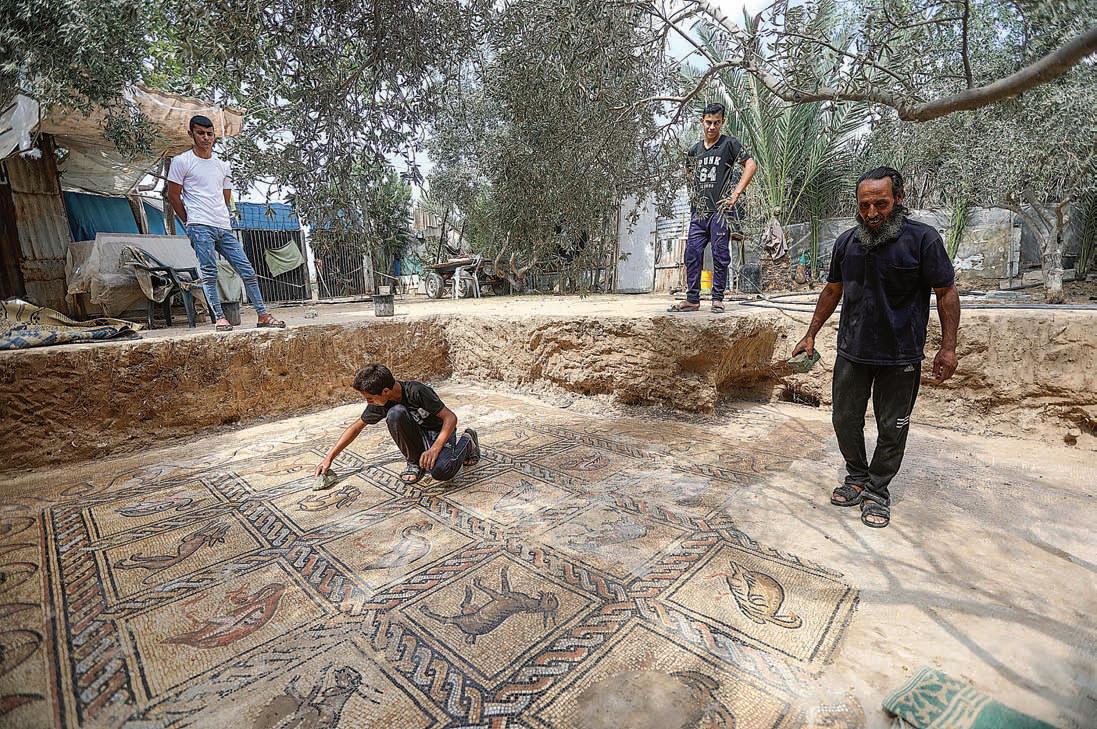
P.O. Box 53062 Washington, DC 20009
Vol. XLI, No. 7